

Catherine Haughney, editor of Reader’s Digest, welcomes you to the April issue
Tell us what you think of this issue: theeditor@readersdigest.co.uk
Like us on Facebook: facebook.com/readersdigestuk
Follow us on twitter: twitter.com/rdigest



Catherine Haughney, editor of Reader’s Digest, welcomes you to the April issue
Tell us what you think of this issue: theeditor@readersdigest.co.uk
Like us on Facebook: facebook.com/readersdigestuk
Follow us on twitter: twitter.com/rdigest

“Gillian Anderson is so friendly and good humoured,” says journalist Andrew Duncan. “So it’s a bit of a surprise when our interview turns into a tussle.” P38

“Pet owners have known for years that pets can su er grief,” says TV vet and author Pete Wedderburn “But what can owners do to help their bereaved dogs and cats?” P60

“It’s time we had a classless railway,” argues train expert Christian Wolmar, author of Fire and Steam. “Our trains are full except for the empty first-class carriages” P96
Why does he look so sad? Find out on p60


Whenever I feel that life is getting on top of me, I do the classic British thing and make a cup of tea. But tea can be so much more than a soothing drink, as our article on p44 about a tea plantation in Rwanda shows. Day in and day out people from the once-warring Tutsi and Hutu ethnic groups now work together on the plantation to better their lives, and to heal the wounds of the past. It is an inspiring example of reconciliation.
Equally moving is Todd Stevens’s account of how learning to dive saved him from a life of crime. Todd, now one of Britain’s leading shipwreck hunters, has discovered everything from a 16th-century jug to a ship’s carved figurehead, which is regarded as one of this country’s great maritime treasures. Read his remarkable story on p88. Reader’s Digest


Instant release wand
Quick detach, and easy reattach.
2 Tier Radial™ cyclones
Exert forces of over 100,000G to capture microscopic dust particles. No other upright vacuum has this technology.
Latest Ball™ technology
Lowers the centre of gravity and provides easy manoeuvrability.
Self-adjusting cleaner head
Adapts for high performance on every floor type.
Anti-static carbon fibre filaments
Remove fine dust from hard floors.
Stiff nylon bristles
Ensure deep cleaning of carpets too.
Big when you need it.
When you’re using it – DC50 is a powerful vacuum with the performance of a full-sized upright.

Small when you don’t.
When you’re not using it – it’s a compact machine that’s light to lift, and easy to store.
£50 for the star letter, £30 for regular letters and £15 for short extracts.
Ensure submissions are not previously published. Include your name, email, address and daytime phone number with all correspondence. We may edit letters and use them in all print and electronic media. Contributions used become world copyright of Vivat Direct Ltd (t/a Reader’s Digest).
Email readersletters@ readersdigest.co.uk or write to Readers’ Letters, Reader’s Digest, 157 Edgware Road, London W2 2HR £70 for the true stories, anecdotes, jokes in Laugh! and You Couldn’t Make It Up…, and contributions to end-of-article fillers, Travel and Gardening. Email excerpts@readersdigest. co.uk or write to Excerpts, Reader’s Digest, 157 Edgware Road, London W2 2HR

We cannot acknowledge or return unpublished items or unsolicited article-length manuscripts. Do not send SAEs. Article-length stories, poetry and cartoons are not requested.

Visit readersdigest.co.uk or write to Reader’s Digest, PO Box 444, Douglas, Isle of Man IM99 3ZF.
UK: £42 a year. Republic of Ireland: €74.39 a year. Europe: £50 a year.
Send us your stories, jokes and letters—if we publish, we pay! “I’m



Contact Customer Services for renewals, gifts, address changes, payments, account information and all other enquiries. Phone: 0871 351 1000 (Calls from a BT landline will cost 10p a minute. Call costs from other providers may vary.)
Email: customer_service@ readersdigest.co.uk
Minicom: 0870 600 1153.
Rest of the world: £60 a year. Prices include delivery. For Gift Subscriptions contact Customer Services below Reader’s Digest is available in a talking edition for blind and partially sighted people for £16. For details, phone: 01435 866 102; email: info@tnauk.org.uk, website: tnauk.org.uk.
twitter.com/rdigest
facebook.com/ readersdigestuk































































we’re having a laugh!
If you love our jokes pages (see p154 for this month’s cracking selection), you’ll be glad to hear that we’re now posting a new joke on our website every day.
What are you waiting for? Log on to readersdigest.co.uk/ magazine now!
Keep up to date with all that’s happening in the world of finance by reading our weekly money blog. you’ll find advice on travel insurance, debt, buy-to-let and more at readersdigest.co.uk/ rd-money-blog.













































Fancy winning great prizes?

EnterTODAYand be a WINNER
Experience Roman Army life in 3D, read 2000 year old letters and amuse the kids with ancient roman loos - You’ll be amazed at how much there is to do in Hadrian’s Wall Country.
£30 FOR EACH PUBLISHED LETTER, £15 FOR SHORTER EXTRACTS, £50 FOR THE LETTER OF THE MONTH!
SEE P4 FOR MORE DETAILS
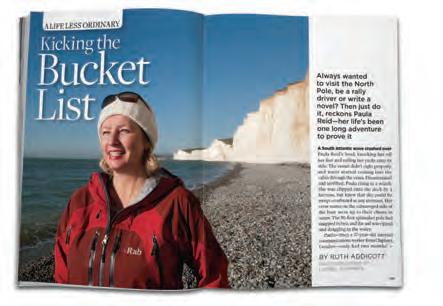
I loved reading about Paula Reid in “Kicking the Bucket List”. It’s great to know there are others out there not just sitting back and watching TV. When I was in my early 30s, I had a crippling mortgage and a booming business that was killing me, so I decided to sell the house and go o in my motorhome. I had some amazing adventures—just me, my dogs and my cat. If I had a week where nothing unusual happened, I went looking for new experiences.
I wrote to my granddad every week, telling him about my adventures. Years later, after he’d died, my mother gave me a shoebox containing all my letters and photos—he’d kept every one. I hope some day to turn it into a book.
It’s said that, as you die, your life flashes before you. I want to make sure that when I finally “kick the bucket”, my life takes a long time to flash by!
Wendy Gordon, Oxfordshire
Your Maverick feature on slaying sacred cows somehow omitted Charles Dickens. His characters only become memorable when film and TV versions free them from the wordiness of the author. Even his famous opening to A Tale of Two Cities (“It was the best of times, it was the worst of times...”) is rarely quoted in full because it continues in this vein for far too long. He gives readers “hard times” indeed.
John Samson, EdinburghI was moved by Max Pemberton’s item on depression in Medicine. As a su erer for many years, I’m grateful for the medication that keeps my horrible symptoms at bay. But there’s been a price to pay for me—the drugs mean I can no longer escape into a good book, as my concentration and imagination are stunted.
Treatment that’s prescribed to enhance our lives can have a downside to our sense of selfworth and well-being. And even if it can’t be helped, it’s comforting to have it acknowledged.
Sarah McHugh, London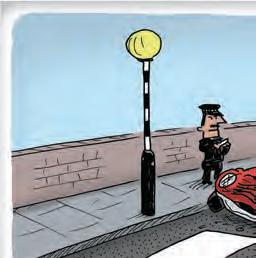

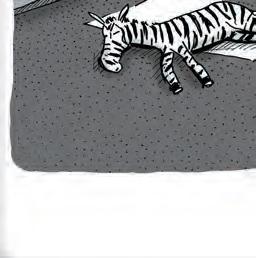
“It all happened so fast—one second he was there, the next he wasn’t; one second he was there, the next he wasn’t”
Having been on the receiving end of a matured personal pension, I don’t totally agree with Francis Klonowski’s suggestion in “Is a Pension Worth It?” that regular payments into a pension are still one of the best ways of saving for retirement. While contributions do attract tax relief, you can only receive a portion of the total fund amount as a tax-free lump sum at retirement. The balance, converted into an annuity, is treated as taxable income, so that calculation has to be taken into account as well.
The other problem with an annuity is that the interest rate


you receive is permanent. With rates so low right now, people with pension policies maturing have little to celebrate.
Ray Metcalfe, GosportIt’s clear from “If I Ruled the World” that Alex Polizzi is a woman after my own heart!
I agreed with everything she’d like to change about the world today, especially banning battery chicken farms. Up to 500,000 hens are still being kept in cages on farms in the UK, despite an EU-wide ban that came into force at the beginning of the year. If people didn’t buy eggs from caged hens, this nastiness would come to an end.
Jon Drurie, FlintshireAlex Polizzi’s claim that she’d impose penalties for rudeness struck a chord with me.
“THE LACK OF RESPECT SHOWN BY SOME LEAVES A BITTER TASTE”
On the morning I read her article, I’d given way to three motorists who didn’t even have the decency to look at me, let alone raise a hand in thanks. A fleeting moment when a stranger shows gratitude leaves most people with a pleasant feeling. The lack of respect shown by some, who seem to have been brought up without manners, leaves a bitter taste.
So recognise when someone does you a kindness—however tiny—and show appreciation. It makes the world a better place.
Helen Lemm, SussexIf you love being active, don’t let back, joint or muscle pain get in your way.
IBULEVE SPEED RELIEF MAX STRENGTH GEL has the power of Ibuleve’s strongest painkilling formula. Pick it up in the healthcare aisle, and discover gardening made easier with Ibuleve.
IBULEVE PAIN RELIEF - WITHOUT PILLS
Contains ibuprofen. Always read the label.


I really admire the “faith dealer” Ben Bowler. Creating a series of travel programmes to introduce people to di erent religions is a wonderful idea, and I wish him the best of luck. But I’d be cautious if I were in his shoes—it would be a shame if his spiritual sessions got lost in a fog of tourism.
Chris James, Glasgow
Thank you for the tips on How to Dial a Human in “1,001 Things Everyone Should Know”. I said nothing and pressed nothing when the automated voice gave me options, and I quickly got through to the person I wanted to speak to. Very helpful!
Ryan Clarkson, Norfolk
“Staying Creative for Life” was a great counterpoint to Albert Einstein’s assertion that a person who hasn’t made his or her great
You’re still talking about…
“Life’s Little Pleasures”, our January article celebrating simple joys. Here are some of your suggestions:

Zelda Fenney

Twenty years on from doing Dad’s Word Power quizzes, I’ve finally made it to Word Power Online. Oh, the joy!
contribution by the age of 30 will never do so.
Not so long ago, being middleaged was associated with being over the hill. Not any more—these days, 60 is the new 40. Your article is proof that you can be creative at any age if you keep your mind fresh.
George Harden, North Wales
I enjoyed the “Best of British” article on cheese this month, but I must make a comment on the Stinking Bishop item. It’s stated that the rind is bathed in pear cider. There’s no such thing! Pears are used to make perry, while cider is only made from apples.
Mike Brady, Luton
● Completing the crossword in my daily paper and checking the answers the next day.
Rekha Bhatt, Harrow
● Ready-salted crisps with a pickled egg and a splash of Worcester sauce in the bag.
Colin Jacobs, Norfolk
● Finding the item you were going to buy anyway is reduced
“ YOU CAN BE CREATIVE AT AN Y AGE IF YOU KEEP YOUR MIND FRESH”
in the sale, and removing the sticky price label in one peel. Also, thinking it’s Thursday when it’s actually Friday!
Leigh Rennie, Glasgow
● Getting a blank canvas and painting a landscape, person or animal with my acrylic paints while listening to music. This really makes me happy.
Joanne Campbell, County Antrim
Our fantastic invisible hearing aid is small. Really small. And, because it fits slightly deeper in the ear canal than your average hearing aid, it’s virtually invisible when worn. That means you get all the benefits of hearing better without anyone understanding how you do it.
Whilst it can’t be seen the difference can be heard.
Just because this hearing aid is small doesn’t mean it’s less effective. We’ve made sure this tiny device has the high speed processors and clarity enhancing features of the very latest hearing aids. These are the things that make sure you get to enjoy all the great things life has to offer like conversations with friends and family, an evening out in your favourite restaurant or a cosy night in front of the TV. And you can enjoy all this with the confidence that whilst people might notice the difference in your hearing they definitely won’t notice your hearing aid.
And our invisible hearing aid now has 1/3off, which is pretty unbelievable too.
If you like what you (don’t) see, call 0845 203 7662 and book a free appointment in store to find out more about this amazing little hearing aid.
“I hear normally, it’s as if I don’t have a loss and, because you can’t see them, no one else knows I do!”
To book your hearing check simply call 0845 203 7662
Terms: Valid until 2 April 2013. Free hearing check for over 18s only. Only one free hearing check per year. Offer

Exactly. For more information please visit Bootshearingcare.com


One speaker that delivers the sound details most flat-panel TVs can’t reproduce.


One speaker means no clutter or extra wires.

One connection to your TV and one plug to the wall. That’s it.

One solution that fits neatly under your TV*.
You may not be hearing the world of sound trapped within your favourite TV programmes because most flat-panel TVs speakers simply can’t reproduce all that depth and detail. To solve this problem, we’ve developed the Bose ® Solo TV sound system to dramatically improve the audio quality of everything you watch on TV. Hear the Solo TV sound system for yourself and discover how Bose can reveal the sound details that your flat-panel TV can not.
Experience the difference Bose technologies make.
Visit Bose.co.uk/Solo
* The Bose ® Solo TV sound system is designed for TVs with bases that are no wider than 51 cm and no deeper than 26 cm. Most TVs up to 32” (81 cm) and many 42” (101 - 106 cm) TVs meet these requirements.
 Author and BBC2 Review
Show critic Natalie Haynes on the new releases
Author and BBC2 Review
Show critic Natalie Haynes on the new releases
Love Is All You Need The Danes have already taken over our TV (The Killing, Borgen…), so it makes sense that they’d be producing some terrific films just now too. And this one is lovely.

Susanne Bier is an Oscar-winning director (for the bleakly brilliant In a Better World in 2010), and this sometimes-sad comedy is a mature look at what love really means, played out in an Italian

YOUR SHORT, SHARP GUIDE TO MARCH —teeter on the brink. in 2010), and this ►

villa nestling in a lemon grove. Pierce Brosnan stars as Philip, the mid-Atlantic father of a Danish bridegroom, and we follow the families to Italy for the wedding. Philip’s eye is caught by Ida, the mother of the bride, and no wonder: Trine Dyrholm (above) delivers a charming performance, daring you to feel sorry for her as various parts of her life—including dealing with cancer —teeter on the brink. A treat.
Robert Downey Jr relaunched his career as Tony Stark, the billionairegenius-turnedsuperhero. And last year’s box o ce smash, The Avengers, showed that he could even play well with other superheroes. Now he’s back in his own right, this time directed by Shane Black (who worked with Downey on the excellent 2005 thriller Kiss Kiss Bang Bang). Downey’s charm and charisma have never been in question, but, Avengers aside, filmmakers have struggled to find a decent enemy for Iron Man: resorting to a man in a bigger iron-man suit (the first film) and a whip-wielding Russian (Mickey Rourke in Iron Man 2).

Suits you sir: Robert Downey Jr prepares to save the world
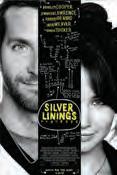

Sliver Linings Playbook
Luckily, Marvel have gone back to basics this time round, and set Iron Man against his longeststanding foe, terrorist Mandarin (Ben Kingsley, with unlikely hairdo). Let battle commence.

Tom Roberts, 36, children’s author
Watching: Wild Britain with Ray Mears (ITV1) He has real passion, pointing out details about this country’s wildlife you’d otherwise have missed.
Reading: Wolf Hall by Hilary Mantel This historical fiction about Thomas Cromwell is succinct and brutal.
Rom-com about two troubled (but beautiful) souls. Jennifer Lawrence won a best-actress Oscar for her portrayal of a
young widow, determined to win the local dance contest. Jack Reacher Teeny Tom Cruise plays Lee Child’s eponymous 6ft 5in hero in this thriller.
Online: robertburns.org I like poetry, and this tells me all I need to know about Scotland’s national bard.
Listening: Jake Bugg by Jake Bugg A great young talent. Stands out among the many boys with guitars who’ve emerged recently.


BBC 6
Music’s Stuart
Maconie’s pick of the recent releases
The Next Day by David Bowie
Think it’s the New David Bowie album. End of. At time of writing, this LP is something of a closed book. But what little we’ve heard—in particular the stunning, shockingly out of the blue single Where Are We Now?—hints at the best thing Bowie has done in decades; a stark, dark, funky, sometimes noisy, often beautiful meditation on memory, mortality and geopolitics. It demands any reasonable person’s attention anyway, since, with the rumours of his ill health that have swirled for years, this is the unique voice we feared we’d never hear again.
album is almost comically perfect. In what looks like a log cabin in the Arctic Circle circa 1904, the US singer-songwriter sits glowering in a tweed suit while reading a slim volume and drinking tea.

The delicate MOR of his last release Queen Of Denmark has been replaced by dark electronica this time round. But Grant’s sweet, bearish baritone, soaked in years of anxiety and addiction, remains.
180 by Palma Violets
Think a couch-surfing indie tour of every London postal district. Stick-thin and whey-faced, the Palma Violets are being touted as the new Libertines—which is damning with faint praise in this writer’s book. In fact, their punky psychedelia nods to everyone from The Clash to Suede. They emerged via social-media networks, so they’re also being compared with a group who did the same: the Arctic Monkeys. Whether they’ve got Alex Turner’s songwriting chops is another matter, but they do have a fair wind and bags of attitude.
Pale Green Ghosts by John Grant
Think Barry Manilow meets Strindberg meets Kraftwerk.
The cover of the new John Grant


Technology expert, BBC 5 Live presenter and Answer Me This! podcaster
Olly Mann reveals the latest must-haves
April 03–07
The Gadget Show Live, Birmingham NEC
April 23
St George’s Day
April 26–May 3
Sony World Photography Awards exhibition, Somerset House, London
April 29–May 5
RSPCA Week
April 30
Honesty Day
Zooka speaker by Carbon
Audio, £79.99
When you watch an action movie on an iPad, explosions of gunfire can sound like a fart in a distant corridor. Try this silicone speaker, compatible with any Bluetooth device, yet specifically designed to slide on to an iPad’s curved edges (it even has a little gap for the camera). The audio is deep and clear, and the removable stand and built-in mic for Skype calls elevate this above the competition.


Sony XperiaZ, £529 (free with contract)
Finally, Sony embrace the Android operating system and
Mimobot Darth Vader 8GB, £19.99.
USB flash drives?
Not generally fun. Copying your files on to a pocket-sized evil overlord? Fun.

abandon the idiosyncrasies—such as a layer of pointless Sony apps that slowed their smartphones down—that gave their big rival Samsung the edge. This top-end HD model has a 13-megapixel lens for impressive shots in a wide variety of light conditions. It’s also waterproof—make sure you select only the front-facing camera when video-calling your mum from the bathtub.
Vine, free app (iPhone)
Make sixsecond video clips with a swipe of your finger and upload them to Twitter at the touch of a button.




ESPNcricinfo cricket blogger, broadcaster and stand-up comedian Andy Zaltzman previews the best of the month’s action
The Grand National, April 6 Purists prefer Cheltenham, but this race is the big one for the horse-neutral. Who could fail to be stirred by the majestic sight of 40 animals charging at literally breakneck speed towards fences that look big enough to be harbouring an MI5 safehouse, while 30 million people hope that the one whose name they most liked in the newspaper can stagger to exhausted victory? Animal-welfare fans. But apart from them, who?
After the nag-meat scandal, the horse-munity will be looking to the likes of early favourites On His Own and Seabass, and unfancied outsiders such as Unlicensed Nursing Home, Dog Dog Hammersnout and Nigel the Lunatic to restore equine pride. Zaltzman’s Ante Post Tip: Teaforthree (18–1). I like tea.

World Coal-Carrying Championships, Gawthorpe, Yorkshire April 1 This is where the real sportsmen
strut their stu . If by “stu ”, you mean “coal”. And if by “strut”, you mean “carry”. Mrs Thatcher’s least-favourite sporting event.
The Masters, Augusta, US April 11–14 The must-see golf tournament of the year for fans of unrealistically perfect foliage and the lingering resentment of change. While it can on occasion be hard to find players to root for amid the temples to expressionless self-control who predominate on the pro golf circuit, the McIlroy-Woods rivalry could be one of international sport’s highlights in 2013.
European Weightlifting Championships, Tirana, Albania April 8–14 Weightlifting o ers a compelling mixture of delicate competition strategy and people with necks the size of industrial tunnelling equipment lifting the equivalent of a well-stocked freezer over their heads. And Tirana is the holiday destination of 2013. Go there immediately. n

This wonderful seven-night holiday takes us to the shores of beautiful Lake Maggiore, set among the snow-capped peaks of the Italian Alps, to explore by boat, cable car and on the scenic Centovalli Railway.
DAY 1: London to France
We leave St Pancras International on a Eurostar for Paris then travel on the high-speed TGV service to Strasbourg, where we spend the night at the 3* Ibis Strasbourg Centre Gare Hotel.
DAY 2: Onwards to Lake Maggiore
This morning we continue our journey to Italy. We arrive at Stresa railway station and transfer to the 4* Milan Speranza Hotel au Lac, located in the centre of Stresa overlooking the lake. We dine together in the hotel this evening.
This morning we enjoy an excursion by boat, cruising to picturesque Isola Bella. The island is dominated by the sumptuous Borromeo Palace, which is set amidst spectacularly beautiful Italian gardens.
DAY 4: A free day
Today you are at leisure to relax in Stresa, possibly taking the time to further explore the town. You could enjoy a walk along the pretty lakeside promenade, which is lined with colourful villas and beautiful gardens.
DAY 5: Centovalli Railway
Today we enjoy a journey on the scenic Centovalli Railway, which winds through valleys and past deep ravines, over bridges and through tunnels, on a marvellous route between Domodossola and the lakeside town of Locarno. On arrival in Locarno, you are free to have

8 DAYS FROM lunch and explore the picturesque Old Town at leisure. We then cruise back down the lake to Stresa.
DAY 6: Mount Mattarone by cable car
This morning we enjoy an ride on the cable car to the summit of Mount Mattarone, where we are greeted by superb panoramic views, not only of Lake Maggiore and the surrounding Italian and Swiss Alpine peaks, but of six other lakes in the region (Lake Orta, Lake Mergozzo, Lake Varese, Lake Camabbio, Lake Monate and Lake Biandronno).
DAY 7: Returning to Dijon
We begin our journey home today, travelling through Switzerland and via Lausanne to Dijon, where we spend the final night of the holiday at the 3* Ibis Hotel Dijon Arquebuse.
DAY 8: Homeward Bound
We travel by high-speed TGV to Paris, where we join the Eurostar to St Pancras International in London.
between
£975
Your Lake Maggiore holiday includes:
Return rail travel
7 nights’ hotel accommodation with breakfast and dinner
Isola Bella boat excursion and entrance to Borromeo Palace
Trip on the Centovalli Railway Excursion on the Mount Mattarone cable car
The services of a Tour Manager
At Treyn we pride ourselves on giving you superb value for money. We make sure that all you need for a wonderful holiday is included: comfortable hotels, many meals, exciting itineraries and, of course, you’ll be accompanied throughout by your experienced Tour Manager. There are no surcharges or hidden extras.
for a part-time job as a porter. After a fairly brief interview, I was asked if I had any questions.
Naturally, being a skint teenage student, I asked how much I’d get paid and what the tips were like. The interviewer laughed and told me it depended on how quickly I picked things up.
As it was a porter’s job, I assumed he meant picking up bags and cases. To demonstrate my skill in this area, I began dropping and lifting my school bag from the floor as quickly as I possibly could.
I didn’t get the job.
Craig Chiswick, Essex

“I know cyber bullying is supposed to be the way forward, but you know me— I’m hopeless with computers”
¶ I was waiting in a queue in a clothes store when I heard a woman, clearly enjoying the attention she was getting, complaining to an assistant.
“I love this cardigan, but it’s been spoilt by this big button on it,” she moaned. “It’s the wrong colour, it looks ridiculous and it sticks out. You should speak to the person who designed it and tell them to remake it. A good shop should take notice of its customers, you know.”

The assistant looked at the woman and said quite calmly, “Madam, that’s a security tag.”
The woman went crimson and fled while the rest of the queue dissolved into laughter.
Joanne Wilkinson, She eld
¶ Out walking with my threeyear-old grandson one windy day, I pointed to the sky above and said, “Do you see that big bird? It’s called a red kite because it has beautiful red wings.”
He thought for a while before replying, “But nanny, I can’t see the string.”
S Nelder, Oxford
¶ While working in the canteen at a university, a polite visitor approached the counter and asked about vegetarian options.
I carefully went through everything with him. At the ►
end, he thanked me and said, “I’ll have the chicken.”
Erica Biggs, Su olk
¶ I was at a drivers’ speed awareness course recently and was surprised to see a husband and wife in the same lesson.
I asked them how they’d managed to get caught at the same time, and he grumpily replied, “I was following her.”
Fiona McGarry, Hampshire
¶ My son was in a stroppy mood and announced, “I ain’t doing my homework!”
I corrected him and said, “It’s not ain’t. It’s ‘I’m not doing my homework, she’s not doing her homework, he’s not doing her homework, they’re not doing their homework.’ ”
“Gosh, Mum!” he replied. “Is anyone doing their homework?”
Suzanne Roswell, Norfolk
¶ A few years ago, I was working as an administrative assistant in an HR department. We were very busy one week because a clerk had rung in saying his
¶ WHILE ON A HOLIDAY CRUISE, we got chatting to another couple after we joined them for breakfast.
The wife told us they’d nearly missed the cruise as her mother had passed



“Admit it, Henry, we’re lost”


grandmother had died and he had to go to her funeral.
excerpts@ readers digest.co.uk OR GO TO facebook. com/readers digestuk
When he returned to work, our manager went up to him and asked, “Do you believe in life after death?”
“Yes, sir,” he replied.
“I’ve had confirmation too,” our manager said. “On the day of your grandmother’s funeral, she rang this o ce to speak to you.”
Jillian Cohen, Leeds
away three weeks before, and her dad had celebrated his 80th birthday the previous week.
“So he’s a Taurus just like me then,” said my partner.
“He certainly isn’t,” the
lady snapped back indignantly. “He’s voted Labour all his life!”
She eventually realised what she’d said after we all burst out laughing.
Pam Smith, Buckingham ■
Every year thousands of people put their faith and trust in Cats Protection when looking for a new addition to the family. Behind each volunteer and member of staff is a wealth of experience and expertise which means when you adopt one of our cats, you can feel safe in the knowledge that he has been given the best possible care.
When he leaves Cats Protection, your cat will have been treated to a top-to-tail medical.
This means he will have been:
• Fully examined by a veterinary surgeon
• Vaccinated at least once against flu and enteritis
• Treated against fleas, roundworm and tapeworm
• Neutered if old enough
• Microchipped

We also provide four weeks’ free insurance (terms and conditions apply) giving invaluable peace of mind and reassurance as you and your cat embark upon this lifelong friendship.
All he needs now is a loving home to make his dreams come true – over to you!
T: 03000 12 12 12
E: helpline@cats.org.uk
W: www.cats.org.uk
Reg Charity 203644 (England and Wales) and SC037711 (Scotland)
Did you know that there is a herbal remedy available to help men with bladder symptoms of an enlarged prostate such as frequent urination, weak stream and having to get up at night for the toilet?












A traditional herbal medicinal product used for the relief of lower urinary tract symptoms in men who have a confirmed diagnosis of benign prostatic hypertrophy (BPH), based on traditional use only. Always read the leaflet.
Available from health stores, pharmacies, we’re good for you
Available at larger & boots.com
Take a minute to check the health of your prostate. Visit www.avogel co.uk/prostate For more information call our helpline on 0845 608 5858.


The process of digestion is well explained in Gulp by Mary Roach (£11.99), published this month. But how good is your current knowledge of the human body? Answer A, B or C below.
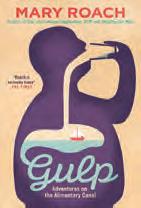


1 corpuscle n A torso
B blood cell C kneecap
2 hepatic adj A related to the liver B infected C related to old age
3 cortex n A outer brain
B shin bone C blood vessel
In its new sense, proem means a piece of prose that uses poetic language. It was also used in the Middle Ages to mean a preface or preamble to a book or speech.
RD Rating: Useful? 8/10 Likeable? 6/10
4 renal adj
A related to the kidneys
B spinally curved C low in blood sugar
5 catabolism n
A bone fracture B heart attack C breakdown of molecules
6 colon n A appendix
B large intestine C artery
7 oesophagus n
A neck muscle B roof of mouth C channel from mouth to stomach
8 alimentary adj
A supplied regularly
B providing nourishment
C digesting


9 chyme (kime) n
A partly digested food
B blood clot C severe internal pain
10 amylase (amm-ihlaze) n A type of enzyme
B nerve C lung infection
11 biotin n A blood temperature B heart murmur C type of vitamin
12 duodenum n
A surface of tongue
B throat C part of small intestine
13 peristalsis n
A mucus B muscular movement C paralysis
14 metabolism n
A body’s chemical process
B muscle stretching
C bone crumbling
15 gastric adj A bubbling
B related to the stomach
C fast-beating

COVER STAR GILLIAN ANDERSON’S FAVOURITE WORD? Somnambulist (which is another word for sleepwalker)
9–11 getting there
12–13 impressive 14–15 word-power wizard!
1 corpuscle B blood cell. “Corpuscles can be red or white.” Latin corpus (body).
2 hepatic A related to the liver. “His skin colour revealed a hepatic condition.” Greek hepar (liver).
3 cortex—A outer brain. “The cortex is beneath the skin.” Latin cortex (bark).
4 renal A related to the kidneys. “Renal failure is serious.” Latin renes (kidneys).
5 catabolism C breakdown of molecules. “Catabolism is a crucial part of digestion.” Greek katabole (descent).
6 colon B large intestine. “Minerals and water are absorbed in the colon.” Greek kolon.
7 oesophagus C channel from mouth to stomach. “It’s dangerous to block the oesophagus.” Greek oisophagos
8 alimentary B providing nourishment. “Food passes along the alimentary canal.” Latin alimentarius.

Marshal originally comes from two Old High German words—marah (horse) and scalc (servant), meaning a groom. The word was adopted in English to mean an o cer of the royal family or the court, particularly when speaking of a knight marshal. More recently, it’s been used in the armed forces to mean an o cer of the highest rank, as in a Field Marshal
9 chyme A partly digested food. “Chyme is acidic.” Greek khumos (juice).
10 amylase A type of enzyme. “Amylase converts starch into sugars.” Latin amylum (starch).
11 biotin C type of vitamin. “Biotin is produced in the colon.” Greek bios (life).
12 duodenum C part of small intestine. “The
Play WP online: go to readersdigest. co.uk/wordpower

duodenum is the smallest part of the small intestine. Latin duodecim (twelve).
13 peristalsis B muscular movement. “Peristalsis moves food through the body.” Greek peristellein (wrap around).
14 metabolism—A body’s chemical process. “Metabolism produces energy and growth.”
Greek metabole (change).
15 gastric B related to the stomach. “Gastric juice contains hydrochloric acid.” Greek gaster (stomach). n

Cardioace® has been developed on the basis of extensive worldwide research to help support all round health including nutrients for heart health.
It includes thiamin which contributes to the normal function of the heart plus vitamins B6, B12 & folate which contribute to normal homocysteine metabolism.
Cardioace ® Plus contains 1.3g of Cardiol ™ plant sterols which contributes to the maintenance of normal blood cholesterol levels*
Try Cardioace® today –from Vitabiotics, experts in nutritional support.




The main ways to help maintain a healthy heart and blood pressure include: Eat a balanced diet with 5 or more daily portions of fresh fruit and vegetables to keep your body and heart in top shape.
Exercise –try for 30 minutes of moderate exercise 5 times a week.
Don’t smoke. Smoking can greatly increase the risk of heart problems.
Maintain your body weight within the normal range for your height.
From , Superdrug, Holland & Barrett, GNC, pharmacies, supermarkets, health food stores & www.cardioace.com
Vitamin supplements may benefit those with nutritionally inadequate diets. † Professor Beckett is not cited in the capacity of a health professional, but as a product inventor and former Chairman of Vitabiotics.
*A beneficial effect is obtained with a daily intake of at least 0.8g of plant sterols.
Electricity for street lights costs UK councils a fortune. So dozens of councils now ration street lighting some of the time. While this saves money, it leaves some residents feeling vulnerable.

Architectural engineering researchers at the Universitat Internacional de Catalunya in Barcelona have proposed a timely solution. Aequorea victoria, a Pacific jellyfish, produces green fluorescent protein (GFP), a bioluminescent material that geneticists use as a cellular marker. The team propose splicing the GFP gene into sterile lemon trees to produce natural street lights. This will illuminate, abolish electricity and maintenance costs, and bring safety, fresher air, shelter and beauty back to the streets by 2025. In addition, substantial carbon taxes councils now pay for CO2 pollution by traditional lights will disappear.

Korean scientists exploring the e ect of asparagus on liver cells have shown an extract of the vegetable can significantly alleviate the oxidative stress caused to the liver by excess alcohol. It seems the amino acids and minerals found in asparagus are good for a hangover— and maybe other liver disease too. With surveys estimating that over half a million Britons are hungover at work every day—with a loss in productivity of £6.4bn a year—expect an asparagus-based hangover remedy in workplace vending machines by 2018 .
As for the odour associated with eating asparagus, recent genetic studies have shown about eight per cent of individuals don’t produce it. With luck, you’ll work with them.
In recent experiments soldiers, whose heads were stimulated with two milliamps of electricity, found their ability to spot an impending ambush demonstrably improved. Other trials suggest this transcranial current stimulation helps people learn faster and retain knowledge longer.
So could “brain stim” devices help students learn and athletes focus? Maybe. Clinically approved headband-mounted transcranial current stimulation devices will likely be in shops within the year.






Bill Neely, international editor, ITV News—who’s just returned
People are su ering terribly. It’s not just the 70,000 dead—or even the two million who’ve fled their homes. It’s the millions who endure hardship every day. On a recent trip, I waited for hours in Damascus with groups of desperate civilians—men, women and children—before they sprinted across the no-man’s-land for bread. Their faces were strained from weeks of taking the same risk. These were people who knew they were risking everything for a loaf—and every time they ran, you could see the bullets whip up from the road or crash into the walls of nearby buildings.

“How long will you go on doing this?” I asked one man. He looked to the sky and raised his hands. “Only God knows,” he replied.
In March 2011, there were peaceful street protests against the president, Bashar al-Assad. To many this seemed part of the Arab Spring, but Assad declared that Syria would be immune from revolution. He then made a crucial miscalculation: instead of talking to protesters about their grievances, his army and police opened fire on them.

Armed men began firing back at the police and troops—and, after months of fighting, a rebel organisation—the Free Syrian Army—was formed. Many government troops deserted to join them and the situation degenerated into a full-scale civil war. In the last eight months, Islamist fighters have also poured across Syria’s borders, hoping to turn it into a hardline Islamic state, and carrying out dozens of bombings and suicide attacks.

Syria is badly split along very complicated religious and social lines, and there are now multiple divisions among the rebel groups too. There are many people who dislike Assad, but they don’t want Syria’s secular society to collapse.

Although his father Hafez rose from poverty to become president of Syria in 1971, the young Bashar was shy and seems to have had no political ambitions. After graduating from medical school, he worked in London as an eye surgeon, while his brother Bassel became the heir apparent. But in 1994 Bassel was killed in a car accident and Bashar was recalled to Syria to be groomed for power. He succeeded his father in 2000.

In 2000, Assad married Asma al-Akhras, who was born in Britain and went to her local C of E school in London. Her parents were Syrian—her father a consultant cardiologist in London, her mother a retired diplomat. Asma is now said to be depressed, and there are reports that she’s pregnant with their fourth child.
Syria is allied to Iran, once ran Lebanon, and for decades Assad’s Ba’ath party was allied to Saddam Hussein’s in Iraq. If the country explodes, it has the capacity to cause tremors across the region—and already other states are being drawn in. Turkey has fired at Syrian planes. Israeli jets have bombed sites near Damascus. Saudi Arabia and Qatar are supplying arms to the rebels.

Assad has staked everything on crushing the revolution. A third of the people support him, a third want to hang him and a third are waiting to see which way the revolution swings. Few expected him to last this long—but now there’s every chance he might still be around in 2014, when he could stand for re-election.
Tony Duerr is chairman of Duerr’s, the oldest family-owned jam producer in England. Based in Manchester, the company has been making preserves to their family recipe for 131 years. Tony has directed the company for more than 50 years, joining in 1957. He was awarded the OBE in 1995.
I’d change the employment laws. It’s very di cult to run a business these days because there is so much red tape. In an economic climate where the future isn’t rosy, employers are reluctant to take on new sta because it’s so expensive to get rid of them if they turn out wrong for the job. It’s no wonder that only two per cent of family companies get through to the fifth generation [as Duerr’s has].
When I started running the firm in the 1950s, things were a lot easier. Any business is fragile and I’d make sure that employment laws encouraged the hiring of sta ; creating jobs is vitally important to the economy.
I’d make sure children played sport for at least four hours a week. Children nowadays spend far too much time in front of the TV and computers, or with their dreaded smartphones.
Sport, as the Olympics showed last year, is wonderful for well-being and creating a team spirit. It’s a microcosm of life; it’s important to realise that, while you might get thrown up to great heights, no sooner






do you stand there preening yourself than you get knocked in the teeth back down to earth. We must have competitive sports—it’s nonsense to say children can’t have a running race because little Johnny might come last. Life isn’t fair, and the sooner children learn to deal with setbacks, the better.
I’d tell everyone to eat marmalade for breakfast. Admittedly, it may not be the most healthy option, but it gives you a real lift in the morning. I’m 75 now, so I watch my weight and opt for the
half-sugar variety, with big pieces of peel to get that fresh taste and get me going first thing in the day.
I’d get technology to slow down so that I can catch up. It’s a terrible thing when you have to ask your four-year-old grandchild to sort something out on your iPhone. If one had a telescope that looked down at the advances we’ve made in the last 100 years...well, the speed of change is just a miracle. I use my computer for at least two hours a day (thank goodness for the spellcheck!), but I know people of my generation who wouldn’t even know how to turn one on.
I’d make sure golfers clocked in on the first tee and had to finish 18 holes in three hours. I’ve been playing golf for 60 years, and it’s a great way of getting away from the pressures of work, but I get so annoyed by slow play! It also isn’t fair on the family left at home to be gone for hours on the golf course. I’d get the game moving a lot faster if I had my way.
I’d ban drivers who throw litter out of their cars or don’t indicate properly. Both of these show a lack of concern that is endemic in society. People have become 100 times less considerate during my lifetime—it’s terribly sad.
I’d encourage families to sit down to a meal together twice a week. The greatest joy in my life is that my three
“Life isn’t fair, and the sooner children learn to deal with setbacks, the better”
children are all friends with each other. As they got older and started flapping their wings, we’d make sure we got together twice a week to chat and find out what they were up to. There’s nothing more important than the family unit.
I’d take the money from the space programme and spend it on the prevention of malaria. Between one and three million people die every year from malaria; 70 per cent of these are children under the age of five.
As a frequent visitor to Africa, I’ve seen for myself the hardships these children su er. Although the achievement of landing on the moon was extraordinary, I can’t see that it’s helped mankind much. Imagine if all the money spent on the space race had gone instead towards saving lives around the world.
I’d introduce the sin-bin bench to football. It works very well for rugby, so why shouldn’t we have it for football, too? The way some footballers treat the referee is appalling and a dreadful example to children. A few minutes out of the match to cool down on the bench would teach them to behave much better. ■ As told to Caroline Hutton
For more about Tony’s company, see duerrs.co.uk or facebook.com/duerrs1881
Writing stories is not just for school, says James Brown
When was the last time you sat down, made a story up and wrote it down for the fun of it? I’m guessing school. That’s the case with me—I can count the number of fictional stories I’ve written since then on one hand.
Somewhere along the way, one of the easier and more stimulating exercises at school totally dropped out of my life. As children we’re reared on stories, but we stop exercising our imaginations when we become adults and just let Hollywood and other people’s books take over. And yet anyone can do it. I’ve just done it myself.
gives you a strict brief—in this case, a time limit to pen a tale. It could be about anything—his aim is just to get people scribbling. For some it’s a memoir, others fiction, others an elongated joke. For example, there’s a great story on there about a rockabilly obsessed with cutting off old-fashioned telephone handsets from red phone boxes.
It took me a few weeks of thinking

about it in idle moments to chase an idea around. I felt that if I just sat down and wrote, it might not be too good—the thinking was important.
Johnny Lake, a guy I know in New Jersey, has started a blog at 20minstory. blogspot.co.uk. I’ve now written three stories for him. Like the Reader’s Digest 100-word story, the 20-minute story
As each week passed, I kept feeling guilty and thinking, I must write that story I promised. But I found it’s not as easy as just recounting an opinion or experience as a journalist—especially when you’ve

only got 20 minutes to complete it. To make something up and finish it in that time, you need to have the idea. And you also need 20 minutes uninterrupted (not as easy as it sounds when you have no attention span).
Eventually I found the idea and the moment. I picked up my iPad in bed in South Wales and wrote about the weather I might encounter driving
mind of a guy who goes hunting for wild and reckless weather, explaining why he loves it so much and how the charge of nature makes him feel truly vulnerable and mortal.
I finished it in 18 minutes and sent it off to New Jersey. Johnny published it and I linked to it on my social media. People read it and gave me feedback. I hope it inspired others to give it a go.

through the Breacon Beacons, across the country to the Yorkshire Moors, and on to Northumberland—some stunningly rugged countryside, which at the time was in the grip of rainstorms, floods and snow threats.
I thought about those exciting and unstoppable TV images of old stone bridges being washed away by the fury of swollen rivers, and set my story in the
Since then, I’ve written another about fear and fantasy in the face of potential terrorism on the Tube, and another about meeting Quentin Tarantino’s parents on a plane many years ago.
It feels good to be writing something for no other reason than the fun and the challenge of it. I’ve been lucky to have some great jobs, but something I’d
The deadline felt like being ordered to get on with it and make something up on the spot
really like to do is become a fiction writer—maybe crime fiction, maybe something a little more real. The 20 Min Story is an opportunity to try a different discipline and see my ideas sitting alongside other writers’.
The deadline helped to clarify what I was writing—it felt like being ordered to get on with it and make something up on the spot. In all three of the stories, I haven’t gone back and edited anything. I’ve written the first page of a book about my life in publishing and music many times, but in this case I’m actually able to finish a story. Completing it gives me
some satisfaction, whereas so much of what I do goes unfinished.
All you have to do is set the clock, write the first words and you’re away. n
James, founder of Loaded magazine, now edits Sabotage Times—an online magazine with the motto: “We can’t concentrate, why should you?” Follow James on Twitter @jamesjamesbrown
We’ll be announcing the winners of our 100-Word Story Competition in next month’s issue. In the meantime, read one of our commended stories below.

This imaginative anthropomorphic tale was submitted by Zoe Sora (pictured above), from Buckhurst Hill, Essex. Zoe will receive a cheque for £70.
“Yo! Why you stroking me? How would you like it if I stroked you? You might think that because I’m wagging my tail it means I’m happy; I want to whack you with it! Of course I’m smiling, so you can stop stroking me! When I stand up on two feet it may look funny and ‘cute’, but that’s bullying. Stop playing around and give me the treat! QUIT THROWING THE BALL! Haven’t you heard of a rest? I come back; you stop,” I argued.
“Bring it on, doggy!” my owner replied.
“I’m ready, punk! You gonna cry?” I screamed.
Zoe says: “My English teacher told my class that we should all enter this story competition, and I knew straight away I wanted to write about my dog Ollie. I’ve always wondered what he thinks about—although people say he’s happy when he wags his tail, I have concerns that perhaps it’s the opposite! My curiosity about this inspired me to write my story.”















Andrew Duncan has a roughand-tumble interview with Gillian Anderson—star of new BBC2 drama The Fall—and rather enjoys it. Sort of

My encounter with Gillian Anderson is a lively joust—with a constantly uncertain outcome. She arrives, punctual to the second, at the London hotel where we meet, unencumbered by that ubiquitous and stultifying accoutrement of fame—the agent or PR person. But during our interview there will be a few times when I fear she might throw her glass of water over me and walk out.
At 44, the acclaimed actress is a gorgeous, petite, blonde bundle of contradictions, warm yet reticent. One moment she’s friendly, guileless, almost girlie; the next, edgy and suspicious.
She says the problem is that it’s not hard to make fun of her—“Actors are easy meat. Anything you say can be seen as pretentious”—and vows every interview will be her last. “Some journalists have it in for me. There was one from The Sunday Times last July. Oh my God, it was unbelievable. It shocks me that someone can feign to be nice and the article turns out so nasty.” The interview mentioned the “peculiar” way she replied
when asked if she had a partner; seemed to mock her “therapy speak” and made much of the fact that she’d recently attended Tatler magazine’s Lesbian Ball (along with lots of other straight women) after she’d told another journalist she’d had a gay encounter at school.
The reason I’m here is to discuss the new BBC2 series The Fall. Gillian plays Detective Superintendent Stella Gibson, a Met officer on secondment in Belfast to track a serial killer. It’s unusual because viewers are shown the murderer’s identity from the beginning, making it an intriguing cat-and-mouse game.
“I think it has the potential to get viewers on a deeper level than they’re used to,” says Gillian, who helped edit the show, using on-set police advisers to make the story believable. “The writing [by Allan Cubitt] is complex and has a deep understanding of human nature. I’m intrigued by Stella. She’s not square like Scully [the FBI agent Gillian famously played in The X-Files] nor overbearing or mean-spirited. Ego doesn’t run her show.”

At one stage, Stella meets a detective in the street and immediately invites him back to her hotel room. “She’s comfortable in her own sexuality. The scene mirrors one of the serial killer’s victims who’s studied a tribe where a woman can see a man she finds attractive, spend an enjoyable night with him and he leaves next morning. There’s no commitment. It’s sweet, although I’m not sure it would work in our society.”

A job for Mulder and Scully: with David Duchovny in The X-FIles

In spite of her enthusiasm for the series, she’s wary. “Many times I’ve filmed something that seems special, but when it sees the light of day, only a small group agrees. It’s a weird, sad feeling, but that’s the nature of the business. Actually, it’s a miracle when anything good gets made because so many things can go wrong.”
She’s played plenty of law-enforcement officers before—from Scully to an MI7 agent in Rowan Atkinson’s Johnny English Reborn. Even so, the perennial success of cop films slightly bewilders her.
“There have been very effective TV shows—The Wire, NYPD Blue—and now female-driven series like The Killing, which I was addicted to. Clearly some-
“I WAS PROM ISCUOU S, DRI NK ING A LOT AND LUCK Y TO COME
thing works, but I have no idea what it is because I don’t normally watch them.”
Gillian was born in Chicago and moved to Crouch End, north London, at the age of two. Her father studied at the London Film School—going on to run a postproduction company—and her mother worked as a computer analyst. When Gillian was 13, the family returned to the US and lived in what she thought was the stultifyingly provincial Grand Rapids, Michigan, where her parents had two more children. She was jealous of them and rebelled by becoming a punk with a stud in her nose, dyed red hair and a musician boyfriend ten years her senior.
She shudders. “I was promiscuous, drinking a lot and lucky to come out the other side.” Her classmates voted her the “Girl Most Likely to be Arrested”. They were right. She was apprehended by the police on graduation night “when I tried to glue the school gates shut. I’m pretty sure it was the only time, though”.
After acting at school and college, she turned professional, and was just 24 when she was cast in The X-Files, an initially low-budget sci-fi show that became a surprise worldwide hit for the next nine years.
Ill-prepared for publicity, she regrets that she posed in knickers for FHM whose readers voted her the world’s sexiest woman. “I was very naive.”
When The X-Files ended, she returned to London, where she felt she’d be less typecast and able to find more theatre work. However, her 2002 West End debut in What the Night Is For was sniffily disparaged by some critics for drawing an audience of X-Filers rather than “proper” theatre-goers.
“Even now I’m in a box in America. I understand that. They wonder what I’ve been doing. They don’t realise I’m a character actress—even though I do a lot of work. If I didn’t feel so happy in London I’d get on a plane and try desperately to remind everyone, but they’re not going to offer me a Bleak House [she played Lady Dedlock in the 2005 BBC1 series] or The Crimson Petal and the White [BBC2’s adaptation of Michael Faber’s epic novel, in which she played a Victorian brothel-owner].”
In 2009, she was nominated for an Olivier award for best actress as Nora in a production of Ibsen’s A Doll’s House. “I’ve played my fair share of strong characters because I can pull them off, regardless of whether or not I am myself.” And are you? I wonder. “Yes. But aren’t we here to talk about new ideas? I can see this is going to end up being dreadful.”
Recently, she’s made several yet-to-be released films, including Mr Morgan’s Last Love with Michael Caine and I’ll
“I’VE
“Part of me has always wanted to do art”: as Ibsen’s Nora in A Doll’s House

Follow You Down with Rufus Sewell. “What else would I do but work? I’m only in my forties. And I probably only do it six months a year. Mostly I pop in for two or three weeks. The Fall was my biggest commitment for a long time. I’d like to play Blanche DuBois [in Tennessee Williams’s A Streetcar Named Desire]. Part of me has always wanted to do ‘art’. Hopefully in my seventies, when I’m done with my ‘popular’ work, I’ll allow myself to do more.”
Is that frustrating? “Why are we talking about me being frustrated, in a box? It’s freaking me out. I’m not frustrated.”
Indeed. We return to a safer subject— her affection for Britain. “London is my favourite city in the world. I love everything about it—it’s a great place to bring up children and there are so many green spaces. People in the British service industry are so great. And, by the grace of God, I don’t have paparazzi outside my door. It would be a shame to go back to America, although I’d never say never. It would only be for work. Or love.”
Now we’re sailing back into choppy waters. In 1994, she married X-Files assistant art director Clyde Klotz and had a daughter, Piper, now 18. The marriage broke up in 1997. In 2004 she wed

“I’ve had a fabulous time with fabulous men”: Gillian with expartner Mark Gri ths documentary-maker Julian Ozanne, but they separated two years later when she was pregnant by businessman Mark Griffiths. She and Mark have two sons, Oscar and Felix, but announced their separation last August.
She has admitted before that there’s “a huge list” of things that make her difficult to live with. I suggest—possibly unfairly, certainly tactlessly—that she mightn’t be very good at relationships.
She gasps, “That’s a very bold statement. Oh, my goodness! Did you really say that? I’m shocked, and wonder if I should answer. You have completely thrown me.” Nevertheless, she laughs.
I wonder how happy she is. “Is anyone always happy?” she says. “Every day’s different. But does it matter? Why would I not be happy because of my personal life? I’ve had a fabulous time with fabu-
lous men. There’s nothing wrong with that.”
She’s thoughtful for a while, then adds, “I try very hard not to be right so much. That’s important in life. I agree with the phrase, ‘I’d rather be happy than right’, but it’s hard sometimes. It feels good to be right. I’m definitely not all the time. I have lots of people to tell me that.”
All those men? I attempt frivolity, unsuccessfully. “I didn’t say that. Can you see what an unbelievably provocative thing it was to say I’m not good at relationships? You pretend to be a kind older gentleman and then say something like that. It’s bizarre. Why is it my responsibility to keep a relationship going?”
We ponder that, then she smiles—it’s her turn to be ironic, “All right, darling, you’re correct. Is that what you want?” And she leaves, still laughing and goodnatured. I hope. n
The Fall starts on BBC2 this month.

There’s nothing like a game…
With computer games already more popular than the music and film industries combined, dedicated gamers are starting to notice something called “game transfer phenomena” (GTP), whereby the world of the game intrudes on real life. According to one study, 50% of gamers have these moments—seeing thought bubbles, imagining life bars above people’s heads, or reaching to click a button on a non-existent controller.
So should they be worried? Researchers at Nottingham Trent University agreed that GTP could have “negative behavioural consequences”, but headlines such as “Gamers Can’t Tell Real World from Fantasy” are probably a little overblown.




Two decades ago, the people of Rwanda were driven apart by vicious genocide. Today, once bitter enemies are united—over a humble cuppa
 BY VERONIQUE MISTIAEN PHOTOGRAPHS BY TIM SMITH
BY VERONIQUE MISTIAEN PHOTOGRAPHS BY TIM SMITH
Philomène Mukambanda, 48, looks around and smiles. Beautiful hills carpeted by tender green leaves stretch as far as she can see. The single mother of seven is standing amid the plants of her tea farm, part of the vast Kitabi tea estate in south-west Rwanda. She works hard and doesn’t earn much by Western standards, but says, “I’m happy because this plantation pays for my children to have an education. I see a good future for us.”
Things could have been very di erent. In April 1994, long-running tensions and civil war between Rwanda’s Hutu and Tutsi ethnic groups culminated in the assassination of Hutu president Juvénal Habyarimana. Enraged militia began massacring Tutsis in revenge, forcing Hutu civilians to join in and turning neighbour on neighbour. When the genocide ended three months later, one million Tutsis and Hutus who opposed the violence had been killed—one in ten of Rwanda’s population—and twice as many had fled into exile.
I can’t ask Philomène exactly what happened to her during the genocide, or why she’s single. Rwandans really don’t want to talk about the violence, and it would be severely frowned upon for me to ask whether she’s Hutu or Tutsi. To help bring reconciliation to the country, the Tutsi-led Rwandan Patriotic Front government has banned discrimination
on these grounds. But we know that the carnage was particularly severe in Kitabi and the surrounding area because it was the last part of the country to fall under the Patriotic Front’s rule as the genocide and the civil war ended.
On the road to the plantation, we pass the Murambi technical-school building, a stark memorial displaying the skeletons and mummified bodies of some of the 45,000 people who hid here from Hutu fighters but were overrun and slaughtered. Around Kitabi, there are clusters of graves, the dilapidated houses of victims, and people with machete scars. More than 60 per cent of the plantations’ 4,700 smallholders are women because so many men were killed—or did the killing—during the genocide, and many are still in prison. You can see them in pink jumpsuits working for the community on roadsides and in the fields.
But, exactly 19 years after the genocide started, Rwanda is recovering. It’s the fastest-growing economy in Africa. And as tea is Rwanda’s fourth biggest export behind tourism, minerals and coffee, the Kitabi plantations are playing a vital role—with a little help from a Yorkshire family company.
“This tea is like no other. Look at this rich, golden glow,” enthuses Ian Brabbin, head of tea for Taylors of Harrogate, handing me a cup of freshly brewed Kitabi leaves. “It’s brisk and coppery, with a special liveliness and refreshing quality. It’s like turning a dimmer switch in your cup higher and higher.”
The British firm has been buying tea from Rwanda—where the high-altitude plantations, volcanic soil and temperate ►


“THIS TEA IS LIKE NO OTHER. IT’S LIKE TURNING A DIMMER SWITCH IN YOUR CUP HIGHER AND HIGHER”
IAN BRABBIN, HEAD OF TEA FOR TAYLORS OF HARROGATE






climate give it a unique flavour—for more than 35 years. The finest leaves from Kitabi and other top Rwandan estates are an important ingredient in Taylors’ Yorkshire Gold blends. But during the genocide, plantations were ransacked and neglected, and the quality of the tea inevitably suffered.
So in 2009, the company matched a £249,000 grant from the Department for International Development to launch a project that has so far helped improve the lives of more than 10,000 farmers and their families on Kitabi and two other estates, Gisovu and Mata.
Improvements at Kitabi include careful temperature monitoring of the tea’s fermentation process at the estate’s processing factory, and new safety procedures such as earplugs and machinery safety covers—workers barely used to even wear protective equipment, and accidents were common. Some 64,000 indigenous trees have been planted to improve local biodiversity, there’s a new wastewater treatment system, and farmers are taught how to plant in terraces to reduce erosion and use waste matter to make compost. This has led to 3,600 hectares of tea gaining certification from

international environmental-monitoring group the Rainforest Alliance, adding value to Kitabi’s tea in eco-conscious Western markets.
Philomène, the Kitabi cooperative’s secretary, says that, as a result of the project, their yield has already increased by at least ten per cent, and they’ve also saved money by using less fertiliser. “As our revenues keep increasing, we’ll be able to afford good schools and healthcare,” she says. Workers also now have toilets and showers at home and in the fields, wear protective clothes when spraying, and have improved local soil

quality, which will increase yield still further. Minimum wages for tea pickers have also increased by 40 per cent.
But bringing new vigour to Kitabi has helped do something even more important than boosting people’s income.
The years following the genocide were very difficult, says co-op president Pascal Nsabimana. “We used to fear each other. Some of us didn’t dare go out and pluck tea because there was so much resentment and suspicion.” Philomène and other workers nod gravely.

MINIMUM WAGES HAVE INCREASED BY 40 PER CENT FOR TEA PICKERS
“But the closer you work to someone, the more opportunities you have to express genuine remorse, to explain what you’ve done or to forgive. We’ve discussed our different ideologies, and slowly the fear has disappeared.”
“Tea farmers are organised into cooperatives, so innocent and guilty, victim and killer work alongside each other,” says Dr Ndambe Nzaramba, deputy director general at the National Agricultural Export Development Board. “They share the same problems, plan together, work for the common good—and that’s how the healing happens.
“One of the causes of war is poverty, on top of social inequalities,” he adds. “Orphans and victims are more likely to forgive and not seek revenge if they have food on their table—and hope.”
There’s a particular emphasis at Kitabi on building a prosperous new generation. In the past, farmers’ children worked on the plantations or missed school to care for siblings while their parents plucked tea. Now, kids go to school while toddlers are looked after in nurseries created by a partnership of Taylors, various tea

factories, the UK’s Ethical Tea Partnership and other organisations. The partnership has also funded vocationaltraining centres, so tea-picking isn’t the only source of income for families.
Innocent, a 16-year-old whose parents are tea farmers, recalls how he used to pluck leaves from dawn to dusk, but wasn’t even able to pay for the pastry he’d bought on credit in the morning— his only meal of the day. “People looked down at me. I felt like a nobody.”
He’s now training to be a tailor, alongside 15 other teenagers, on a course organised by cheery nuns—who also run carpentry classes. The youngsters have already attracted regular clients and plan to launch a sewing business together in the near future. “I’ve gained people’s respect and I respect myself,” says Innocent.
But the 1994 genocide and the scars it left may not be forgotten for generations to come. Every year, representatives from


tea estates all over Rwanda meet at one plantation for a special ceremony to commemorate the dead. They listen to speeches, attend a religious service, then visit graves to lay flowers. But in Kitabi, thanks to once-warring ethnic groups now working together, the violence is at least becoming part of history.
“As a family business, we’ve long been committed to working with tea growers, around the world,” says Ian Brabbin, whose firm has been able to increase the proportion of Rwandan leaves in its Yorkshire Tea and Yorkshire Gold blends to 50 per cent, thanks to the improvements at Kitabi and other plantations. “But it’s in this country that we’ve been able to support and witness the most significant transformation. It’s been truly inspiring to be part of a collaboration that’s helped to improve lives, strengthen communities, grow the economy and ensure a brighter future for the country—all thanks to a proper cup of tea.” ■
Fighter pilots have to withstand huge G-forces in combat or they risk blacking out. This presented a major dilemma for flight researchers… and they spent a lot of money trying to solve the problem. Their research worked and the pilots were able to fly aggressively.
But they also found an amazing discovery. They discovered that some of the pilots now had lower blood pressure!
Curious researchers sought to find out why this was true. This research led to the development of the Zona Plus® therapy device, where the researchers discovered a unique ‘triggering point’ that multiplies the normal response of isometric handgrip exercise into substantial blood pressure drops.
Early research showed such a large blood pressure drop that doctors didn’t believe the small studies. However, as more and more studies were published they all showed similar results. Finally, after several years of results, the Zona Plus® is becoming accepted around the world. The clinical evidence just keeps getting better, with 15 independently published journal articles showing significant blood pressure drops in 95% of patients.*


“As long as I can remember I’ve always had elevated blood pressure. My blood pressure peaked at very high levels particularly in stressful situations. Being quite an energetic character I took it as God given. I did take my medication, but only reluctantly and not very consistently. Shortly after starting with my Zona Plus Therapy, my blood pressure dropped so quickly that I felt dizzy and had ringing in my ears. It turned out that my body just needed time to adjust to a lower blood pressure. Now my blood pressure is normal, I feel great and take better care of myself. Zona Plus helped me to finally achieve healthy blood pressure levels but also increased my resolve to do something about this disease.” Mr J Blattner
We all know aerobic exercise is good for the heart and typically drops blood pressure a little, but the Zona Plus® isometric therapy done just 12 minutes a day decreases blood pressure by two to three times that much. You can see a video at www.zonahealth.co.uk
The therapy produces physiological changes in the body, including improved endothelial function, nitric oxide production and improved vagal tone. The combined effect causes lower blood pressure.
The therapy takes just 12 minutes a day, five times a week, and your results are guaranteed.**
The Zona Plus® gives you the Power To Change® your life, try it enjoy the benefits.











Grab a seat at the bar, a glass of something cool and maybe a packet of pork scratchings. We’ve tried our hardest to find the very best places to have a drink from all over the country. And since you’re asking, yes, it was a very tough job
BY LOLA BORG


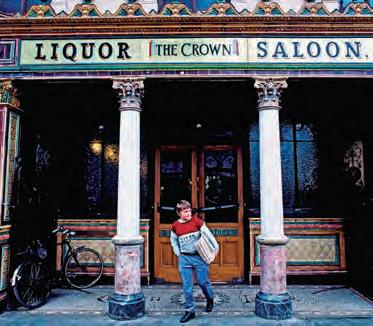
Crown Bar Liquor Saloon, Belfast
John Betjeman campaigned to save this gem in the 1970s, and it’s now owned by the National Trust. It also survived the Troubles—even though it’s opposite the Europa, once known as the most bombed hotel in Europe.
Built by moonlighting Italian craftsmen brought to Belfast to work on the church construction boom, The Crown is a slab of Victoriana like no other (and the Victorians knew how to do pubs), with every surface ornately decorated. The bar is of moulded ceramic tiles topped with red onyx. Look out, too, for the mosaic crown at the entrance and the ten snugs: private drinking rooms, designated A to J, with bells and corresponding lights above the bar. The lights still work (as does the gas lighting), but sta can’t guarantee they’ll answer on a Friday night when the pub is packed.
OK, so the Crown does get full of tourists—and who can blame them? —but that doesn’t detract. Watch a pint of Guinness settle on the bar and enjoy a real cathedral to drinking. 46 Great Victoria Street (crownbar.com)
The Crown Inn, Herefordshire
It’s all about the cider here at this CAMRAaward-winning pub. Right in the middle of apple country, The Crown has the best cider and perry list you could find according to Susanna Forbes of Drink Britain—and, frankly, she should know. You can choose from around 20 varieties and it even mills (the cider equivalent of “brews”) its own brand, Tamwood Boy. “Local” in this case means just that—nothing comes from further than 16 miles away and that includes beers and food. Owners Matt and Annalisa Slocombe love to make suggestions. “Very few people realise ciders can be paired with food,” says Matt, pointing out that it doesn’t make sense to eat all local food, and then choose a wine from New Zealand.
Woolhope (crowninnwoolhope.co.uk)


The Old Forge, Knoydart
If you really want to get away from it all, there’s always The Old Forge. The Knoydart peninsula has a population of around 100 adults, no connection to the UK road system and no mobile phone signal. But it does have this excellent pub—named by Guinness World Records as the most remote in mainland Britain.
Visitors are assured of a warm welcome and plenty of music should they get the urge: instruments are hanging on the wall and traditional Gaelic folk sessions take place regularly. Arrive by boat (your own, if you have one; if not, they’re for hire) or by a 16-mile walk through open country, though this is not an easy option. Seafood is big on the menu here—none ►

fresher, as you can imagine—and, because there are no taxis, you might want to reserve one of their eco-friendly lodges to flop into. Such is their popularity, mind you, that you may have to book a year in advance. And did we mention the scenery’s not bad either?
Inverie, Knoydart, Mallaig, Inverness-shire (theoldforge.co.uk)
The George Inn, London Fancy a dollop of history with your pint? Londoners have been clinking glasses here for centuries. A local for Pepys and Dickens, mentioned in Little Dorrit, and next to where the Tabard stood (the
starting point for the Canterbury Tales), The George has more recently given bar room to Princess Margaret and Winston Churchill. There’s an entire book on its history—Shakespeare’s Local by Pete Brown—because, yes, the Bard is alleged to have popped in too. London’s only surviving galleried inn, it’s set back from G.

the high street, just by Borough market, and you don’t need a fertile imagination to picture the coaches and horses that once rattled though its courtyard gates. These days, as Pete Brown says, you get “stunning beer in an atmospheric building”. Borough High Street, Southwark (nationaltrust.org.uk/george-inn)


The Fat Cat Pub, Norwich
A legendary pub, with a huge variety of drinks and a warmly welcoming sta . Twenty-two years ago, Colin and Marjory Keatley took over what was, in Colin’s words, “the roughest pub in Norwich”. Now it’s “a time warp, but in a good way”—a solidly traditional boozer.
According to the Keatleys, The Fat Cat “probably” o ers the biggest range of beers in one pub. That means around 30 traditional ales, bottled beers from around the world and their own ales too. Dogs are welcome, but the surprise is that, although he chose the name, Colin doesn’t like cats. It was borrowed from The Fat Cat in She eld, owned by Kelham Island Brewery, in return for stocking their ales. Norwich is a magnet for beer lovers thanks to its brewing history—and the Norwich City Of Ale celebrations in May and June are the perfect time to drop in. West End Street (fatcatpub.co.uk)


Exactly what you might picture if you imagine a country pub, says beer expert Jane Peyton—stone slabs on the floor, high-backed settles, characterful locals, great beer, good food and a divine view. Perfect in the winter when the log fires crackle merrily away. Appletreewick, near Skipton, North Yorkshire (craven-cruckbarn.co.uk)

As they say at the pub, the South Downs, rolling away outside, are the star here. A proper country inn with lots of little nooks and crannies and, adds Jane Peyton, the best Sunday roast she’s ever had in a pub. Firle, Lewes (raminn.co.uk)

“Just what a Victorian pub should be,” says Peyton. “Wonderful mirrors, wooden carvings, atmosphere.” The Victoria also has a gorgeous dining room, excellent beer, and friendly sta . 10A Strathearn Place, Paddington (victoriapaddington. co.uk)
Blue Anchor, Helston, Cornwall
Once a rest house for monks, this became a local tavern after Henry VIII’s dissolution of the monasteries. A cosy, charmingly wonky building of local granite with a thatched roof, the Blue Anchor brews its own Spingo ales, including the most popular, Middle, made for returning First World War soldiers. It also serves excellent Cornish pasties.
Helston is best known for the annual Flora Day (when the “The Floral Dance” takes place), and the pub brews its own Flora Daze in honour. Just don’t mention Terry Wogan’s version of the song... 50 Coinagehill Street (springoales.com)



With thanks to: Pete Brown, beer writer and author of Shakespeare’s Local and Man Walks Into A Pub: a Sociable History of Beer; Susanna Forbes, editor and publisher (@DrinkBritain; DrinkBritain.com); Jane Peyton, beer sommelier, events producer and writer (school-of-booze. com); CAMRA (Campaign for Real Ale); and Lisa Harlow from the charity

Grand gin palace with fittings by craftsmen who also worked on the great liners. (Women can visit the spectacular men’s toilets as part of a tour.)
Asked about the downsides of fame, John Lennon allegedly replied, “Not being able to have a drink at the Phil.”
36 Hope Street (nicholsonspubs.co.uk/the philharmonicdiningrooms liverpool) ■

Pub is the Hub (pubisthehub. org.uk).
If you know of a better pub than the ones we’ve mentioned here, why not let us know? Send us an email—with a picture if possible —to theeditor@ readersdigest.co.uk.
Evidence is growing that it’s not just humans who mourn. So how can we help a pet get over the loss of a loved one?
A vet investigates...

MUDGE THE COCKER SPANIEL WAS devastated when her companion, a King Charles spaniel called Charlie, died suddenly from a viral infection last August. The little dog’s head hung low and her droopy ears flopped on either side of her sorrowful eyes. “It seemed obvious to me that she was grieving,” says her owner Margaret Keane, a 51-year-old telecoms manager from Ashford, Kent.
But until recently, the idea that a dog would be devastated by the loss of a “loved one” would have been regarded as,
►

at best, sentimental and, at worst, deluded. Experts agreed that it was unscientific to suggest animals experienced the same sort of complex emotions as humans. They had only basic or primal feelings, such as fear or anger.
Now, though, with increasingly sophisticated scans showing that humans form emotions in the parts of the brain we share with all mammals —and use the same neurotransmitter chemicals—vets and other experts are arguing that animal emotions must be similar to our own. Meanwhile, more and more behavioural studies seem to be backing them up.
Neuroscientist Dr Jaak Panksepp of Washington State University, for instance, has observed that rats seem to experience joy while playing.
So do pets like Smudge really feel human-like sorrow at the death of a friend? Marian Dawkins, professor of animal behaviour at the University of Oxford, is cautious. “It’s quite obvious that animals undergo physiological and behavioural changes after losing a social companion, offspring or parent,
but are these accompanied by conscious experiences of suffering?” she asks. “In humans, there is conscious worry about the future, how someone is going to cope, whether they will be socially ostracised and other issues.”
a Pennsylvania animal behaviourist and editor-in-chief of the Journal of Veterinary Behavior, seems more sure. She believes that while the depth and exact nature of animal grief may as yet be poorly defined, there are “so many daily examples” of pets appearing deeply affected by the death of a companion that it’s very difficult to claim they don’t have the capacity to feel loss as keenly as we do.
Marc Bekoff, professor emeritus of ecology and evolutionary biology at the University of Colorado, has witnessed several examples of what he is certain was animal grief, including sea-lion mothers wailing pitifully as
“Animal grief can be especially profound after the death of an owner”
they watch their babies being eaten by killer whales, and Kenyan elephants that “seemed lost”, wandering around with their tails and trunks hanging limp, after the matriarch of the herd had died. He has also seen a female red fox bury her mate after it had been killed by a cougar. She carefully covered his body with pine needles and dirt and then stood silently over his grave, before moving on.
In fact, many experts now believe that not only should you take animal grief seriously, but you should also help your pet get over its loss, just as you would a family member or friend.
Sometimes the solution may be simple. “You might just need to get a dog to take up new hobbies,” suggests Dr Overall. “It could enjoy taking walks in fresh locations or meeting new companions.”
—a farmer from Rostrevor, Northern Ireland—sitting with him in his tractor. When Jake died of a heart attack in October 2011, Spot spent the first week looking all over the farm for him. The collie was even seen standing at the farm gate, looking up and down the road, as if searching.

“After a week of watching Smudge mope around, I took in a pup called Milly from a local animal rescue centre,” says Margaret Keane. “Smudge was hesitant at first, but after a few days she began to engage. Her sad expression lifted, her ears pricked up, and she began to play again.”
profound after the death of an owner with whom the pet has enjoyed a close relationship. Spot the collie went everywhere with Jake Anderson*
“Six months later,” says Jake’s son Mike*, “I drove my dad’s tractor home from the mechanic, where it had been for some time. When I opened the tractor door, Spot was right beside the step looking up yearning, seemingly hoping that my father was the driver.”
But here, too, new companionship can eventually bring consolation. Mike—who has three children under 12—has consistently encouraged Spot to carry on a normal life with his family. More than a year later, Spot still seems lost occasionally. But he has clearly found contentment with his new best friends.
Sometimes, though, an animal’s
* Names changed to protect privacy. ►
grief can cause just the sort of physical decline you see in humans. “For instance, when one cat in a household dies, the remaining cat can start to show problem behaviour,” says Sarah Heath of the Behaviour Referrals veterinary practice in Chester. “They may stop eating and grooming, or start seeking out their owner all the time.”
One way for owners to help here is to try to keep a pet’s home routine as consistent as possible. “Distraction with new, interesting toys can be useful, too, but grief is a complex process and there are no simple trick solutions. Cats have a very different social system from dogs, so getting another cat isn’t recommended.”
Heath says that pheromone diffusers can bring comfort to cats and dogs. “They’re odourless artificial versions of soothing chemicals produced by the animals themselves and can be placed beside a pet’s bed. You can also get a collar impregnated with pheromones that are slowly released over a month.”
Dr Overall adds that grief can sometimes be “unremitting”—and if
symptoms such as social withdrawal, loss of appetite or energy, or decrease in activity last more than a few weeks, then owners might like to consider asking a vet for animal antidepressants.
UT EVEN IF YOUR PET seems upset for a long time, there may be no need to worry. “Grief is a process that animals —like humans—often need to go through,” says Heath.
Gail Parker’s cat Rocky was very close to her Irish setter, Renny. A day or so after Renny died of cancer in June 2000, Gail put his collar around a life-sized model of an Irish setter.
“Rocky walked over to the statue, gently reached his paw up and patted the collar twice,” says the 67-year-old from Philadelphia, Pennsylvania. “He then turned and walked slowly away with his head down.”
Rocky also used to sit on a table near a photo of Renny, reaching over with his paw to adjust it, so that it was facing him. “Even now, nearly 13 years later, I find Rocky sitting in the dining
“When one cat in a household dies, the remaining cat can start to show problem behaviour”
room, looking at the wooden cabinet where I keep Renny’s ashes, as if he’s meditating.”
But Rocky has never shown any other ill effects of his bereavement, and Gail sees his grief as normal. “He didn’t need treatment,” she says. “Just space and time to grieve for his friend.”
The most common experience of death for pets is euthanasia. There’s a strict rule that animals should never witness the slaughter of another in an abattoir, but what about when death is peaceful and bloodless, by injection? Many owners now feel that allowing a pet to witness a companion being put to sleep, or even just to view the body afterwards, may help with acceptance of the death, preventing the remaining animal pining because it doesn’t know why a housemate has disappeared.

OF COURSE, PETS DON’T ALWAYS grieve when they lose a companion. Some behave as if nothing has happened or even become more animated—as if relieved. “Animals may just be more honest about expressing their emotions,” says Dr Overall. “Sometimes, for whatever reason, they may not feel sad and, unlike humans, they don’t fake grief.”
Vets witnessing the behaviour of pets around euthanasia are often bemused at what happens. “They don’t behave the way that humans would in similar circumstances,” says Heath. “They remain interested in their companion until the moment of death, but after that, they may appear unconcerned, acting as if the body is as inanimate as furniture. This lack of reaction can seem at odds with the idea of feeling grief, but perhaps it’s just a reflection of a different attitude to life and death.”
But it’s clear that, though dogs and cats can’t cry, they can show their emotions in other ways, and if you think your pet is grieving, your intuition is probably correct. Give them space and time and, like most humans, they’ll eventually recover. Life may not ever be quite the same again, but the new “normal” will still be a life worth living. n
Peter Wedderburn is a Dublin-based vet, broadcaster, author and blogger. For more, see petethevet.com.

…PLAYING ON THE BEACH AT WESTON-SUPER-MUD. I was born in the East End of London in 1940, but the German bombing during the Blitz was so bad that the whole family moved out to my mother’s parents’ house in Westonsuper-Mare. Living in a seaside town is perfect when you’re a kid, because every day is a holiday! Mind you, the other kids used to tease me at my boarding school… “Poor Je rey lives in Weston-super-Mud!” I had a tough time at school, but I was a fighter—not physically, but mentally. I could hold my own!
…MY FATHER DYING WHEN I WAS 15. Well, I don’t really remember much about it. At the time it happened, I was away at school. What’s clear in my mind is the sadness of my mother and how she suddenly became this extremely powerful figure in my world. Life had knocked her down, but she was determined to get back up—that’s probably where I get it from. My mother Lola was a formidable woman, way ahead of her time. She was a councillor, she wrote for the local paper and she’d written a novel. There have been three remarkable women in my life: my mother, my wife Mary and Margaret Thatcher.
Academically, I wasn’t the best kid in school. I was bright but lazy, and I messed about a bit too much. I was a dreamer. I was going to captain the England cricket team, I was going to win an Olympic gold medal [at 17, Archer ran for the England schools athletics team]. But, as a teenager—thanks to my English master Alan Quilter—I discovered Shakespeare and English literature. Those school books must have sowed the seeds for my one talent…telling a story. Obviously, I didn’t realise how important it was going to be at the time, but God knows what I would have done without it.
I went to Oxford [Archer studied there for a diploma in education], politics began to dominate my life. All the friends I had seemed to be consumed by it, and I couldn’t help but be swept up by this wave of enthusiasm. Full of youthful arrogance, I started telling people that, one day, I was going to run the country!
I got on to the Greater London Council at 26 and became an MP at 29, but when I walked into the House of Commons, I
“I was going to run the country!”: Je rey looks serious beyond his years in the early Forties; (inset) running at Oxford in 1966
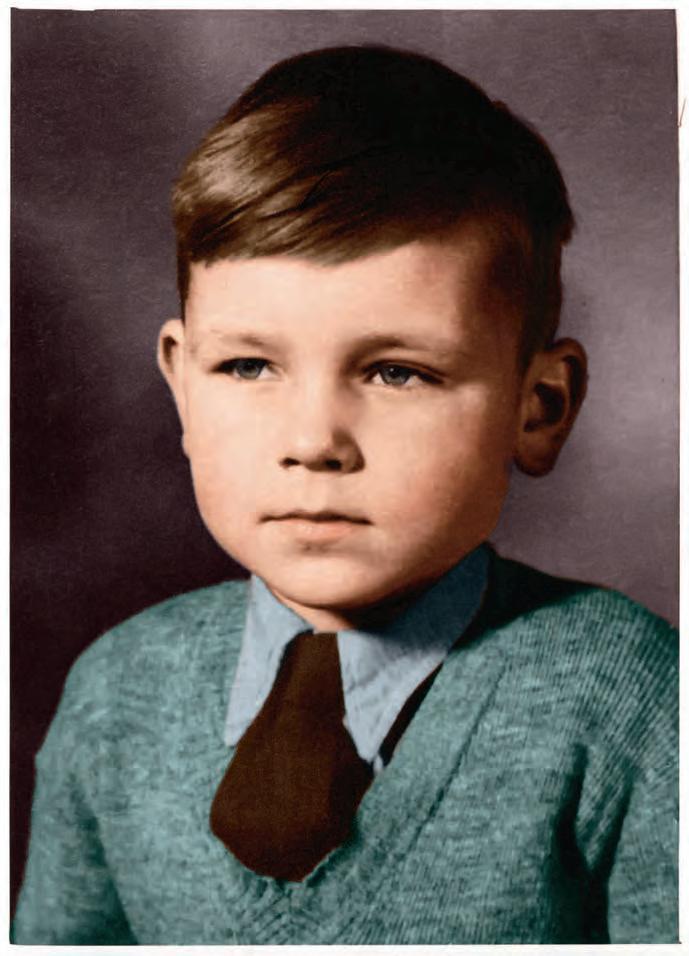





◄
just felt…totally inadequate. Most of these guys had fought in the war—they were heroes!
I’d always been frightened by clever people and there were a lot of seriously clever people in Westminster back then, people like [prominent former Labour MP] Anthony Crosland. I was too young to be an MP; just a kid. Nobody should be an MP before they’re 40—you need a bit of real life behind you.
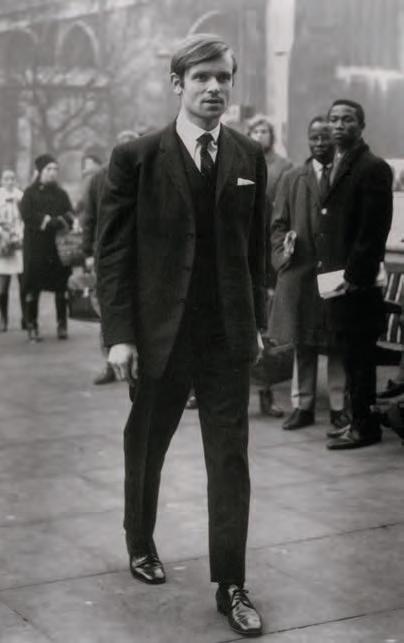
…FALLING IN LOVE. I met the missus at Oxford and, wow…Mary was staggeringly beautiful—still is! Straight away, I knew she was the one. I don’t think she realised it, but I was head over heels in love.
As people will know, our marriage has had its di culties. What marriage doesn’t? I suspect I’m not always the easiest man to live with, but Mary seems to cope with everything in that same calm and dignified way. When she said, “For better or for worse; for richer, for poorer,” she meant every word.
I know there are a lot of people who were sure our marriage was going to fall apart when I got sent to prison. I bet there were journalists who’d already written the story, ready to laugh in my face. They don’t know Mary! Is there a secret to getting over those di cult bits? We just enjoy each other’s company. If I ever bored Mary, I’d totally understand if she divorced me!
In 1963, I somehow managed to persuade the biggest band in Britain to get involved in an Oxfam fundraiser. Their involvement generated [hundreds of thousands] extra! Paul was super-bright—he could have

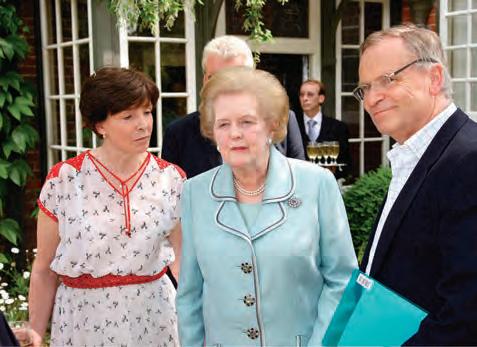
been at Oxford. John was the same…a very sharp mind. George was just a lovely bloke and Ringo was the quiet one. There was a real air of self-confidence about them, not arrogance. They knew they were good; they knew they’d made it.
A FATHER. Looking back, I don’t think I was a particularly good at being a dad in the early years. William is now 39 and James is 37. That period between nought and three needs a lot of hands-on parent stu and I wasn’t cut out for it. But all that changed as soon as they could kick a ball. Suddenly, I was in my element.
Because Mary had a full-time job, I was the one who went to sports days and rugby matches. There were usually 30 mothers and me screaming from the touchline. I was tough on them. They knew all about hard work because they saw Mary and me working hard.
…BEING TOLD I WAS HUNDREDS OF THOUSANDS IN DEBT. AND THEN PICKING UP MY PEN! Investments don’t always go your way and, in 1974,
“Mary and I were among Margaret’s best friends. Now she doesn’t know who I am”
I was in the hole for £436,000. I resigned as an MP; my life collapsed. The money scared me, but I always had this feeling that I’d find my way back. I started looking for a job…nothing. We were living o Mary’s teaching job at Cambridge.
Then, for some reason, I started writing. I just needed something to occupy my mind and stop me going bonkers. I had this story in my head called Not A Penny More, Not a Penny Less, and it did OK—well enough to write a second and a third one, Kane and Abel. People say it was Penny that changed my life. No…it was Kane. Overnight, I became a millionaire.
IN 1969. As an MP, I obviously knew Margaret before she became prime minister. What drew me to her was conviction. If she believed something, she fought for it and followed it through. These days—the Tony Blairs and the David Camerons—it’s all about focus groups. The focus groups say the mansion tax is a good thing. Then they’ll say, “No, it’s a bad thing.” Margaret Thatcher ►
“I have a lot to regret. But why sit and cry?”

didn’t give a damn about focus groups! When Margaret had an idea, she called me into her o ce and said, “Je rey, this is how it’s going to be. Now, get out of my o ce and sell it to the country!” Yes, prime minister; sorry for speaking, prime minister. I still see her and get weekly updates— she’s not well. Mary and I were among her closest friends; Margaret adored Mary. Now she doesn’t even know who I am. So terribly sad.
…THE COURT CASE. THE HEADLINES. How can I forget? It’s 12 years ago now, but you blasted journalists won’t let me! [In 2001, Archer was convicted of perjury and perverting the course of justice.] But people have moved on... the world doesn’t hate me. All I’ve experienced over the last ten years has been generosity and goodwill, but the press won’t let it go.
Do I have regrets? There’s a lot to regret. But do you sit down, cry and say,
“Oh, I’ve made a bloody fool of myself.” There’s no point in regret. We get a certain amount of time on this earth; what’s the point in wasting it feeling sorry for yourself?
…MY FIRST NIGHT IN PRISON.
People always say, “Did prison change you?” Yes, it did. I think I became more sympathetic to people who don’t get a decent start in life. I met a man who killed the bloke who raped him as a child. He got 17 years and died in prison. Is that right? Is it right that inmates are given prizes for cleaning lavatories? Give them rewards for getting a GCSE or a degree; give them an education. Give them a chance to aim for something other than burglary.
If you were to ask me if I should have been in prison…that’s an impossible question to answer. But I do think it would have been better to have dedicated those two years to raising money for charity. [Je rey has raised millions of pounds for
charity since he completed his sentence.] I was asked to help Mencap while I was in prison and the authorities wouldn’t let me!
…MARY’S ILLNESS. Mary went to see the doctor in 2010 and she was told she had bladder cancer. But the doctor—a wonderful man—said, “Don’t worry, it’s early. We’re going to be all over this in three weeks.” Then, three weeks later, she was told things weren’t looking so good and she needed a major operation. Of course, I assumed she was going to die. Thank God the operation was a success. I said to her, “You’re not allowed to die before me. It’s not in the script!” We had a giggle about it recently when she was sorting out the plumbing at our house in Majorca. Without Mary, I’m useless, I’m pathetic.
DOESN’T MATTER. I’ve been very rich and I’ve been very poor, and—as Mary once said in an interview—on balance, I prefer being rich. But I can honestly say that nothing I’ve done in my life has been just about the money. All I’ve ever wanted to be is the best at what I do. A couple of years ago, I was o ered £6m just to put my name on the front of six books. I didn’t even have to write them. I turned it down. How much am I worth? I don’t know. And, more importantly, it doesn’t bloody matter! I’m alive, I’m happy, I’m having lunch with Mary; life is wonderful. I’m a very lucky man. ■ As told to Danny Scott
Je rey Archer’s new novel Best Kept Secret is out now.

Let battle commence: Milly and (bottom) Thumbelina
The news that a pint-sized chihuahua called Milly has qualified as the world’s smallest dog makes you marvel at the diverse sizes and proportions in the animal kingdom. For instance, Milly—just 3ins tall and
no heavier than a mobile phone— is dwarfed by the atlas moth, which has a wingspan of 10ins. Just pray you don’t encounter one when you switch on your bedside light.
The atlas moth, in turn, is roughly comparable to the truly terrifying Goliath bird-eating spider (which we’re not picturing out of respect to
any arachnopobes out there). It’s the largest spider in the world in terms of mass, and its width (12ins) is only 5ins less than the height of Thumbelina—the world’s smallest horse.

 The Sing for Joy choir, with Sarah Benton (front centre) and founder Carol Grimes (brown hat)
The Sing for Joy choir, with Sarah Benton (front centre) and founder Carol Grimes (brown hat)
We all know that belting out a song can make us feel happy.
But it can also prevent asthma attacks, help after a stroke —and even make childbirth pleasurable
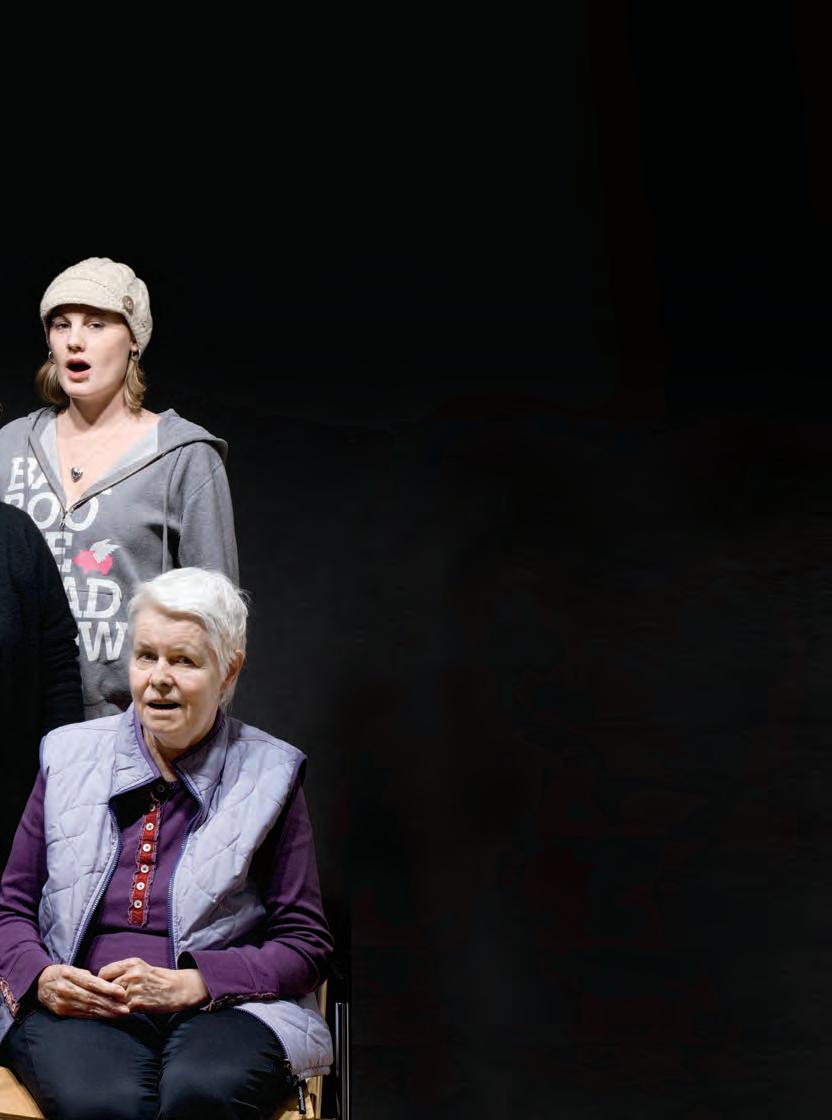
In 2005, when multiple sclerosis sufferer Sarah Benton joined London’s Sing for Joy community choir, her voice was very shaky and it often cracked. MS attacks the protective coating on nerve fibres, in many cases causing speech problems.
“Losing your voice is very frightening and isolating, especially for a chatterbox like me,” explains former journalist Sarah, 63. But after eight
BY AMANDA RILEY-JONES PHOTOGRAPHED BY PAL HANSEN►
years with the choir—started by the renowned jazz singer Carol Grimes to help people with neurological conditions—her voice is now much more resonant, thanks to weekly rehearsals and being taught to breathe correctly.
“I often see people with MS and other neurological conditions whose vocal cords no longer close completely,” says Mr John Rubin, consultant ear, nose and throat surgeon at University College London Hospital, where he also runs a voice clinic. “This can result in their speech becoming very soft and difficult to hear, or monotonous when they no longer use their full range.
“Singing is an extremely physical activity that uses a whole series of muscles, including those in the chest walls. It’s a really helpful method for getting patients to increase their vocal volume and range.”
Meanwhile in the US, at Harvard Beth Israel Deaconess Medical Centre, a groundbreaking clinical trial is helping stroke victims to speak again by getting them to combine rhythmic tapping with putting their speech to simple melodies. The theory is that speech centres in the right side of the brain are particularly engaged by the melodic contour of words, while the tapping stimulates its auditorymotor responses.
Trial leader Professor Gottfried Schlaug says that stroke patients who couldn’t form intelligible words, learn to say phrases such as “I am thirsty” after a single session using the technique. And scans show that an intense course actually stimulates the brain to rewire, finding new neural pathways to replace the damaged ones between its hearing and articulation centres.
Extraordinarily, some sufferers from Tourette’s syndrome—the neurological disorder characterised by tics and blurting out inappropriate words—have found that their involuntary movements subside or even disappear when they sing or play music.
“It’s almost like therapy,” says Ruth Ojadi, 26, from London, a group officer and local organiser for Tourettes Action, who also suffers from the condition. “It’s the only respite I get, and I’m truly grateful for that.”
Dr Jeremy Stern, consultant neurologist at St George’s Hospital in south


London, explains, “Performing music uses parts of the brain also associated with tics, keeping it too busy to do both.”
Jane Petto, 59, has loved singing all her life, yet her hobby took on a special significance in 2000 when she was told she had cancer and would have to have her right lung removed.
The former fire-brigade control officer
already had emphysema and, although she still sang in a choir in her hometown of Tunbridge Wells, her lung capacity would now be reduced to an estimated 40 per cent of what it was.
“The doctors didn’t answer when I asked if I’d ever sing again,” she recalls.
In the weeks after her lung was removed, Jane spent every day very out of breath and tired. “I was too scared to be left alone and didn’t even like my husband leaving the house.”
Two months later, she plucked up the courage in the car to see if she could still sing a few notes—and was thrilled to find that she could. (“I went straight back to the choir!”) Years of singing,
“Singing has helped me make the most of what I have”Jane Petto (centre)

meant that her diaphragm and thoracic muscles remained strong, giving her a much better lung capacity than other people in her position.
“With all the muscles in the body, training leads to improved performance,” says Dr John Hughes, a consultant in respiratory medicine at Spire Tunbridge Wells Hospital. “And it’s the same with the lungs.”
music has also helped her regain her confidence—she currently runs no fewer than three choirs in Thanet, Kent. “Singing has helped me make the most of what I have,” she says.
Tony Brindle-Wills, a 41-year-old musician from Poulton in Lancashire, had a heart attack out of the blue in 2011. Later that year, he set up a choir, primarily to give local people something to do—though with the unexpected bonus of appearing to boost his health too.
After taking things easy for several months following his attack, Tony now feels able to take regular exercise.
“I think conducting and performing in the choir is a big factor in that,” he says.
“Singing can contribute to a patient’s recovery because it’s controlled exercise and relaxation, which lowers stress levels and blood pressure, putting less strain on the heart,” explains Dr Chris Pepper, consultant cardiologist at the Yorkshire Heart Centre in Leeds, and spokesman for Heart Research UK.
In March 2011, singing’s effect on worryingly high blood pressure was also reported by doctors in the Dominican Republic: by singing religious songs for several hours, a 76-year-old woman reduced her blood pressure enough to undergo knee surgery.
London’s Chelsea and Westminster Hospital is running innovative “Womb Song” workshops where, as well as posture and breathing exercises, staff are
Jane now has an impressive 63 per cent of lung function, and returning to ►
teaching expectant mums simple songs such as “Swing Low, Sweet Chariot” and “Hush, Little Baby”. The original aim was to help women relax and bond with their unborn babies. But the hospital reports that singing helps women give birth too.
“Singing provides natural pain relief by releasing endorphins, reducing the amount of anaesthetic needed, and lowers levels of the stress hormone cortisol,” confirms the hospital’s active birth
In August 2010, Peter Naylor, 48, from Shoreham-by-Sea, West Sussex, had a terrifying asthma attack. “I couldn’t catch my breath, felt like I was drowning and had to be resuscitated in hospital,” says the customer services adviser, who has been severely asthmatic since the age of three.
“But the incident left me determined to improve my health. At that stage, I was already boxing, but my GP said that taking up singing might help regulate my breathing.”
Singing helps women give birth too


teacher Marjaana Vanska. For reasons that aren’t entirely clear, moving the jaw also relaxes the cervix.
First-time mother Patrizia Pirinoli attended the workshop and “sang all the way through” her labour. “The sounds, the words and the rhythm all helped me focus and do my breathing exercises,” says the 41-year-old chartered surveyor. “I didn’t need drugs, and had an easy dilation and a short labour. Then as soon as my daughter Maia was born, the first thing I did to bond with her was sing ‘Oko-le-o-ko’, my favourite folk song from Cape Verde. I was actually able to enjoy the whole giving-birth experience.”
Peter joined the Spring into Soul choir in Worthing. “Normally, you don’t think about breathing. But our musical director got us to breathe deeply from the diaphragm, through the nose and out through the mouth. In a choir, timing is critical and you have to take sharp, deep intakes of breath, ready for the next time you need to sing.”
Peter practised breathing exercises every night and reports, “I was breathing more clearly and expanding my lungs more fully within a month. Without a shadow of a doubt, singing has helped get my asthma under control.”
Not only that, but singing may also aid asthmatics by reducing the anxiety that can trigger an attack, adds Malayka Rahman, communications officer at Asthma UK.
Just over a year ago, a course of chemotherapy for breast cancer left Tammy Murray utterly exhausted. “I’d already had chronic fatigue for six years, so the treatment meant I couldn’t even make myself a drink, and going upstairs was like climbing Everest,” she says. “My mum, boyfriend and best friend had to look after me.”
Then Tammy was inspired by ITV documentary The Choir That Rocks. The programme featured Rock Choir, which has some 200 branches across Britain, singing pop rather than classical. “I forced myself to get dressed and my friend took me to a taster session in Harrogate. By the end, I had so much more adrenalin, I was standing and laughing!” she says.
Tammy, 35, has continued singing throughout radiotherapy and reconstructive surgery, and is now working as an office manager. “When I start performing, I feel like I’ve been zapped with energy!”
Soon after retiring as assistant principal at Canterbury Christ Church University, Roger Clayton was diagnosed with Parkinson’s disease. Then, in February 2010, he and Professor Grenville Hancox,
the artistic director of the local Cantata music trust, set up a singing group for people with the condition.
“Many of us find it hard to do two things at once, but Grenville stretches us by getting us to clap or strike chimes while we sing. It requires a great deal of concentration,” says Roger, 67.
“Research suggests that if people with Parkinson’s exercise their brains as much as possible, it may counter some of the physical issues that result from the disorder,” notes Professor Hancox, a former head of Canterbury’s Sidney De Haan Research Centre for Arts and Health. Singing also loosens patients’ face muscles, which can become rigid and start to deteriorate.
Professor Hancox laments the diminishing role of song in our lives. “We used to sing in school, around a piano in the pub and in church. It’s ritualistic and everyday, sacred and spontaneous—and can make an extraordinary difference to our well-being.”
He hopes that one day, GPs will prescribe it for a range of conditions: “If more people sang, I’m sure we’d have a healthier nation.” n
For more on the Sing for Joy community choir, go to carolgrimes.com/singforjoy. For Rock Choir, see rockchoir.com.
“The ‘clunk’ of the guillotine blade’s release reminded Marie Antoinette, quite briefly, of the sound of the wooden leg of her favourite manservant as he not-quite-silently crossed the polished floors of Versailles to bring her another tray of petits fours.” Winning entry for the The Bulwer-Lytton Fiction Contest, which invites writers “to compose the opening sentence to the worst of all possible novels”.
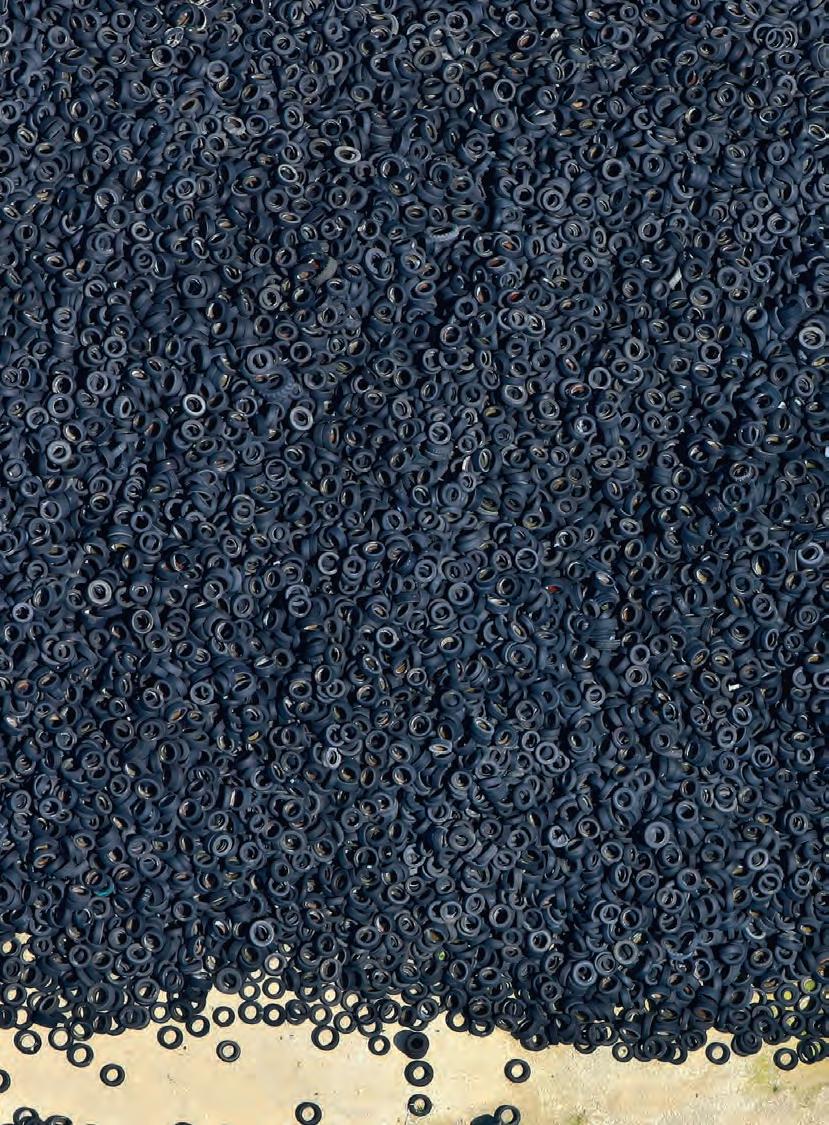
What wonders can be seen when photographers take to the skies and look down on creation?
By Ellie Rose
How many clapped-out cars does this millionshigh pile of old tyres represent? Fortunately, the rubbery remains aren’t going to waste. Tyres can be used as an alternative fuel in kilns, which is why they’ve been stockpiled at the Märker cement works in Bavaria. ►

Cascading a vertiginous 3212 feet from the edge of Mount Auyantepui, this is the world’s tallest uninterrupted waterfall. The rather conspicuous natural wonder was, incredibly, unknown to the outside world until 1933, when US aviator Jimmie Angel flew over the site. He landed on top of the mountain but his plane got stuck, so he and his companions were forced to make the 11-day descent by foot.



The hypnotic swirls in this photograph are, in fact, e uent, whipped into froth as it undergoes aeration in a huge industrial plant.
►

NATIONAL GEOGRAPHIC/ GETTY IMAGES


It may look like a water-skimming bug, but this is one of 1,192 islands that make up the Maldives—the world’s lowest country, with an average height of just five feet above sea level. Many of the islands have a protective fringe of coral reef, keeping them safe from the storms and high waves of the Indian Ocean. ►
NIKO GUIDO/E+/GETTY IMAGES


It looks like a Jackson Pollock painting, but this vibrant photo was taken after the deadly Black Saturday bush fires in Victoria in February 2009.
“The coloured patterns are the remains of trunks from a type of pine whose ash is orange,” says photographer John Gollings. ■
JOHN GOLLINGS


How Todd Stevens went from East End tearaway to Britain’s most unlikely wreck hunter

Pulling on his diving drysuit and heaving an air cylinder onto his back, Todd Stevens walked into the shallow, fast-moving waters of Pendrethen Bay. The 41-year-old was on a treasure hunt. A 17th-century gold coin had recently been found on a nearby beach on this remote northern tip of St Mary’s in the Isles of Scilly. And with the piece of shoreline going by the mysterious old name of Cock Frigate, Todd wondered if an ancient shipwreck was somewhere under the waves.
“It was bright and cold,” says Todd, recalling the February day in 2004. “Using the sun as a guide, I swam through the green-and-red seaweed, scanning the seabed for anything man-made.”
►

 BY AMANDA RILEY-JONES
PHOTOGRAPHED BY SAM FROST
BY AMANDA RILEY-JONES
PHOTOGRAPHED BY SAM FROST



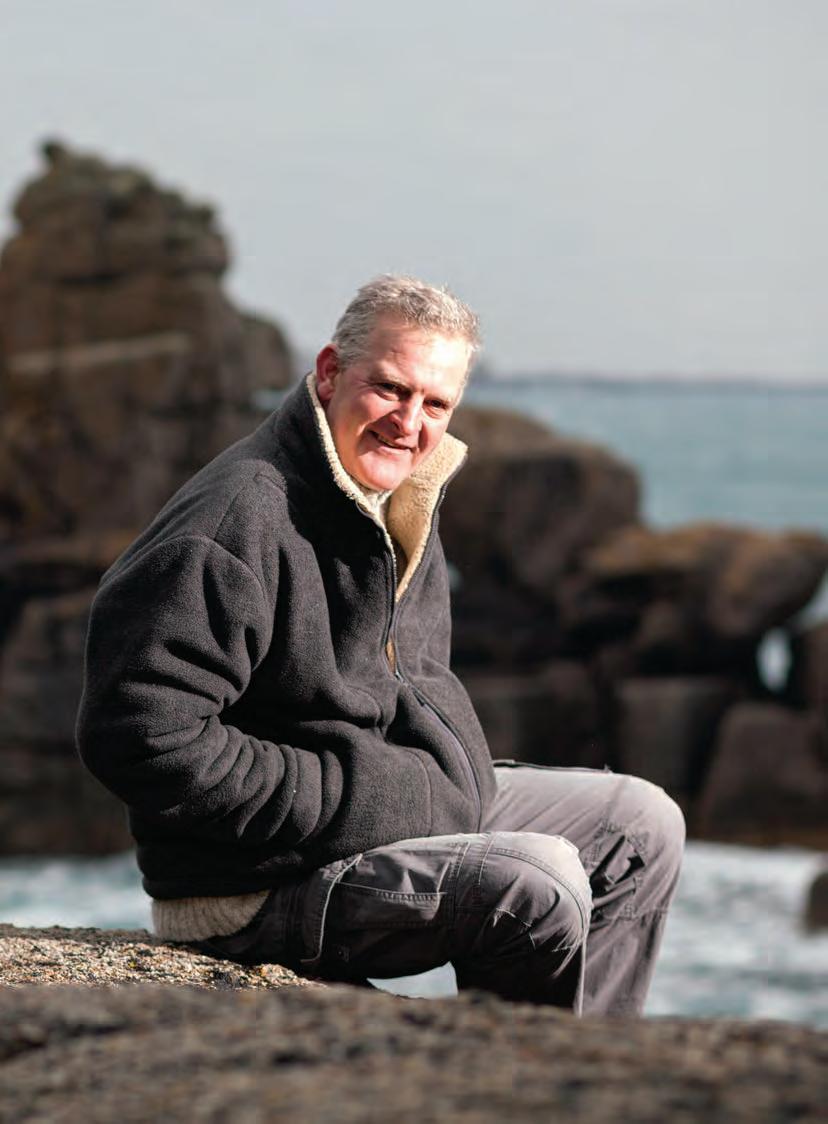
After 40 minutes, he spotted a threefoot-long lump under the sand. To the untrained eye, it would have looked unremarkable, but the experienced wreck hunter knew it was a build-up of rusted metal and sand, and a clue that there could be a wreck nearby. “Moving in closer, I spotted three or four straight lines in the sand, extending up to eight feet, before disappearing beneath the seabed. Timber planking!”
Todd started digging at the sand with his hands, grasping onto the seabed to stop the current washing him away. There was timber everywhere, and scraps of black cyanide cloth (once used to line hulls against the tropical Teredo worm) told him he was looking at a prestigious, noexpense-spared ship that predated 1750.
Britain’s leading—but more improbable— wreck hunters.
The 50-year-old was born in Leyton, east London, the son of a stuntman and bit-part actor, and one of four boys. Eight people shared their terraced house, including Todd’s grandparents. “Childhood was stressful,” he says. “It was extremely cramped at home and I hated school. I was constantly bunking off, and reports always had ‘likeable rogue’ or ‘if only Todd applied himself’ somewhere on the page. The first time I got nabbed by the police was when I was eight, for defacing something, I think…” A life of petty crime beckoned.
“The thrill of being the first to find a ship —that’s why I’m a wreck hunter”
“That’s why I’m a wreck hunter: the indescribable thrill of being the first person to find a ship that’s been lost for centuries,” he says.
Todd was at the start of a nine-year love affair with the wreck. After months of painstaking research, he knew that he’d found The John, an 80-foot pirate ship built in 1643, whose exact location had been baffling naval historians for years. He still dives down to the site, often making new discoveries. Just last spring, he found some silver-coin pendants that were worn by pirates to show allegiance to King Charles I during the English Civil War.
But the ship is just one of a series of discoveries that have made Todd one of
But happily, for six weeks every year, Todd escaped his normal life for family holidays in a static caravan on Mersea Island, off the Essex coast.
Todd’s ex-navy grandfather regaled him with tales of the wrecks around the island. When the tide was out, Todd searched for wood on the sandbanks. “The worm-eaten surfaces filled me with wonder, and I tried to imagine what kind of ship they’d come from,” he says. “My brothers and I had a small boat that we used to keep sinking, so we could dive around in the water and retrieve our ‘shipwreck’. It was heaven.”
But Todd’s summers by the sea came to an end when he was ten—his parents split up, and his mother Jannette took the four boys to live in Northampton. Unsurprisingly, Todd became a troubled teenager. “I was a skinhead and a West Ham football hooligan, and I got

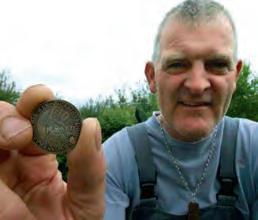
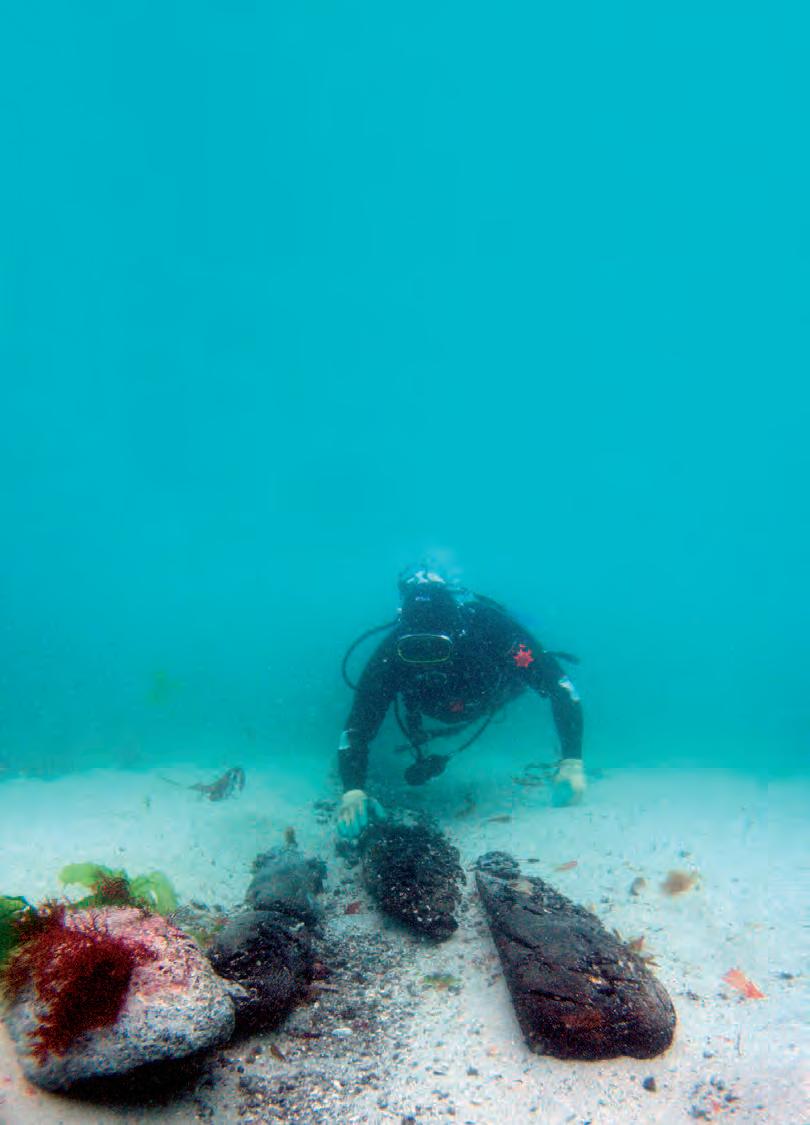
Todd explores the wreck of the pirate ship The John; (from top) Daisy the Jack Russell, Todd’s “second in command”; and one of the silvercoin pendants found at the site
◄ into joyriding. I spent lots of time in police stations and courts, though I was never prosecuted.”
Leaving school at 15, Todd drifted from one dead-end job to another. “I worked in the freezer at a meat-pie factory, and only lasted a day and three-quarters at a tannery!” he laughs. He was on a slippery slope that could have led to prison.
Then, one day, he and older brother Perry went to a Northampton county show and saw a display stand about scuba diving. “We’d thought it was only for rich people,” he says, but Dalgety Buswell Diving Club welcomed the two teenagers as new members, and the sport became Todd’s all-consuming passion.
“I found an overwhelming peacefulness in being weightless and enveloped in water,” he remembers. “Diving kept me on the straight and narrow because I had to learn a trade to finance it. I convinced the boss of a small joinery company to employ me, and carpentry has kept me going ever since.”
In 1990, Todd took his first diving trip to the Isles of Scilly, whose clear but treacherous waters, 28 miles off the Cornish coast, are littered with wrecks. “Back home, I dreamed of being able to down tools and go wreck hunting whenever I wanted.” So he saved hard and, in February 1999, moved there permanently.
Todd made his first big find within three months. “The bow of HMS Colossus, a ship from Admiral Nelson’s fleet that sank in 1798, had been found back in 1975, and countless artefacts had been raised. But I wondered if they’d missed anything. When St Mary’s assistant harbour master told me about a nearby reef called Admiralty Ledge that only shows on old maps, it seemed too much of a coincidence,” he explains.
Half a mile downstream from the wreck, Todd found lots of timber and copper nails. For a year, he followed a trail of pistols, muskets and shoes, until he found the missing back half of the Colossus—its name written on the side —still buried in the sand. It even had its

 Relics found by Todd from the HMS Colossus at Abbey Gardens, Isles of Scilly
Relics found by Todd from the HMS Colossus at Abbey Gardens, Isles of Scilly
Treasure hunters: with Carmen and Daisy—and a 16th-century jug Todd found last summer
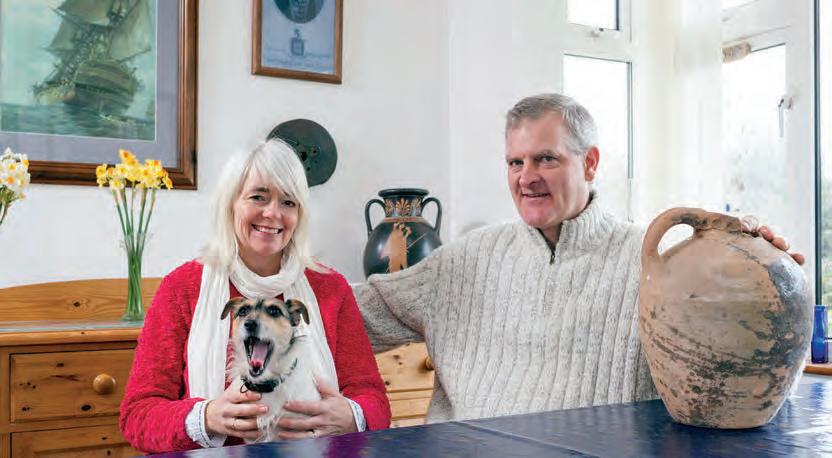
original guns poking through their wooden gun ports.
Then, in May 2001, Todd was diving the site with Carmen Davey, a local lady he’d met through mutual friends. “Carmen spotted a small piece of carved wood sticking out of the sea floor. We could make out a hand… a waistband on some armour …by the time we got to the face, I realised it was the find of a lifetime—the [11-foot] carved figurehead of the Colossus lying face up in the sand,” grins Todd.
“Now I’m hunting for wrecks all year. I couldn’t be happier”
After their amazing discovery, Todd and Carmen, then a council officer, grew closer. “We just seemed to fit,” he says. They married in April 2004.
With Carmen’s blessing, Todd is out in his boat as often as possible between March and October—with Daisy his Jack Russell as second in command. He shuns high-tech equipment for his underwater metal detector and magnetometer, which
beeps if it detects metal objects on the seabed. It identifies hundreds of anomalies and he has to dive down and check each one, so finding and searching new wrecks can take years.
But, over the last decade or so, Todd has discovered 15 wrecks around the Scillies. They include, in 2008, what he believes to be the wreck of the treasure-laden East India ship Nancy on its way from Bombay to London. And last summer, he took his brother Paul diving with him and they found the wreck of an extremely old, possibly Elizabethan ship, its guns sticking out of the water. “Paul will never forget that birthday treat!” says Todd.
During the winter, Todd concentrates on his carpentry and research into the possible names and history of his latest discoveries. Finding out the truth about The John took him as far as the British
Museum and the Maritime Museum in Greenwich, where he spent hours deciphering old documents.
“Identifying wrecks isn’t an exact science,” he explains. “I study their size, construction methods, materials, position, and it’s useful to get any artefacts dated by experts. But most are never posi tively identified. That’s why it was so satisfying to find that section of the Colossus.”

To his knowledge, Todd is the first person to uncover the full story of The John—and its pirate captain John Mucknell. “The history books only showed the date of the loss and the captain’s name. I became so fascinated by his story, I ended up writing a book, The Pirate John Mucknell. He captured the ship on her maiden voyage and threw the crew off on an island near Madagascar, then sailed the ship here where he led some ten ships patrolling and pillaging the seas. He became known as the Pirate King of Scilly. But in 1645, The John was badly damaged in a battle with three Parliamentarian warships, and Mucknell tried to run her aground to save her from sinking.”
Wrecks and their artefacts have to be declared to the Maritime and Coastguard Agency, which tries to trace a legitimate owner. If it can’t, the artefacts (though
not the wrecks), belong to the finder. But apart from the modest amount he makes writing (he’s self-published two other books about his finds), Todd doesn’t earn any money from his underwater archaeology. “That’s not why I do it. I do it because I love the hunt!”
The museum on St Mary’s is full of artefacts on loan from Todd. His discoveries range from a 16thcentury jug he found on last summer’s new wreck, to a gold thimble found 11 years ago on the remains of SS Schiller, a German liner that sank in 1875. “It bore the name Else, who I discovered from newspaper reports was just five when she died with her family.”
The Colossus figurehead—seen as one of Britain’s great maritime treasures— is on display in Abbey Gardens, Tresco.
English Heritage are considering making The John a protected site. Todd’s also started to write shipwreck-themed poetry. “I’m sure some of my colleagues in the building trade think I’m a big wuss. I used to be called Indiana Jones, but now it’s, ‘Here comes Shakespeare.’
“I don’t mind what people call me! I’ve found real contentment living here. As a teenager, I wasn’t a bad person but I could have ended up in a bad place. Now I’m surrounded by sea and hunting for wrecks all year. I couldn’t be happier.” n
Notice seen in the window of a local Chinese take-away that was undergoing renovations: “Closed: Sorry for any convenient cause”.
Submitted by Angela Newing, by email
This donkey spends her life carting tonnes of waste to rubbish dumps in war-torn Mali. She’s driven to exhaustion. But there’s no time to rest, nothing to drink and the only food she gets is rotting waste. It’s nothing short of a living hell.
This starving, beaten and exhausted donkey needs your help urgently.
Please donate £15 now
You can stop this suffering. Your gift can buy painkillers and vaccinations, and help SPANA improve conditions for the rubbish dump donkeys. ✁
Call 0300 033 4999
Donate at www.spana.org/mali

Cheques payable to SPANA: Freepost RSYJ-HGEK-RGBX, SPANA Dept P1303A/RD, Slough SL1 4PY
I enclose a donation of £:
Name: Mr/Mrs/Ms/Miss
Address: Postcode:
“FIRST-CLASS TRAVEL—WHO NEEDS IT?”

With commuters paying thousands to cram into standard carriages, these exclusive areas are a snobbish waste of space, argues transport writer and railway historian Christian Wolmar
WE’RE LIVING IN A NE W AGE OF THE TRAIN. PASSENGER numbers are at record levels, with more than 1.3 billion journeys made in the UK last year—a 50 per cent rise since 2005. As more people commute to crowded cities such as London, they have abandoned jammed roads for comfortable carriages that are often fitted with Wi-Fi, where they can hopefully relax and maybe even work. It’s a long way from the tobacco-filled compartments that were the norm the last time trains were so popular.
But the very success of the railways—along with high ticket costs—has helped create one of their most annoying problems: passengers crammed into an inadequate number of standard coaches while first class is largely empty. There’s little worse than, say, taking a Virgin train from London Euston to the North and walking past four underused premium carriages to reach five standard coaches overflowing with luggageladen, ill-tempered passengers.


So wouldn’t it be sensible to convert many premium carriages into standard class? For example, the Government is using future overcrowding on Virgin’s services as part of the justification for building the £33bn HS2 high-speed line from London to Birmingham. But there are 145 first-class seats on a typical Pendolino, enough room for 245 ordinary seats—extra capacity that would absorb the firm’s expected passengernumber growth for years to come.
Thankfully, many Virgin trains have now been fitted with an extra two standard coaches to slightly improve overcrowding. However, even at peak times, it’s still almost unheard of to see first class full. Although rail companies are secretive about exactly how much they make from premium tickets, it’s clear, anecdotally, that the market has collapsed.
acceptable. Even private firms’ directors are wary of raising shareholder anger over such snobbish, company-funded choices these days.
Not that premium class (which can cost three times as much as normal travel) is very exclusive any more, particularly on shorter journeys. On Southern’s trains, which run from London to the South Coast, first class is cut off from the rest of the carriage by a door, but the seating and tables are exactly the same.
Although rail companies are secretive about how much they make from premium tickets, it’s clear that the market has collapsed
With other firms, often the only difference between the classes seems to be the inscription on the antimacassar. Indeed, when FirstGroup printed “First” on all its antimacassars in 2002, terrified old ladies exhausted themselves dragging heavy bags through trains in search of the non-existent “Second”. After several complaints—and a few near heart attacks—the new labels were consigned to the bin.
THE ROT SET IN WITH THE MPS’ EXPENSES scandal. The parliamentary authorities decided that it was no longer OK for politicians to claim for first-class travel, so neither, by association, could civil servants. Our austere times have also made one of the main reasons for going premium class—which, let’s face it, is keeping away from the plebs—less
Sometimes, rail firms do use first class as a short-term way of easing overcrowding. According to Paul Scoins, a regular passenger on the Manchester to Bolton route, who tweeted me, trains on his line are often “declassified” when they get too full, so standard passengers can sit anywhere.
Similarly, on Saturdays, when drunken
football fans take over trains in other parts of the country, few guards are brave enough to start turfing them out of premium class, so they announce that the train has been declassified instead.
Is first class an outdated concept? Join the debate at facebook.com/ readersdigestuk or email readersletters@ readersdigest. co.uk
But, though such measures may be pragmatic, they’re a smack in the face for those who’ve forked out for first class. They can claim a refund, but that’s little consolation for people who expected a pleasurable commute yet regularly get something quite different.
So the number of people who are
happy to shell out for first class these days is minuscule (the biggest group of travellers is ex-British Rail managers who were given concessionary rates for life). But in one way or another we’re all still paying for it. We need to call time on first-class travel on trains. After all, we passengers should be equal. n
Christian Wolmar’s latest book is The Great Railway Revolution (£25), the story of American railways. See christianwolmar.co.uk.

The revelation that Alfred Hitchcock mistreated his leading lady Tippi Hedren will come as no surprise to film fans. The director/star relationship is often so fraught that it’s amazing movies get made at all. Director David Fincher drove Jake Gyllenhaal to distraction by insisting on mutiple takes while filming Zodiac, then often deleting the final ten (“a Pavlovian experiment in talent manipulation”, claimed
Fincher). You doubt Faye Dunaway would put up with that approach—when Roman Polanski insisted

that she finish a scene in Chinatown before going to the loo, she responded by urinating in a cup and flinging it in his face.
Other arguments are more public.
Megan Fox, star of Transformers 2, was conspicuously absent from the

third movie after she publicly compared director Michael Bay to Hitler (they’ve made up since), while director John Frankenheimer told one reporter, “There are two things I’ll never do in my life. I’ll never climb Mount Everest, and I’ll never work with Val Kilmer again,” after a brutal time making The Island of Dr Moreau. (After shooting Kilmer’s last scene, Frankenheimer allegedly shouted, “Cut! Now get that b*****d o my set!”)
Soaring house prices and an ongoing recession mean that 1.6 million British adults aged 20 to 40 now live at home with their parents. But, says Andy Hamilton , it can be a life-a rming experience— as these families show
Stephen Carter, a 24-year-old client-services manager, shares a house with his mum Christine, 55, dad Brian, 66, girlfriend Emma, 27, brother Philip, 30, and sister Sarah, 21. They live in Southfields, south-west London
STEPHEN: The reason I still live at home is partly down to love for my family—but I also refuse to rent and help someone else get rich while I end up with nothing. My brother and sister, an electrical engineer and health-club manager, are in similar situations. I know it isn’t going to improve as house prices are rising all the time in our area. But, though it could be upsetting, I’ve grown to enjoy what I have.
Tolerance is important when you have several adults living in one house. You have to respect people’s space and privacy. We used to have problems, but it’s helped that we’ve now got TVs in our bedrooms and have worked out exactly when we all use the bathroom. ►
“I think it would be boring in a single household. I love my family to bits”

A tight squeeze:
Stephen with (going up the stairs) mum
Christine, sister
Sarah, girlfriend
Emma, brother
Philip and dad Brian
◄ But our other child moved out when she was 18 and has seen many struggles— including trying to cope with a small child in a small flat. And though I wouldn’t say my relationship with her is any less intense than it is with the others, it’s…di erent.
There’s one important rule—we have a family meal on Sunday and everyone must attend. But everyone seems to love it when we’re all together. We always have a good laugh and I think that makes life easy. We used to have great fun winding each other up as kids and still do, but we’ve matured and become closer now. I always know what’s going on in my family’s lives—I never miss anything. The house can be pretty loud at times, but for me that’s good. It’s quiet when it needs to be—at night!
I’ve never known any di erent, but I think it would be boring in a single household. I love my family to bits, and wouldn’t swap them or this home for anything.
CHRISTINE: I feel very sad for my kids’ generation. Being on your own and learning to be truly independent is a very important part of life, and that hasn’t happened for three of my four children. They could be with us for many years. They may one day be able to a ord to rent a property, but they’ll never earn enough to buy—short of a miracle, of course.
Elizabeth Nichols, 28, is a pub manager on sick leave, living in Horsted Keynes, West Sussex, with her parents. Dad James is a 64-yearold retired teacher and mum Hilary, also 64, is a retired accountant
Patience is key to a harmonious household, and everyone needs somewhere that’s truly theirs. I always knock on my children’s doors and don’t go in to clean or get things unless I’ve asked first. When they were younger, it was always great fun being part of a big family, rarely having anything more serious than a broken friendship at school or a grazed knee to rock the boat. The problems are bigger now—Sarah is pregnant and needs council housing urgently or she’ll end up having to have her partner and child living here too. But we all just keep going and look out for each other just as we always have.
I love all my children, and my greatest hope is that one day they might be able to a ord a property and live happy family lives. But my husband and I will support them in any way we can—and if that means them living with us, then so be it.
ELIZABETH: I came back to live with my parents temporarily when I was diagnosed with ovarian cancer in November 2011. The treatment was very intense, and I needed to be looked after throughout. I tried to go back to living independently after I was given the all-clear, but it proved too much. So I decided to come back
here until my strength has fully returned.
There’s been a tremendous upside to moving back as, after everything that’s happened in the last year, it’s been important for me to be around people who really know me and understand how I might be feeling, physically and mentally. There’s a bit of stigma attached to going back ►

“I feel I know my mum and dad much better now, like really close friends”
to your parents, but I think it’s a very good opportunity to pause, take stock, and really think about which direction your life is going in. It also relieves some financial burdens, which can be incredibly helpful.
But I don’t think it should be considered a permanent solution. I’m aware that it’s important for my parents to have
time to themselves during their retirement.
Sometimes it’s tempting to revert back to teenage behaviour and stomp about if I’m a bit grumpy, but it’s something I really try not to do. I make sure I pull my weight when it comes to household jobs. It’s nice to give my mum a break from cooking. And I always know where my parents have left
their glasses! If it was the other way round and I was the carer, I’d find the adjustment hard—but I wouldn’t hesitate. They’ve been so kind to me this past year. I’m sure helping them would be a very emotional thing.
We’ve always got on well, but I feel I know my mum and dad much better now; like really close friends as well as parents.
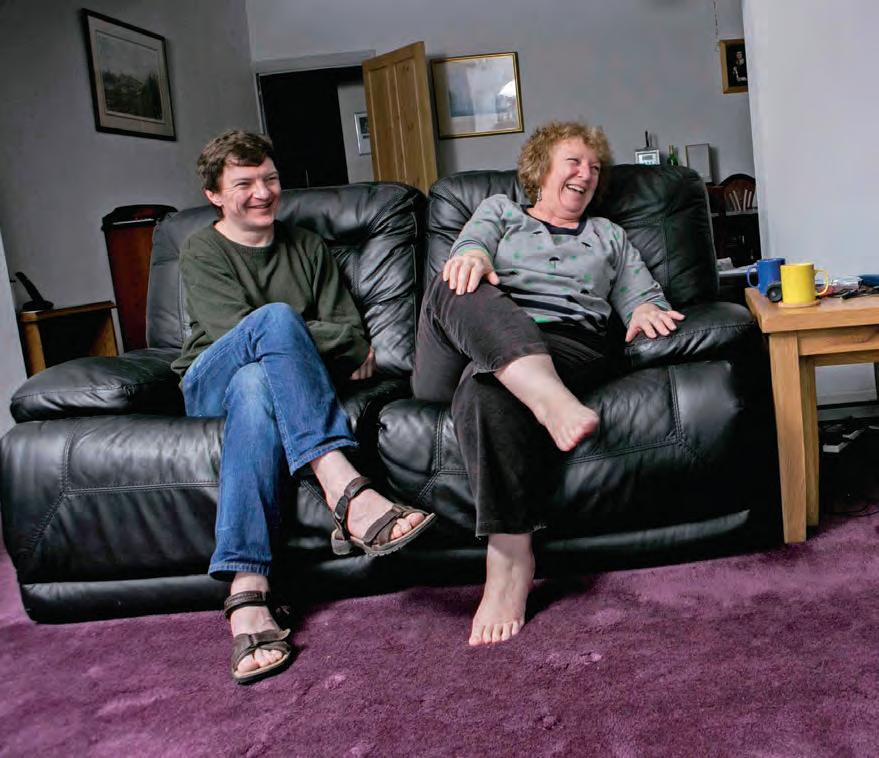
HILARY: The only thing that’s been an issue with Elizabeth coming back here was trying to make room for all her things. That just took a day of sorting things out, though. Nothing too troublesome. We do now get sudden influxes of visiting youngsters, but we always enjoy that, and we really like being able to see Elizabeth all the time.
But it’s a di erent kind of life to when she lived here before. I was working four days a week and Elizabeth was busier with college and things. We seem to have more time with each other now; to listen to each other more.
It’s di erent because Elizabeth is a grownup. She knows how to run a home, look after herself and make her
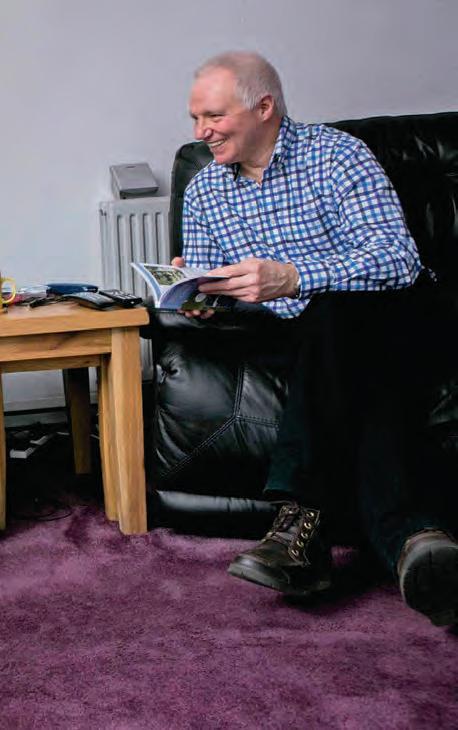
own decisions. So there’s an element of recognising her independence.
Every family dynamic is di erent—I think that flexibility, sympathy and understanding have made our experience of our child moving back home easier to manage. It depends on the personalities, but it could be a good solution to any situation—financial or otherwise.
“I did feel like a cuckoo at first—like I’d muscled in on some other bird’s nest”
James Milsom, 33, volunteers at a homeless charity. He lives with his dad Ken, a retired civil servant, and payroll-clerk mum Adie, both 65, in Keynsham, near Bristol
JAMES: I’m a bit of hypocrite—I think that people my age shouldn’t live at home. They should be getting to know their parents on an equal level, seeing them as real people. It might be a British thing, but people should have their own house, and people who live in a place that’s too expensive should surely move somewhere less pleasant!
But I moved back home four years ago when I found myself unemployed and unable to pay rent. I think the only people that would have me at the time were my mum and dad.
I did feel like a cuckoo at first—like I’d muscled in on some other bird’s nest and eaten all the food. I don’t feel like that any more. I have a very, very easy life and I wouldn’t choose it to be any other ►
◄ way [laughs]! But there’s a certain life script that you’re meant to live by, and being my age and living at home is somehow anachronistic. Mum and Dad treat me like I’m younger again and I kind of play back into that role, so I’m not quite myself.
◄ lift my mum gives me comes with the proviso, “I’m giving you lifts and one day you’ll be giving them to me.” Or it’s, “Every meal I give you, one day you’ll have to cook for us.” Sometimes it’s a joke and sometimes I think she actually means it. Which is fair enough, I guess! We have a grim sense of humour in our family that I really enjoy.
I’m lucky, though—my parents are quite big on that unconditional thing. Rock bottom for me is a place that they’re still underneath, ready to catch me. It’s easy to forget that there are plenty of people in the world who can drop further. I work with homeless people, and what’s happened to them couldn’t happen to me. I sort of take that for granted, but realising that I do and being able to take it for granted is very nice.
In theory, if my parents couldn’t look after themselves, I’d have to do it because they’ve banked up so many favours. Every
KEN: I think having James back home has meant we worry about him less. Well, I worry about him a lot, but then I’m a worrier.
I believe that you think you know your kids, but you never really do. If they’re at home, though, you witness their lives close up and get a much better insight—their moods, their personality, what makes them tick. Likewise, you know, I don’t hold back if I’m angry, so in some ways he’s

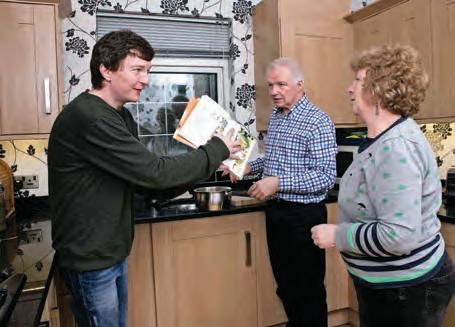
more subject to our disapproval than he otherwise would be. In a way, it’s made us be ourselves more around each other.
I’d rather he was away from home— for him—but that isn’t the way it is. It’s important that we’re there for him and
we’ve always wanted to be his anchor. We saw it as important that he had somewhere to come home to—maybe more than he did, really.
We do joke about James looking after us, one day. Hopefully, that’ll be quite a few years yet. Mind you, there are certain things where he’s already our lifeline. Like if our TV doesn’t work or we need to know something on the computer. If he wasn’t here, it’d be more di cult for us. So already he does things for us. Not much, though—he’s a lazy toad really. But as for becoming infirm, I’m expecting that in the future that might happen and, as our only son, he’ll have to get involved. I do wish he’d do more gardening right now, though. n


Welcome to the pages that help make life simpler, easier and— we hope—more fun!
Uh-oh, that glorious spring sunshine shows only too clearly that the house requires a little TLC and a coat of Slipper Satin. But choosing a colour is just the beginning, because finding the right finish will make your head spin even if the paint is solventfree. Should it be Endurance, Once, Earth Balance or bogstandard vinyl matt? We asked Julian Cassell, professional decorator, blogger (juliancassell. com) and author (Know-How With Show-How, £25) for his favourites.
Bashed-about walls Apply wipeable paint that resists knocks. “My go-to brand is Dulux Trade vinyl matt, on sale at B&Q,” says Cassell. “The colour range is huge and the




quality is one of the best.”
A budget range like Glidden is fine for ceilings, as there’s no wear and tear.
Country-house chic Farrow & Ball Estate Emulsion has an unrivalled velvety finish and depth of colour, says Cassell. Paint Library is good too. For woodwork, use solvent-based eggshell, which is durable and has a classy matt finish.
Fast preparation Zinsser B-I-N fills knots and primes interior wood and dries in minutes. But for outside woodwork, nothing beats exterior oil-based primer.


They need time on their own, you may think, postponing a visit or call to someone who’s ill or bereaved. But though it’s hard to know what to say, we should always make the e ort. “I wouldn’t hesitate to raise the subject unless you’re sure they don’t want to talk,” says Toni Bernhard, whose award-winning book How to Be Sick (£11.99) is based on her own experience of illness.

“If they’re angry, that’s OK. If they think it’s unfair, that’s OK. If they’re grief-stricken, that’s OK. Just let them know that you hear them and care about them,” says Toni. At all costs, avoid referring to your own experience or giving well-meaning advice—it’s not what they’ll want to hear.
Actions are vital. When words are long forgotten, friends will remember who mowed the lawn, made a casserole, or ferried their children to school. So give yourself a pass if you say the wrong thing, says Toni. “If your intention is good, even if your words are clumsy, your compassion will shine through.”
Instead of... Say...
“You can beat this,” or, “Time’s a great healer.”
“I know how exactly you feel.”
“Let me know if I can do anything.”
“You look exhausted.”
“A meal out will cheer you up.”
“I’m sorry. It must be so hard for you.”
“I can’t imagine how you feel.”
“I’m going to the shops —what can I get you?”
Breathability Though most emulsions are now eco-friendly, Mythic Paint from the US contains zero toxins, says Cassell. “It doesn’t smell at all—and the woodwork paints are the only water-based ones I recommend.” ►
“You look fine, but how are you really?”
“I miss our lunch dates. Let me know when you feel up to it.”
Insurance money can’t bring back your mum’s engagement ring or grandad’s medals—but maybe you can.
Once you’ve reported the theft, register the property on immobilise.com, which links to all UK police forces. Then scan eBay, Gumtree and Cash Converters, plus specialist websites such as the National Equestrian Crime Database or the Art Loss Register if riding tack or paintings have gone missing. Check out local junk shops and car-boot sales, but don’t expect to get lucky straightaway. “Many thieves keep stu hidden for a few months, so keep looking,” advises website itsbeennicked. co.uk, which posts property alerts.
Sure you’ve found the swag? If you spot your property online, take a screenshot and make a note of the seller’s name, location and contact, but don’t notify them in case they delete the post. Play along and ask for details, and when you’re sure it’s yours, notify the website and the police (for more tips, see facebook.com/preventcrime). If you see it in a shop, take a photo and tell the manager and the police. To outwit thieves in the future, register valuables on immobilise.com and mark them with your ID. The Property Protector (£19.99, crimestoppers-uk.org) creates a unique mark that’s only visible under ultraviolet light. For smartphones, activate a Find

My Phone or Lookout app, which tracks phones, sounds an alarm and allows you to wipe data.

It’s a modern fairy tale. Simply publish your book online and wait for the book trade to make you an o er you can’t refuse. Soon you could top the best-seller lists and be fending o o ers from Hollywood, just like E L James. But with millions jostling for attention, how do you stand out from the crowd?

you could top the best-seller lists
Self-publishing is free, and if your book’s a hit, royalties can reach 70%. On the other hand, you’ll have to edit, format and publicise it, which means spending hours on Twitter and Facebook. Or outsource the work to a company like PublishNation, say writers’ co-op Jeeve Stories, who paid £100 to format Fish Pie and Laughter.
Alternatively, try catching the eye of an e-publisher like The Writer’s Co ee Shop (behind Fifty Shades of Grey), join a writers’ forum, or apply to the Romantic Novelists’ new writers’ scheme. If you succeed, you’ll get professional editing, designers to help with the cover, and a marketing team to contact reviewers.
And how much will you earn?
“Only pocket money for a first book,” warns Christa Beebe of The Writer’s Co ee Shop—the third is often the breakthrough.

Fragrance drifting across the garden is one of life’s joys, and it’s a bonus you can enjoy for free. “Simply choose the scented option when you buy plants,” says Stephen Lacey, author of Scent in Your Garden (£20). True, most fragrant plants like sunshine and shelter, but honeysuckle and philadelphus will grow where it’s windy, and scented evergreens tolerate shade.
Scent is not just for summer. Sweet box, winter jasmine, daphne bholua and mahonia japonica (which smells like Lily of the Valley) will lift your spirits in the depths of winter. In spring, shrubs such as Burkwood viburnum and Delavay osmanthus

release a spicy scent, while a window box of crocus brings their delicate perfume nearer your nose.
By June, there’s an extravaganza of scent with daphne odora, lilies, herbs like lavender, and any number of roses. Lacey recommends the old-fashioned shrub rose De Resht, which produces scent-soaked scarlet flowers. Many will last into autumn, when stocks, myrtle and Mexican orange blossom come into their own.

To make scent more accessible, trail climbers over a pergola, grow perennials near a bench or door, and choose night-scented stocks, tobacco plants and moonflowers if you’re at work all day.
Did you know that “bookkeeper” is the only word in the English language with three consecutive double letters?
Find out more amazing facts at the OU Tree of Knowledge readersdigest.co.uk/open-university/ou



Most of us exchange a few words and move on, but Carole Stone, author of The Ultimate Guide to Successful Networking (£4.99) and chair of YouGov Cambridge advisory board, always follows up an initial contact. “If you do it in a friendly way, it won’t seem pushy,” she says. “Say, ‘I’ve so enjoyed talking to you, I’d like to keep in touch.’ Ask for their number.”
Inevitably there’ll be knockbacks, but that’s no reason not to talk to strangers, including celebs. “It’s vital to be brief, but tell them how much you enjoyed their book/programme/campaign,” says Stone. “If it goes well, who knows what it might lead to?”
Avoid monopolising people or abandoning them, and make a point of saying thank you before leaving. If you arrange to see a guest afterwards, invite the host too. And if your social life grinds to a halt, tell neighbours, friends and anyone you’d like to know better that you’ll be having a co ee morning for an hour at the same time every week for a month.
● Be careful what you ask for. Half an inch o the ends means you’ll go out looking much the same as when you came in. And saying you want a dramatic change means that’s exactly what you’ll get.
● I can save you a fortune in clothes. If your hair looks sensational, no one will notice what you’re wearing.
● “It’s probably me, but...” is a tactful way to start if you’re unhappy with what I’ve done. But don’t wait too long to tell me or I may not do it for free.
● Please think it through. A high-maintenance style takes time to manage. If you’re a wash ’n’ go type, let me know and I’ll suggest a better option.
● Leave hairdresser-speak to me. Layers, graduation, ash, dip-dye, a grade one, bedhair... if you’re not 100% sure what they mean, show me a picture before I get snipping.
● Wash behind your ears. It’s amazing how many people don’t.
● If you cross your legs, I can’t cut straight.
● Don’t feel pressurised to buy products unless you like the e ect they give. Ask how I get the look instead and get my expert tips for free.
● Ask for a free consultation. I’d rather give you five minutes of my time now than spend half an hour sorting out problems later.
● Don’t fight your hair. It doesn’t matter if it’s thick, fine, curly, straight, black, red or balding —I’ll get better results if you let me work with it rather than against it.
● I cut hair, not prices. But if you’re on a budget, you can stretch the time between appointments by asking for a free fringe trim and save money with a T-section of highlights instead of a half-head.
● Here comes the bob. If I give you a boring haircut or rush you to the basin without discussing what you want, I’ve stopped seeing you as an individual—and it’s time to walk.
● Saturday’s a bad time for a first date. I like to see new clients early in the week, when it’s quieter. But avoid the first appointment (in case I’m late), the last (I’m anxious to get home)
and lunchtimes (it’s when the wage slaves turn up).
● I know the salon’s stars.
If you have di cult hair or want an edgy treatment or a good head massage, ask me who I recommend.

● A complimentary conditioning treatment is code for, “I’m running very late.”
● Here’s the hairdryer. You may have spent £250 on highlights, but don’t expect me to blow-dry your hair. That’ll cost extra.
● I can’t give you Hollywood hair unless you have extensions, hair pieces, five di erent highlights, six hours, and unlimited funds.
● If you style your hair the way you always do, you’ll have the look you always have, no matter what I do.
● If you want to put my back up, arrive late. Squeezing you in before the next client is frustrating for me and very bad news for your hair.
● Oh no, not a combover! Let me taper the hair to blend with your bald spot instead. n

Every time I see a bedsore it makes me feel sick
The nurse pulled back the covers and I recoiled instinctively. It wasn’t so much the sight of the raw flesh that made me feel ill as the smell. “It must have been like this for months,” said the nurse, shaking her head in disgust. “How can they claim to be caring for this poor woman when they leave her to develop sores like this?”
Mrs Millward smiled: “Oh, don’t worry about me, I’m fine.” The nurse and I looked at each other. “This is really serious,” I said. “You’ve got a pressure sore and these really shouldn’t develop if you’re being cared for properly.”
A pressure sore—also known as a bedsore—occurs when continuous pressure on a part of the body means blood flow to the area is restricted and the skin starts to break down as a result.
In their advanced stage, as in Mrs Millward’s case, bedsores look like someone has taken scoops out of the flesh, to the extent that the underlying bone can become exposed. They are truly revolting and caused by only one thing: neglect. With proper mattresses and regular


Bedsores are truly revolting, and they are caused by only one thing: neglect
turning of the patient, there’s no
turning of the patient, there’s no need at all for them to develop.
Mrs Millward is in her seventies and has severe, debilitating rheumatoid arthritis. As a result, she’s bedbound and reliant on the sta at her nursing home to do most things for her. Her hands are so crippled she can only just hold the TV remote control and change the channel. She certainly can’t turn herself.
Since this first encounter with bedsores, I’ve come across them many times when working with older people or those with conditions that mean they depend on others for their personal care. And every time
I do, it makes me feel sick—not because of how bedsores look and smell, but because of the gross negligence they represent.
It’s estimated that bedsores a ect nearly half a million patients each year, and yet they’re entirely preventable. They can also be fatal.
In fact, nearly as many people die each year from bedsores as from the superbug MRSA. But, while MRSA attracts national campaigns and political intervention, bedsores go largely ignored. There are no posters in hospitals about them, no leaflets handed out.
Nurses don’t wear badges, either, encouraging us to ask them if they’ve turned a patient, in the same way as they wear badges telling us it’s OK to ask if they’ve washed their hands.
So why not? I suspect it’s because bedsores a ect the weakest members of society: the old, the infirm, the disabled. These people have few advocates, they’re shut o from the world in institutions and so their plight goes unheard.
Bedsores aren’t simply a breaking down of the skin due to pressure. They’re a sign of an unforgiveable neglect that has no place in our health-care system. They should make us all recoil.
Max Pemberton is a hospital doctor and author. His most recent book is The Doctor Will See You Now




All you lovers of midnight snacks, fear not. There’s no evidence that eating late at night increases weight gain. The simple truth is that if you eat more calories than you expend, you’ll put on weight; if you eat fewer, you’ll lose it. The time of day you consume those calories doesn’t really matter.
WHERE DID THE MYTH COME FROM? It seems to be from a number of fad diets that discouraged the eating of carbohydrates past a certain time in the evening. The theory is that if you eat carb-rich food and then go to bed, the body isn’t able to use the energy because you’re asleep, and so stores it as fat. But this simply isn’t how the body works—and there’s not a jot of evidence to say otherwise.

Don’t get too complacent, though: snacking at any time of day can lead to weight gain, so you do still have to watch your daily calorie intake.
SO THERE’S NOTHING TO WORRY ABOUT? Well, while eating late at night might not make you any fatter than eating at any other time of day, that doesn’t mean it’s not bad for your teeth—if you don’t brush them after eating and before going to sleep. When we sleep we produce less saliva and this means the bacteria in our mouths can reproduce more. If there are still sugars from our food in our mouth, more bacteria can grow, and do even more damage to our teeth. ■



If you thought radiotherapy was a waste of time, with little hope of it beating the big C, then think again. “Radiotherapy is now planned and delivered with high precision equipment,” explains Charlotte Beardmore, education manager of the Society and College of Radiographers.
Millimetre accuracy: a patient being prepared for radiotherapy
Q: What cures more people with cancer, radiotherapy or new cancer drugs?
A: Radiotherapy helps 40 per cent of people with cancer beat the disease, putting it in second place after surgery—and above both the latest cancer drugs and chemotherapy.
“Computing power enables complex treatment plans to be developed so that the treatment is targeted with millimetre accuracy.” It now o ers a much better chance of a cure and less damage to healthy cells, making for fewer side e ects.
From this month, thanks to increased funding, an estimated 8,000 more patients will benefit from one such cutting-edge treatment, intensity-modulated radiotherapy (IMRT). This allows the strength of the beam to be changed so that strong doses of radiation reach the tumour, while healthy tissue receives lower doses. It’s used for cancers sited near important organs.
Other radiotherapy developments include:
l High-dose brachytherapy for early-stage prostate cancer, gynaecological, breast and skin cancers. Rather than beaming in high-energy rays from the outside, this zaps the tumour from the inside. In the case of prostate cancer, radioactive seeds are implanted in the prostate, reducing the risk of impotence and incontinence.
Autism is still surrounded by any number of distortions and half-truths. So each day in the run-up to World Autism Awareness Day on April 2, the National Autistic Society is tweeting one of the many myths—and then debunking it. Check these out...
#AutismMyth: Autism only a ects males.
#AutismMyth: People with autism prefer to spend their time alone.
#AutismFact: Many may want to interact socially, but they may not naturally have the necessary social skills.
#Autism Myth: Stimming (repetitive behaviour like flapping or rocking) is undesirable and should be stopped.


#AutismFact: Autism a ects females too, although many more males are a ected—in the case of high-functioning autism or Asperger’s perhaps 15 times as many.
#AutismFact: It can help people with autism deal with chaotic environments or stress—and be a healthy method of personal expression and communication.

More usually, though, a radioactive pellet is driven down a tube into, or close to, the tumour site.
lTargeted intraoperative radiotherapy for earlystage breast cancer. A doctor fires radioactive rays into the tumour site during a lumpectomy, cutting out the usual 30 radiotherapy sessions. At present, it’s only available at a few centres, but all NHS patients who receive it are part of a trial.
#AutismMyth: People with autism don’t feel emotions.
#AutismFact: Many feel emotions intensely and can be overwhelmed by the emotions of those around them.

lStereotactic ablative radiotherapy (SABR) for peripheral lung cancer and small, localised brain tumours. Rather than targeting tumour cells, as with other kinds of radiotherapy, SABR sets out to destroy the cancer itself—and is also known as radiosurgery. This high-dose, high-precision treatment—the CyberKnife and Gamma Knife are both specific pieces of equipment that deliver SABR— is available on the NHS on a case-by-case basis.
Find out more about autism at autism.org.uk or on Twitter @ NatAutisticSoc. For more information about men’s health generally, go to malehealth. co.uk.










If your days out are being ruined by too many visits to the toilet you may be su ering from an overactive bladder.
Over 7 million people in the UK su er too, so you’re not alone.
Luckily there are treatment options available including e ective medications from your doctor.
To find out more about overactive bladder and the help available visit
www.bladderproblem.co.uk
Or call our free helpline on 0800 011
4766












Is there nothing that phones can’t do? Three apps to help you stay healthy

● Red Cross This free first-aid app was recently used by a friend of mine when a man collapsed in the street.
“He was either having a heart attack or a severe attack of angina,” she recalls. “He was flat out on the ground, but I’ve done a few first-aid courses and kept thinking he should be sitting up.” In fact, when she consulted the Red Cross app on her smartphone, it reassured her that the patient only needed to be comfortable.
● Carbs & Cals Simply click on one of 2,500 food and drink pictures using this £3.99 app to find out the calorie, protein, carbohydrate, fat and fibre
1. Eating out of boredom. Before reaching for that cake, ask yourself if you’re really hungry. Exercise instead to keep the boredom munchies at bay.
2. Skipping breakfast. Eating breakfast helps keep the weight o , because it prevents you overeating later.
3. Not paying attention to your food. Avoid working or chatting on the phone while eating—you’ll pack away more than you intended. Put everything on a plate, even that solitary biscuit.
4. Finishing o other people’s plates. Yes young mums, we mean you! Those last few mouthfuls of spag bol could mean 100 extra calories a day, adding up to a ten-pound weight gain over a year!
content of whatever’s on the supermarket shelves or on your plate. You can also use it to keep track of all your meals on the calendar provided. The result is ideal both for dieters and for diabetics who have to count their carbs.
● Instant Heart Rate Azumio provides this free app that allows you to monitor your resting heart rate and so to keep tabs on your heart health and general fitness. Just put your index finger on the phone’s camera et voilà—your heart rate comes up on the screen. What’s more, the app also tells you if it’s within the normal range. What’s not to like?


5. Supersizing. The more food you have in front of you, the more you eat. Order only what you need.
6. Salting your food. Too much salt can raise blood pressure. Retrain your taste buds by experimenting with herbs and spices. Read food labels and look for products with reduced salt.
7. Eating only salad at lunch. It’s bad for energy levels, plus you could end up overeating at suppertime. Include some lean protein like grilled chicken or fish to keep you fuller for longer.
8. Depriving yourself of treats. Smart eating is all about moderation. If you go gaga for chocolate or chips, enjoy them occasionally. Just make sure that overall you’re eating healthily. ■
• Stylish
• Compact
• Convenient

Can’t quitehear your wife or husband, the TV, colleagues at work, or the loving words of your grandchildren?
Then these spectacle hearing aids could be the answer if you havea hearing problem.
Stylish frames that cleverly contain and disguise a digital hearing aid in the spectacle arms slip easily into your pocket, purse or handbag.They are a remarkable invention that overcomes two problems at once.
While most people are not bothered by wearing glasses, the same cannot be said for
wearing a hearing aid. These specs are brilliant because you wouldn’t think they are a hearing aid.
Some people can find it uncomfortableand unnaturalto have a hearing aid in their ear but that’s not a problem with these as there’s nothing in the ear to irritate you.
So if you want to have clear vision and quickly improve your hearing, apply now for a free information pack by sending the freepost coupon or by calling the number below.


I don’t know how yours are doing, but I can’t get the measure of my nails at the moment. They’re usually strong and need only an occasional bit of trimming down—but right now, they’re splitting and peeling.
What to do? Eat jelly cubes? Use gel polish to glue them together? Put sticking plaster on the tips in the hope of stopping them shattering so easily?

back on track. He also knows why it can be so hard.
“Forget jelly cubes,” he says, “it’s a myth. Nails often get bad over the winter as cold weather and central heating dry them out, in the same way they dry out your skin.
When your nails start falling apart, you need to take action rather than just hope they’ll sort themselves out, says nail supremo David Barton. His work, whether for catwalk shows or photoshoots, means that he knows how to get problem nails







“Once your nails start peeling, it becomes a vicious circle because when you wash your hands or do the washing up, water gets in between the peeling layers and strips some of the natural oils, which leads to further flaking.”
If you can catch David in person, he has a treatment called Re:fusion at the Percy & Reed salon in London (percyandreed. com) for £35. This breaks the

Aerin Garden Palette, £45, Harrods, Selfridges and selected John Lewis stores. The first make-up collection from Aerin Lauder—granddaughter of Estée—was all about practicality: light palettes, colours to wear day in and day out, gorgeous textures. But her new spring products are super-pretty too. Wouldn’t this little darling lift your mood every time you saw it in your bag?
cycle by sealing the flaking layers to keep water out while the nail grows stronger.
Another thing to try is nail strengtheners such as Dr Lewinn’s Renunail (£17.50, drlewinns.co.uk). “Most people only use these when they paint their nails,” says David, “but you should paint on a coat every day, then once a week remove it all and start again. Keep massaging nail oil into the cuticles every night too.”
And don’t forget the basics— which in my case means wearing rubber gloves for the washing up and not using my nails as tools. Every little helps…





If the sight of Helen Mirren’s pretty pink hair on the red carpet at this year’s Bafta awards—and on all the front pages the next day—stirred a longing to try something similarly bold, there’s a new service from Redken that could be just what you’re looking for. Redken’s Chromatics Beyond Cover range of permanent hair colours is designed specifically for people whose hair is 75 per cent grey (or more) and as well as “normal” colours they are adding pink, orange and, um, green, to the line-up. For details of salons, call 020 8762 4358 or visit redken. co.uk.
Judith Rham, 62, from Cambridge, just loves Sarah Chapman’s Overnight Facial.
“I absolutely can’t be without this wonderful serum oil. It feels like liquid velvet gliding over my skin and leaves my face supple and smooth. I think I have found my holy grail!

“It also smells divine and helps me relax before going to sleep. And in the morning my skin looks like I’ve had a great night’s sleep—even if I haven’t.” (£45, sarahchapman.net)


While the fashion pack are all after nude nails and youngsters are going mad for pastels, I’m rather smitten with Dior’s Nail Glow, a treatment varnish that looks almost clear, yet by some alchemy makes the nail’s pink bits pinker and the white tips whiter: an instant French manicure. (£18, dior.com) ■
Alice Hart-Davis is an awardwinning beauty journalist who writes regularly for the national press, and is the creator of Good Things skincare

“Where do you want the sun?” a photographer was asked by the London cab driver on one recent photoshoot I attended. This o er to move heaven and earth was more about where he would position the taxi, but it did remind me of another e ort at celestial manipulation that tickled and infuriated me in equal measure.
So here’s a puzzle. When are there only 360 days in a year? Answer: when a bank owes you interest. Quelle surprise! I jest not. For the purposes of calculating interest, some of the returns of our high-street banks are based not on the Gregorian calendar (which has worked for nearly half a millennium), but on their own bespoke version.

When Pope Gregory XIII introduced his new calendar in 1582 to address the loss of a day every 128 years in the previously standard Julian calendar, he disposed of ten days in October but he settled on the 365 days a year that we all know and love, excepting leap years.
What Pope Gregory XIII would make of the banks’ current heresy
is anyone’s guess, but when I was in rich company recently, it was quite clear that depositors weren’t very happy. One told me that he’s moved his money from one major high-street chain’s wealth-management account, simply because they refused to pay him interest on the full year based on the internationally accepted standard.
For most of us, there simply aren’t enough hours in the day to do our jobs—and, for the banks, clearly not enough days in the year to do the right thing.
Donal answers your questions. Please email queries to excerpts @readers digest. co.uk
QA holidaymaker bought a package holiday to the Czech Republic, which included liposuction treatment in the price. Is she entitled to a refund if the procedure didn’t go ahead for medical reasons?
A
Medical tourism causes huge problems across borders, but you have much better chances of getting redress within the EU. In this case, a call to the UK European Consumer Centre is useful if you’re having di culty—similar problems handled by them have resulted in refunds for the cost of the holiday, including the deposit on the procedure that didn’t go ahead. You can initiate international consumer complaints by filling in a cross-border complaint form (ukecc.net; 08456 040 503).
Q



I recently bought a dozen eggs from a major supermarket. As a vegetarian, I was shocked that one of the eggs was fertilised and near full gestation. I brought it back to the store, but they only o ered me some loyalty card points. Should I have demanded more?
A
Donal MacIntyre is an investigative journalist and a former presenter of ITV’s London Tonight

I used to skip school at Christmas to pluck turkeys for extra pocket money (I got 90p for a cock and 60p for a hen), so I feel well qualified to answer this! A cockerel should never have got near the hen that laid your egg, and the fact that it did suggests that maybe it was free range. (You have to admire the birds that found a way through to each other, despite the farmer’s best e orts.) Typically, the store will send the egg o for analysis before giving you a refund and maybe some extra loyalty points. But you’re well within your rights to insist on an immediate refund, particularly if there’s no dispute over the fertilised egg.
Spare a thought, though, for one shopper a few years ago who bought some eggs from an upmarket store, only to find one hatching before it found its way into the pan…
There’s nowt as strange as hotel guests, and anyone who works in the industry is aware that some of their complaints are simply bonkers. One hotel in Australia had a guest who complained that there were no kangaroos on the streets of Sydney, while another tourist in the Far East claimed she’d never been told that mosquitoes bite. But my favourite was a male guest who saw an aroused elephant on his travels and said it made him feel inadequate for the rest of his holiday. ■


The cost of car insurance has risen sharply in the last few years, driving a number of motorists o the roads. It’s now particularly bad for young women, since the EU gender directive put their insurance on a par with young men. So for everyone, here are a few ways to cut the cost:
The best way to make sure you get the best deal is by shopping around. Comparison websites can search hundreds of providers and display a table of results allowing you to see who o ers the best rate.
“Zero emissions, no flashy add-ons— think of the premiums!”
In fact, you should see your renewal notice from your current insurer as a challenge. How much cheaper can you get your insurance? Start with your current provider. Get the best deal they can o er you, and then go onto one or two comparison sites and see how much more you can shave o .
All you need to do is enter details you would usually give an insurer—such as model and make, registration, annual mileage and information about where the vehicle is parked. The comparison site will then o er a range of providers’ prices.
Remember, though, that not all insurers are listed on comparison websites—so it’s still worth picking up the phone and giving a couple of extra ones a call.
Car insurance bills are hard to swallow in one payment, but it works out significantly cheaper in the long run if you can make a one-o payment. Paying a monthly premium will include some interest and only adds to the cost of your insurance.
Insurers love well-behaved drivers—and what better way to prove you’re safe than by opting for pay-as-you-drive insurance? Telematics, or the “black box”, monitors your driving habits—such as braking, acceleration and cornering— and so provides a personalised record of your driving.
The black box is fitted in your car and tracks your vehicle’s movements through GPS systems. It then feeds back information to your insurers, who base the premiums on your driving ability. There might be some conditions to the policy, such as limited driving times.
The size, age, value and make of a car all contribute to the cost of insurance. Eco-friendly cars come with a number of benefits and specialist green car insurance providers o er cheap deals for low-emission cars. Fuel guzzlers and high-performance models typically fall into the higher car insurance groups.
If a household has more than one car, insurers will, more often than not, o er a discount for multiple cars. For example, Admiral’s Multi Car insurance combines cars on one policy, with each car eligible for its own discount. Vehicles can also be registered at separate addresses.
The Government has announced a number of benefit and taxcredit changes, which come into force on April 6, a ecting millions of households. But who are the winners and losers?
If you love audio books, you’ll love AudioGO.
It’s the home of BBC Audiobooks, with more than 10,000 titles available. To get £5 o any book in the range, simply use the discount code RD1AG2 at audiogo. com/uk by May 20.
l Most earners should be better o , as the personal tax threshold is going up by £1,100 to £9,205. This means you can earn up to £9,205 without paying any tax at all.
l The basic state pension will increase by 2.5% to £110.15 a week.
l The carer’s allowance and disability benefits will increase by 2.2%.
l Public sector workers will benefit slightly from a 1% pay rise after a three-year wage freeze— although this doesn’t match the 15% wage loss in real terms during the time of the freeze.
l Those receiving housing benefit are likely to have their benefits capped or reduced. If you’re a single parent or in a couple with or without dependent children, the cap will be £500 per week. Single
adults who don’t have children, or have children who live in another property, will be capped at £350 per week. If the combined income from certain benefits is more than the cap, housing benefit will be cut.
l There will be a three-year cap of 1% increases in most benefits and tax credits. This is well below inflation—and so bad news for those who rely heavily on benefits such as jobseeker’s allowance, working tax credit and child tax credits, and even those who need maternity, paternity and adoption pay.
l Changes to housing benefit will penalise people with a spare bedroom. The “bedroom tax” is being introduced for housing association tenants. Those with one spare room will see their benefits cut by 14%; those with two or more, by 25%. This won’t a ect private sector tenants.
l The replacement of council tax benefits with the Council Tax Reduction Scheme means that no new claims for council tax benefits will be accepted. Pensioners, however, will not be a ected.
l Although those in work generally are being helped by the tax changes, it’s not such good news if you’re on a higher salary. The basic rate tax limit has just gone down by over £2,000 to £32,245. This means that anything you earn over that amount is subject to a tax rate of 40%.
Calling all dog lovers! If you fancy hanging out with man’s best friend, and getting paid to do it, then read on...
Dog-walking and pet-minding are great ways to make some quick cash. Not only could you earn up to £60 an hour, but you could even turn it into a full-time business. It’s also very flexible—and a fun way to get some exercise. Here are a few tips:
1What’s required? As with any job, you need to know what you’re getting into. As well as walking the dogs, you have to pick them up and return them home. They’re your responsibility while in your care, so you need to be prepared for whatever they get up to. You might need to walk a dog twice a day for a minimum of half an hour, although an hour is ideal. It helps to have a car to reach people and you might need a supply of pooper-scoopers, collars and leashes. If you’re going to set it up as a business, pet business insurance could a good idea.

Replace your old night storage heaters with modern, instant heat SMART storage heaters
Beat the rising energy costs: ACT NOW!
The unique Fischer 40mm chamotte clay core for extended storage, saving you even more in energy...

clay core 40mm




Slimline low input SMART STORAGE HEATERS
• Instant heating for one room or the whole house
• High quality German engineering, economical 40mm fire clay
• Heatwise, Economy 7, Solar PV compatible
• Direct from the manufacturer


• Easy to install - uses 13 amp, modern 110mm slimline design
• Control your room temperature away from the radiator for total comfort with our modern, wireless, intelligent room thermostat
Request your free catalogue now!
Complete details below, cut out and pop into an envelope with this address:
FREEPOST FISCHER FUTURE HEAT No stamp or address required.
Or call us on 0116 242 5533, quoting RD22MAR
Name: Tel/Mob:
Address: Post Code: Your information will not be sold to a third party.
*Refers to energy savings possible compared to night storage, if installed with our programmable electronic controls. Controllable Heat www.fischer-futureheat.co.uk Call 0116 242 5533

2
How do I get started? There are two ways: by going it alone or by working for an agency. You’re more likely to get work if you sign up to an agency—and you can easily find your local ones by looking in a search engine. The national agency Animal Aunts could help find work for you in your area. The only downside is that an agency may charge for taking you onto their books, and deduct a percentage of your earnings.
Going it alone requires a good reputation. It could well be worth signing up with the National Association of Registered Petsitters, so that you’re professionally vetted. Membership can be expensive, though—so alternatively you could put up an advert in a pet shop, or vet surgery, or on gumtree.com.
3 What are the rates?
Typically from £10 to £15 per dog per hour, so if you take out a few it could be a nice little earner in one walking session.
FASCINATING FACT
Just one in six couples regularly discusses retirement income and pension planning, and only 13% have seen a financial adviser together in the past five years.
Source: Prudential
4 How many dogs should I take? At first you might not want to take on too many. If you’re inexperienced, you’re unlikely to know how to handle more than one or two dogs at a time— especially if they’re unfamiliar with each other as well as with you. The size, speed, age and level of obedience of the dogs will also influence the walk.
5 What’s the legal situation? Certain councils restrict the number of dogs a walker can take (usually to a maximum of four), so check with yours first. More importantly, under the Dangerous Dogs Act 1991, if you lose control of a dog in your care it’s your legal responsibility—not that of the owner. If you’re serious about doing this, you should look into taking out public liability insurance.
...is set up a standing order into a new ISA and increase payments into your pension funds. Now is the best time as you have the whole tax year to benefit from the tax savings on both ISA and pension payments. People usually leave it until March, missing out on 11 months of interest building up! Even if you can only a ord £25 a month, it’s worth doing, as it all adds up over time. If you’re employed, your employer should be enrolling you into their company pension, if you’re not already in it. Make sure you stay in it if they do, so that you can build up contributions there too.

This is a measure of how easy something is to convert into cash. A savings account, for example, is very liquid because it’s easy to take the money out; an investment in a house is not as it could take months to sell. That’s why it’s a good idea to have a savings account at all times, so you can get your hands on some money if you need it suddenly. ■
Jasmine Birtles is a personal finance writer and the founder of moneymagpie.com

When life feels busier than ever, picking up the phone to Reader’s Digest makes getting car insurance a breeze, with UK based advisors on hand to give you all the help you need. We may have moved with the times, but we haven’t forgotten our customers. This was climate control
Advising our customers on an ever changing world for decades. Car Insurance 0800
For a quick, but exotic, meal on a weekday night, why not try this delicious stir-fry? It combines the flavours of France and the Orient, and it’s incredibly easy to make. The thread egg noodles are thin so they’ll cook quickly, but while they’re in the water gently prod them with a fork once or twice to keep them separate. Not a fan of pork? Try chicken, beef fillet or quorn instead.
500g pork fillet
8 spring onions
300g celery
300g small chestnut mushrooms
1tbs olive oil
250g thread egg noodles
3tbs wholegrain mustard
175g crème fraîche
Salt and black pepper
1. Preheat the oven to a low setting to keep the pork warm later. Put a large pan of lightly salted water on to boil for the noodles.
2. Cut the pork into thin strips; season with pepper. Trim, rinse and slice the spring onions and celery; clean and slice the mushrooms.
3. Heat half the olive oil in a wok or frying pan over a high heat and stir-fry the pork for 4–5 minutes until lightly coloured. Remove and keep warm in the oven.
4. Add the remaining oil to a wok or large frying
pan along with the celery and half the spring onions, and stir-fry for five minutes. Add the mushrooms and cook until soft.
5. Add the noodles to the boiling water, cook for three minutes, then drain well.
6. Stir the mustard and crème fraîche into the vegetables and bring the mixture to the boil. Add the pork, let it heat through, then season to taste.
7. Serve the stir-fry on the noodles, sprinkled with the remaining spring onions. ■




There’s definitely life beyond Chardonnay and Sauvignon Blanc, and thankfully we’re seeing it in the UK in the shape of Grüner Veltliner, or Gru-vee, or simply Grüner. It’s taken some prising from the Austrians, as they’re big fans of their home-grown grape. Now, though, it’s widely available to us and its gentle, nettley, white-peppery, floral waft, leads enticingly to a dry mouthful underpinned by grapey fruit. Overall, it’s clean and qua able, rather than oaky. Expect to pay £7–£13 for a bottle.






Rather than binning your ageing vegetables, roast them—with salt, pepper and herbs—in plenty of rapeseed oil. Then whack them in the fridge to whip out and heat up as a tasty base for other dishes during the week.
A website that puts a smile on my face is barchick.com, a guide to all aspects of drinking out, set up by a group of fun, fast-living women. The “Where to Dump Someone” section suggests finding somewhere loud—so no one will notice the crying —and ideally open-fronted for a quick escape. If you’re looking to be dumped yourself,

aggressively on a rack
a rib-shack style eaterie is recommended, as being covered in BBQ sauce and chewing aggressively on a rack of ribs with a greasy face is a great way of repulsing your man—especially if you eat with your mouth open.
The site also has good sections on Dog-Friendly Bars, Best Loos and Bars to Blow Your Cash—as well as useful guides to boozing in cities across Britain and the world.
Many of us mistakenly think low-fat and light versions of food are inevitably healthier than the full-fat versions. In fact, much lowfat food has a higher sugar and calorie content. Where flavour was delivered through fat, it’s now delivered by sugar. Have a peep, for instance, at the sugar content on labels of low-fat biscuits and yogurts.
Nigel Barden is the food and drink presenter on Simon Mayo’s show on BBC Radio 2, and chairman of the Great Taste Awards
Whether you’re new to health insurance or paying a fortune into an existing scheme, Reader’s Digest Financial Services can put your mind at ease with a review designed to find you better cover at a lower price. NDI Healthcare are totally independent and will monitor the whole of the insurance market on your behalf so you feel more secure than ever.
• You’ll save money with cover from just £1.40 a day *
• You’ll enjoy better cover and better quality care for you and your family
• You’ll receive independent advice from an expert – not a salesperson Our independent, FREE review will help you make the best decision for you and your loved ones.

website:


For best results, give your fruits a quick touch-up


QAs bees are in short supply, do we need to hand-pollinate our fruit and vegetables? If so, how?
A
It never hurts to handpollinate anyway, especially with early blossoms such as apricots and peaches, and of course under cover where few insects can gain access. Small and individual flowers are best touched in the middle with a small paintbrush or cotton bud. (Traditionally, rabbit tails were

used.) Go over the blossoms at least twice and again later a couple of days apart, so none get missed. Where there are great masses of flowers such as with cherries, a wide soft brush or a feather duster will be quicker.
Theoretically one should guard against mis-pollination, but in practice this is seldom a problem, even if using the same brush for dozens of di erent plants. Few vegetables need bees to pollinate them, although fruits such as tomatoes, sweet peppers and marrows do.
Q
What can I grow to sell at my gate for pin money?
My friend says it’s a waste of time—I already grow more than I need, and no one passing wants my surplus veg because they grow their own.
A Cut flowers are often bought spontaneously and fetch more cash per pound than most vegetables. Da odils are always popular early in the year. as are Lilies of the Valley. Gladioli go as soon as they’re displayed, as do chrysanthemums and dahlias in autumn. But all these mean buying in the stock— sowing annuals is much cheaper.
Brompton stocks and Sweet Williams are popular, and zinnias and cosmos might sell well too. Dried flowers such as statice are excellent because they can be sold year round, but nothing sells as quickly as bunches of sweet peas.
Q
My patio plants are in pots, and I accidentally left them standing in their saucers all winter. Most of them drowned, and the survivors are mi y anyway as I often forget to water or feed for weeks on end. What could I plant that would survive such care?
A Winter drowning will do for most plants, so it’ll be much easier if you can avoid that. Sporadic watering and minimal feeding isn’t ideal, but there are plants that may cope, at least for the summer. Pelargonium, the red geranium in a pot, is a great survivor as long as it’s also in a sunny place—outdoors it’ll die in winter, so just get another the next year.
Houseleeks are not huge, but their neat cushions require minimal attention. Sedums are similar. Herbs such as rosemary, sage, thyme, lavender, marjoram and chives will stand a lot of neglect. For sheer simplicity, sow plenty of nasturtiums.
Bob Flowerdew is an organic gardener and a regular on BBC Radio 4’s Gardeners’ Question Time. Send your gardening questions to Bob at excerpts@readersdigest.co.uk





Mow, mow, mow more frequently, and use the trimmings as mulch around soft fruit, trees, shrubs and roses. Sow, sow, sow, for if it’s not in the pot or ground it can’t grow. In particular, sprinkle grass seed on any bare spots in turf. And hoe, hoe, hoe as the weeds grow like topsy this month—rake them up for compost. Under cover, be sure to keep on top of the watering, opening and closing and potting on, because any check now can ruin so many crops. And as this is a month of blossoms, pause for a moment each day and look around.





A washed-out lemon squeezy is ideal for watering tender young plants—you can add just a little drop without drowning them. ■
Submitted by Carol Casan, Tiverton, DevonEmail your gardening tips and ideas—with photos, if possible—to excerpts@readersdigest.co.uk. We’ll pay £70 if we use them on this page.

In April newts emerge from damp hideouts and head for the nearest pond, drawn by the irresistible urge to mate. Britain has three species: the common or palmate; the smooth; and the fabulous great crested, which in full pomp develops a spectacular mini mountain range along its back, and a fiery orange belly.

Let’s get it on: two great crested newts prepare to gu
If you’re lucky enough to have newts in your pond, it’s worth watching them carefully this month to see their marvellous courtship. As the female swims along, the male moves in front, showing his flanks and shivering his tail. The female seems utterly indi erent to his advances (so familiar!), but he persists with
Dormice are sometimes known as “seven month sleepers” because they start hibernating in October and only wake up in April. Dormice are exceptionally attractive, with huge eyes (they are nocturnal), lovely golden fur and a bushy tail. In summer, they spend much of their time in trees. In autumn, they build a cosy nest of shredded honeysuckle bark lined with grass.
A special chemical, “Hibernation Induction
terrific vigour. Keep watching, and you may see an amazing thing—“newt gu ng”. After performing his dance for some time, the male swims up to the female and blows a bubble of air at her, as if to say, “I did all that and I still have air left!”
“Does this thing have a snooze button?”

Trigger” (HIT), is produced in response to falling temperatures and shorter days. HIT starts the process of shutting the dormouse’s body down: its temperature falls, its heartbeat and breathing become almost imperceptible. Intriguingly, research has shown that HIT can keep pigs’ organs viable for much longer than existing techniques, with potentially important implications for transplant surgery.
Arctic terns are astonishingly energetic—they come to the UK in April to nest, having travelled from Antarctica. Then, they and their chicks simply turn around and go back. Each year an Arctic tern will fly some 45,000 miles—easily the longest migration by any animal. But have you seen them? So fragile looking, with delicate wings and a weight of about four ounces. Yet one chick ringed o the Northumberland coast in summer arrived in Melbourne, 14,000 miles away, in October.
As to the crucial question of why, the answer is that it’s all about food. Terns are shallow divers and need to find shoals of small fish and krill in the first few inches of the water’s surface. They must go where they can find food in abundance—which means summer in the northern hemisphere, followed by summer in the southern one. No bird sees as much daylight as the Arctic tern. ■
“Are we nearly there yet?”: no bird on earth flies further each year
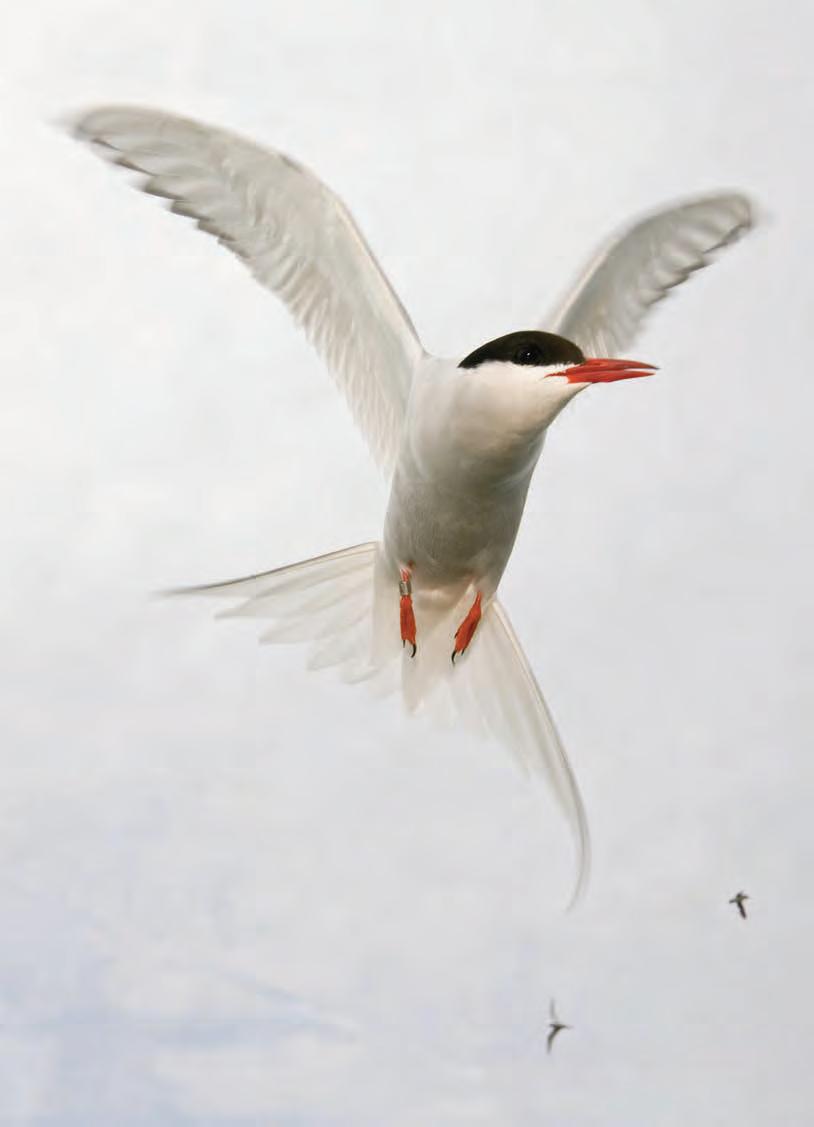
Martin HughesGames is a host of BBC2’s Springwatch and Autumnwatch


On a slice of desert close to Abu Dhabi International Airport, construction of the “smart city” of Masdar is under way. Built ground up—and raised high above a concrete base to maximize breeze exposure—it’s using the latest tech to become the world’s first zero-carbon, zero-waste city space.
Our cities are getting “smarter”. By 2030, five billion of us will live in urban dwellings, but connectivity is already making life easier, cheaper and greener. In South Korea’s Songdo International Business District, escalators are sensor controlled, saving on energy and maintenance by working when needed, and in Rio de Janeiro, technology helps coordinate response to crime and flash floods.
Closer to home, Glasgow recently received a £24m pot to help it become one of the UK’s first smart cities. A one-stop-shop dashboard will monitor the city system, including tra c lights, CCTV, air quality and services—such as hospital waiting times—and

The Masdar “smart city” in Abu Dhabi will be carfree and run entirely on renewables
a super-simple smartphone app will help Glaswegians report and monitor issues such as potholes or missed bin collections.
The debate rolls on about the benefits of new smart cities versus cultivating old ones. While people have to relocate, fresh builds o er a clean canvas, but speedy innovation can mean they’re old hat by completion—Masdar, for instance, won’t be done until 2025. On the other hand, “retrofitting” (adding tech to older systems and infrastructure) enables responsive planning shaped by existing needs and challenges, but centuries of established
infrastructure underpin culture, design and function.
Old or new, data is key. Cheeringly, all of Glasgow’s will be publicly available to help other communities benefit. It follows projects such as City SDK (citysdk.eu), which works with eight European cities—including Manchester, Rome and Helsinki —to share ideas and create a kit for developing digital services. In New York, the BigApps competition (nycbigapps.com) o ers $50,000 prizes for innovative apps for residents, visitors and businesses that use open data. Winning ideas so far include Uhpartments, which provides building-maintenance reports for flat hunters, and New York Trip Builder, creating personalised trips for tourists.
I’m hugely excited at some of the innovative and creative ways that the web will shape our cities, and help tackle tricky issues too. But smart cities need citizens that can use them, and it’s crucial that tools and training are in place to help everyone use and enjoy the changing face of urban space. They’re online places for chat about everything from health to history, best buys and cooking tips. Lots of sites have them, so take a look on your favourite, or use a search engine such as google.co.uk or bing.com for something new. Want to post
Here are some of the other on going smart-city projects in the UK:


● Bristol is a green-energy pioneer. Besides its green information and communications technology (ICT) site (greenaddict.eu), which shows commitments to reducing ICT-related carbon footprint, there are heaps of fun smart-city projects too. When Hello Lamp Post! launches in June, residents will be able to text “street furniture”— from bollards to lamp posts, post boxes and bus stops— and receive a text back, fuelling city conversation.
● Cardi has created a Smart City Hub to help manage transport. New all-weather touch screens are now dotted around the city, with departure news fed from bus and rail operators and travellers. Smartphone users can use QR codes for door-to-door journey plans, or the Keeping Cardi Moving website (keepingcardi moving.co.uk).
Give an hour of your time to help an internet beginner. Go to go-on.co.uk for more. Or to find a taster session near you, call freephone 0800 77 1234
● In Dublin, the Dublinked platform (dublinked.ie) provides access to the city’s public data—such as tra c management and water usage. Besides being useful for businesses, it’ll help Dublin become a test bed for new services.
or comment? Most sites ask you to register, and simple “netiquette” (internet etiquette) is key—respect people’s views and show common courtesy. And protect your own privacy.
For more advice, head to bbc.co.uk/webwise. ■
Martha Lane
Fox is the UK’s digital champion and chairs
Go ON UK (go-on. co.uk)

It’s something you probably do every day without thinking, but passing on one agreed side of the road is probably the single greatest safety innovation of all time. Imagine a world where people could drive wherever they wanted. It would be chaos. And it’s been equally important for horse-drawn vehicles over the millennia.
One of the earliest recorded systems for a “right” side of the road comes from a Roman quarry in Swindon. Archaeologists discovered that the grooves on one side of the road were deeper than the other, indicating how carts were entering (light) and exiting (heavy) the quarry —the Romans were driving on the left just like us. In fact, the ancient world back to the Greeks generally drove on the left, perhaps to keep a right hand free to greet a friend, or to attack with a strong sword arm.
Imagine a world where people could drive wherever they wanted. It would be chaos
people drive on the left and 66 per cent on the right. Lefthanders like us include much of the old British Empire, such as Australia, South Africa, India and Malaysia, plus outliers like Japan and Thailand. No one knows how driving on the right came about, but there’s a suggestion that Napoleon started it out of sheer bloody-mindedness—by forcing his troops to the right in lands he conquered, he stood against the British way of doing things and forced others to cede way to his armies on the highway.
discovered that the grooves on than the other, indicating how per cent of the world’s armies on the highway.
Today, about 34 per cent of the world’s

Jersey had to switch to driving on the right but switched
1945. The same was true
During the Second World War, Jersey had to switch to driving on the right but switched back after liberation in 1945. The same was true of the Falklands under Argentine occupation and later liberation in 1982. A notable exception in Britain is the entrance to the Savoy hotel in London, the only UK road where vehicles are required to drive on the right. The rule is said to date from when horsedrawn carriage doors were opened by hand.
in Britain is the entrance
right. The rule is said to doors were opened by hand.

Mazda6 (£19,595) The big saloon 6 from Mazda has always played second fiddle to Ford’s Mondeo and VW’s Passat, but this new model is the best yet. It’s now a proper contender and definitely one to put on your “check out” list. Its unique SkyActiv technology (for performance and fuel economy) confirms the new 6 as one of the best saloons in the world.
Peugeot Bipper


You might never own a Bentley, but now you or your other half can smell like one.

package. It’s not as
Tepee Outdoor (£13,345) This is a little people carrier based on Peugeot’s popular van, and as such it o ers a lot of space in a small package. It’s not as sophisticated as, say, a Ford B-Max, but it’s worth a look. What’s remarkable is its name—I love strange car names. Here’s one to point out to your friends for sheer weirdness value.

Lamborghini Aventador Roadster (£288,840) Take one crazy Italian supercar, chop a bit o the roof and let rip. If you need a monstrous 700bhp V12 power plant strapped to a car that will do a blistering 217mph with the roof down, then this is for you. Lambo claim this is the craziest car they’ve ever produced, and I can’t disagree with them.

Bentley have just launched their first men’s scents. Their £3,000 luxury fragrance—a collaboration with French crystal maker Lalique, called “Lalique for Bentley Crystal Edition”—is heavy on the wood and leather tones, but there’s the more a ordable “Bentley For Men” range starting at £43 for Eau de Toilette, or £24 for the Hair and Body Shampoo. Expect cedar, patchouli and geranium. No unburned fuel?
■
Conor McNicholas is the former editor of BBC Top Gear Magazine




Send us a photo of your favourite holiday, tell us briefly what made it so special, and if we include it on this page we’ll pay you £70. See address on p4.


per cent of its wildlife isn’t found anywhere else on earth.
Aye aye captain: fishermen in Madagascar and (inset) the aye-aye’s eyes with the Malagasy wildlife

Gerald Durrell provided the inspiration for Lena Walton from Surrey to visit Madagascar
Conservationist Gerald Durrell’s 1992 book The Aye-Aye and I depicts the Indian Ocean island of Madagascar as a “badly presented omelette…stu ed with goodies”. After I read this book, Madagascar became a bit like the Holy Grail for me. But I just never imagined I’d ever get to go to the “big red island”.
Finally, after years of dreaming, I managed to make the journey.
Madagascar is home to 50 varieties of lemur, and around 75
My first encounter with the Malagasy wildlife was with lemurs, on a small island o the north coast called Nosy Komba. It was an impromptu lunch meeting: the lemurs jumped gracefully down from the mangrove trees and began eating fruit out of my hands. They chittered and chattered, picking up pieces of food and running up and down the table with glee. It was a wonderful introduction.
I continued to travel around Madagascar and saw at least 20 varieties of lemur. Up on the north-east coast, I arrived at a place called Maroantsetra, from where it was a short sail to Nosy Mangabe, an island Durrell mentions in his book. The island had become a sanctuary for the nocturnal lemur—the aye-aye.
I hired a boat and went across to the island, camping out on a little secluded beach and searching for the aye-aye in true Durrellian style. My excitement was barely containable when
one night I caught my first glimpse of an aye-aye, his eyes glowing in the darkness like some evil spirit from an adult fairy tale.
I travelled across the island from the hedonistic beaches at Nosy Be in the north to the eerie spiny forests of the south. I was fortunate enough to see wildlife from the smallest chameleon to the largest snakes—as well as all those lemurs, including, of course, the iconic aye-aye.
Gerald Durrell was right: the omelette really is stu ed with goodies.
Rainbow Tours (020 7666 1252; rainbowtours. co.uk) has a number of Madagascar itineraries including £3,350pp for 12 days, with flights.
large-cottages.co.uk Calling all sizeable parties of selfcaterers! There’s a new website dedicated to larger holiday properties to let, joining the ranks of The Wow House Company and Unique Home Stays. Large Cottages brings together around 900 properties in the UK and Ireland, all of which sleep parties from eight to 38. Search by area or the size of your party—a useful one-stop tool if you’re planning a family get-together or reunion.

Seasonal direct flights to the Azores from Gatwick begin this month, and if you’ve never considered a holiday to these midAtlantic islands, let Sunvil’s new additions to its programme inspire you. There are new properties, including the archipelago’s first-ever five-star hotel; new excursions include an o -road jeep adventure and swimming with dolphins. Visit in April or October and enjoy a free excursion: from £572pppw, including flights (020 8758 4747; sunvil.co.uk).
It’s food festival time! Exeter’s Festival of South West Food and Drink, April 26–28, showcases loads of local producers (exeterfoodanddrinkfestival.co.uk). The Lancashire Food Festival will feature award-winning chef Jean-Christophe Novelli—April 14–15 (lancashire foodfestival.co.uk). The Bishop Auckland Food Festival, April 20–21, has seasonal fare from the Durham Dales (bishopaucklandfoodfestival.co.uk).

East European specialist
Explore Montenegro has introduced an exclusive itinerary featuring a day trip aboard the state carriages of former Yugoslav president, Marshal Tito. Combine a memorable jaunt between Serbia and Montenegro with two nights in Belgrade and three nights or more in Montenegro. From £699pp for five days, flights included (set dates in May and June; 020 7118 1002; montenegroholidays.com). ■

From Belgravia to Morocco: our favourite novels published this month
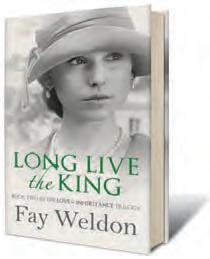
by Fay Weldon (Head of Zeus, £14.99; ebook, £7.99)
As all pub quizzers will know, the first-ever episode of Upstairs
Downstairs was written by Fay
Weldon. Now she’s returned to her old haunts for a trilogy of novels about the Dilbernes of Belgrave Square.
If anything, the first volume, Habits of the House, observed the conventions a little too carefully, serving up a familiar but undeniably enjoyable mix of troubled to s, American heiresses, solemn butlers and saucy maids. With Long Live the King, both the social and geographical range get wider— but the book retains the same, almost defiant enthusiasm for old-fashioned storytelling (combined with just the odd knowing twinkle) and the same taste for characterisation most kindly described as broadbrush. At one point, for example, there’s even an Australian who says “bonza”, followed immediately by “beaut” and “dinkum”.
Luckily, what the book lacks in subtlety, it more than makes up for in gusto, neatly interweaving fiction and history, and rattling along at exhilarating speed. Fans of Weldon’s more obviously literary work might
BY JAMES WALTONJames Walton writes and presents the BBC
Radio 4 literary quiz
The Write Stu



3. He was the son of a Nottinghamshire miner. ?
NAME THE AUTHOR Answer on page 150
Can you guess the writer from these clues (and, of course, the fewer you need the better)?
1. In 1960, one of his literary novels sold around two million copies in the six weeks before Christmas.
2. By then he’d been dead for 30 years.
wonder if she’s taking novel-writing as seriously as she once did. My guess, though, is that even they won’t be able to hide a smile of sheer pleasure as they gulp down the pages.
By coincidence, Lawrence Osborne’s brilliant new novel also has an Upstairs Downstairs theme —although in this case both global in scale and alarmingly up to date. The setting (beautifully observed) is Morocco, where a gay Western couple are holding an extravagant house party for guests from across Europe. Their hedonism duly scandalises the Muslim servants and other locals—especially when people start skinnydipping in a holy river.
Among those invited are a grumpy London doctor and his understandably dissatisfied wife. On the way, the couple are in the middle of a standard marital row about directions, when they run over and kill a local youth. The police are easily bought o . But then the boy’s father shows up demanding justice…

The Bone Bed by Patricia Cornwell (Sphere, £7.99)
Kay Scarpetta is back—and by common consent, so is Cornwell after a recent dip in form.
Skios by Michael Frayn (Faber, £7.99) Frayn bravely attempts full-scale farce in a novel—and triumphantly succeeds.
This Is How It Ends by Kathleen McMahon (Sphere, £7.99) Powerful family story of an Irish woman finding love at 38. Touching yet sharp—and with a properly heartbreaking ending.
Murder at Wrotham Hill by Diana Souhami (Quercus, £8.99) One for fans of Mr Whicher: true-life murder from 1946.
beings, their deaths don’t matter much either. Yet,
a genuinely exciting thriller that maintains its
What follows bleakly confirms how completely foreign the Westerners and Muslims are to each other. (To the servants, even Western music seems like “a racket”—just as Arabic music does to the partygoers.) More worrying still, it suggests that the deep mutual suspicion is not unjustified: after all, if you don’t see other people as proper human beings, their deaths don’t matter much either. Yet, Osborne always wraps up these wider themes in a genuinely exciting thriller that maintains its hold until the final horrifying twist.
Richer than God: Manchester City, Modern Football and Growing Up by David Conn (Quercus, £9.99) Respected journalist’s eye-opening account of his beloved team’s recent history.
Is it Just Me? by Miranda Hart (Hodder & Stoughton, £7.99)

The biggest-selling celebrity memoir of Christmas 2012. As funny and selfdeprecating as you’d expect.
A leading TV producer on why so many stories have the same pattern— and why the best series never forget the importance of amnesia

A dangerous monster threatens a community. One man takes it on himself to kill the beast and restore happiness to the kingdom.
As John Yorke points out, this plot summary would do for hundreds of stories, from the Anglo-Saxon poem Beowulf to Jaws—and, if you broaden the definition of “monster” slightly, for every James Bond film and episode of House.
But the fact that so many stories have a similar structure is only the starting point for Into the Woods Sharp, persuasive and endlessly thought-provoking, the book combines plenty of practical, sometimes technical, tips for the would-be screenwriter with more general ideas on how and why storytelling works. It also draws on a wide range of examples, including Yorke’s production work on TV dramas as varied as Spooks, EastEnders, Shameless and Life on Mars.
The journalist Polly Toynbee once said that her job was to “précis a muddled reality into a narrative of right and wrong”. But, according to Yorke, this is also true of all our lives: we tell stories to bring order to what might otherwise seem chaos. And because the urge is so primal, the same patterns show up both in the oldest dramas we have and in the stories made up by children today. In its simplest terms, the basic pattern is a set-up (“Once upon a time”), a conflict and a resolution. Yet just as musical notes can produce an infinite number of tunes, so these building blocks can produce an infinite number of stories—especially once Yorke has unpicked the many forms that each element can take.
Along the way, we discover why almost all TV cops are mavericks: not writers’ laziness apparently, but because the cop represents us, and nobody likes to think they’re a boring

RD EXCLUSIVE: JOHN YORKE’S CHOICE OF FIVE PERFECT SCREENPLAYS
As if the wonderful characters, beautiful world and breathtaking twists weren’t enough, the complex plot that’s e ortless to follow is su used with joy from start to finish.
Its ability to access the child within all of us is unsurpassed. Nothing has ever captured the wonder (and terror) of being young so well.
THE SOCIAL NET WORK
Probably the smartest, fastest
plodder. Going well beyond the familiar formula of “show, don’t tell”, Yorke explains why it’s so important (and enjoyable) for an audience to work some things out for themselves.
He also gives us lots of behind-the-scenes glimpses into modern television—as in this passage, where he spills the beans on why many series have a limited sell-by date (even if they carry on after it). The problem, you see, is that we get frustrated when the characters fail to change—but annoyed when they do and stop being the people we first loved. For the programmemakers, Yorke tells us, the key trick is selective amnesia:
Nothing is as useful in a longstanding drama as the fine art of forgetting.
Many years ago in EastEnders, Michelle Fowler’s baby Vicki was snatched from her pram outside a supermarket. The child was missing for a month, and Michelle was forced to make a TV appeal and admit she was a failure as a mother. To the relief of all, Vicki was discovered safe and sound, and Michelle began to rebuild her life. So far so good. In real life, however, the level of trauma, guilt and public notoriety would leave a lifetime’s scars. Michelle entirely forgot about it, and after six weeks it was never mentioned again.
The fine art of forgetting: Michelle and Lofty (Susan Tully and Tom Watt), with baby Vicki in EastEnders; (below)
Philip Glenister and John Simm in Life on Mars
‘‘ ►


In cop shows, a regular character will often learn a valuable lesson—they will just forget it by the following week. When we made Life on Mars, John Simm (playing Sam Tyler) used to get frustrated that his character never seemed to learn anything. John had almost entirely worked in single films and so was unused to the idea that character change was impossible. Every week Sam learned to be a little more instinctive and Gene Hunt (Philip Glenister) a little more rational; but the next week they went back to how they were to learn the same lesson again. John was completely right logically, but without the amnesia, the character journeys would be over and the dynamic of the series destroyed. Sam and Gene couldn’t, until the end, get on.
had almost entirely worked in single films and so was


After two series everybody felt we’d pushed it far enough.
Into the Woods: a Five Act Journey Into Story by John Yorke is published by Particular Books at £16.99; ebook, £9.99
Every great story forces the
protagonist to confront their needs and aws. Ifthecharacter overcomesthem, they’recomplete —but dead
The more the restart button was pressed, the less believable the universe threatened to become. There’s an exchange from Sammy to her boyfriend in Brookside that should perhaps be hung on every drama boss’s wall.
Trying to recall a forgotten event, she prodded him: ‘You remember, it was when you were in a wheelchair, and I was an alcoholic…’

Will they, won’t they?
Oh, they have
and cleverest use of dialogue ever. The verbal pyrotechnics hide the fact that the film is telling an incredibly complex story very simply.
An absurdly charming, funny, exciting and sexy screenplay; James Bond wouldn’t exist without Hitchcock’s prototype. Technically, its use of a di erent kind of dramatic irony in every act marks it out as extremely sophisticated.

As American series are contracted for seven or eight seasons, you can see where the sometimes desperate search for material leads. As well as by natural disasters, they seek story by fiddling with plot dynamics or resolving long-standing tensions. As Moonlighting and Frasier both attest, such tinkering rarely works. When Maddie and David (left) and Niles and Daphne (inset) became couples and ‘will they?/ won’t they?’ became ‘they have’, viewers had nothing to root for. The story engine that drove each show was turned o as the characters’ goals were achieved, the questions were answered and their quests complete.


and their quests complete.
confront complete—but series is that the needs/flaws should either be overcome fleetingly,
Every great story in drama forces the protagonist to confront their needs and flaws, and if a character overcomes them they’re complete—but dead. The golden rule in series is that the needs/flaws should either be overcome fleetingly, or possibly never, but certainly not until the final episode—which is why the relationships between Donna and Josh in The West Wing and Rachel and Ross in Friends worked so well. Nice as it was to see an old friend, Only Fools and Horses really should have ended when Del Boy and Rodney became millionaires.

AND THE NAME OF THE AUTHOR IS…
D H Lawrence (the book was Lady Chatterley’s Lover, after Penguin won the case to publish the full rude version).

Buster Keaton proves that there’s nothing so beautiful as simplicity. The plot of one man’s mission to rescue his stolen locomotive and the girl he loves is as perfect as cinema gets. A silent classic proving once and for all that cinema is not about words, but story. ■

Broadcaster and journalist Pam Rhodes has been presenting Songs of Praise since 1987. She has also written six novels. Her new book Fisher of Men is out now.

It might look like an academic tome, but when I first discovered this collection of the 150 best-loved hymns in 1990, my enthusiasm for them (established during my years with Songs of Praise) became a passion. Bradley unearthed the character and situation of each hymn’s writer so that, even though centuries separate us, I could identify with the emotions they were probably going through as they wrote. The music is fascinating too, as often it is the well-known melody that makes the words unforgettable. Bradley has written several other books on subjects such as Christmas carols and Victorian hymns, and I’ve loved them all.
There must be thousands of copies of this book on kitchen shelves, each looking just like mine— dog-eared, covered in old cake mixture, with almost every other page turned down at the corner to remind me where to find favourite recipes. I reckon I must have bought my copy in 1978, when it was first published, and it transformed my culinary repertoire. Delia writes in such a downto-earth way that never patronises or assumes a level of knowledge that’s probably not there—so the complete beginner can be led by the nose to a cookery triumph! I’ve made copious amounts of her rich fruit cake and Christmas pudding every December since. My kids all think I’m a great cook—but I don’t let on that it was really Delia that did it!


I have a treasured hardback copy, signed by Follett. The story is huge, complicated and extensively researched, and based around the building of a 12th-century English cathedral. I can’t count the times I’ve sat in grand churches during recordings of Songs of Praise wondering how on earth, centuries ago and without modern technology, they managed to put in such huge windows without them cracking, or kept the heavy arched roof from crashing to the ground. Now I know! I’ve looked at church architecture in a new way since getting to know the characters in The Pillars of the Earth as they designed, built, lived —and sometimes died—for Kingsbridge Cathedral. ■





The latest from Ian Okell
Genuine friends & partners, all ages, all areas of UK + overseas section. 100s of photos.
Established 1984:- still going strong ‘cos it works! No membership fees. Free details:
Person to Person (Dept RD) P.O. Box 40, Minehead TA24 5YS Tel: 01643 709 509
Genuine Friends Loving Partners
British and German agents race the advancing Blitzkrieg to find a missing radar part. But can aristocratic Sir Freddy ever be a match for ruthless S.S. agent Heidi Fuchs?
“Nail biting to the last page. A top writer on top form!”

AMAZON: BOOK or KINDLE
WIN £70 for every reader’s joke we publish. Email excerpts@ readersdigest.co.uk or go to facebook.com/readersdigestuk
¶ Three friends die in a tragic car accident. They arrive in heaven and go to an orientation session. They’re all asked by the top orientation angel, “When you’re in your casket, and friends and family are talking about you, what would you like them to say?”
The first chap replies, “I’d like to hear that I was a good doctor and a great family man.”
The second friend says, “I’d like to hear that I was a wonderful husband and school teacher who made a huge di erence to my students’ lives.”
The last man replies, “And I’d really like to hear them say, ‘Look—he’s moving!’ ”
Luke Russell, Leeds
¶ An artist asked the gallery owner if there had been any interest in his paintings.
“I’ve got good news and bad news,” the owner replied. “The good news is that a man enquired about your work and wondered if it would appreciate in value after your death. When I told him it would, he bought all of your paintings.”
“Wow!” the artist exclaimed.
“What’s the bad news?”
“He was your doctor.” Grahame Jones, London EC1A

“Still no takers for the voluntary redundancies, then?”




¶ A HELL’S ANGEL WALKS INTO A CAFE AND orders a large cappuccino. As he’s about to leave, he asks the waitress for his bill.
“Two pounds sixty,” she says.
The Hell’s Angel produces 260 penny coins, drops them on the floor and leaves.
This happens every day for a week until, one morning, the Hell’s Angel wants to pay with a fiver. Gotcha! thinks the waitress, who’s been waiting for her revenge. She drops 240 pennies onto the floor. “Your change,” she says gleefully.
The Hell’s Angel produces a 20 pence coin and places it on the table.
“Another large cappuccino, please.”
Seen on the internet
ANDERSON’S FAVOURITE JOKE?
Q: What did the zero say to the eight? A: Nice belt.

When songwriters die, they decompose
Seen on the internet ¶ Just been threatened by a radiographer. Said if I opened a certain envelope I’d be looking at a broken leg.
Comedian Milton Jones, on Twitter
¶ I told my friend that she drew her eyebrows on too high. She looked surprised.
Seen on the internet
¶ If you have time to upload pictures of you “having fun in a club” to Facebook and Twitter while in that club, you’re not having that much fun. Comedian Matt Rudge, on Twitter
I took a test for depression. It came back negative
Seen on the internet ►

Award-winning comedian Josh Widdicombe is 5ft 6.5in tall, and his favourite TV show is The Simpsons. Each month, he lets us know just exactly what his problem is.
Every year, there must be someone who has to break some bad news on the first of April; a boss, already dreading making someone redundant, with the added fear that they’ll reply, “Good one! I’m not falling for that on April Fool’s Day. While I’m here, would you like to smell this flower on my lapel?”
“No, because it’s a plastic flower that will hilariously spray me in the face, and I’m afraid I’m serious—this is your severance.”
April Fool’s Day is basically a day of legislated lying. And not the good type that makes people happy (“You look great” doesn’t count; in fact, adding “April fool!” afterwards just makes things worse). No, sadly, we’re talking about the kind of lies where you momentarily ruin someone’s day for your own amusement, like Beadle’s About without the fake beard. Then the victim is told they’re the fool, rather than the person who spent their evening loosening a chair leg for their own amusement.

What hurts most is that I’ll crack and finally join in (“Have you heard that bananas don’t actually contain potassium? Not really. Fooled you!”), only to be told it doesn’t count past midday. Well, I’m sorry if I didn’t realise there was a deadline on being an insu erable git.

New colloquial-language handbook Pardon My French (£9.99) gives literal translations of the more entertaining idioms from our friends on the Continent. These phrases, compiled by Rachel Best and Jean-Christophe Van Waes, tickled us:
English idiom: You’re getting on my wick
French equivalent: Tu me prends le chou (You take my cabbage)
English: To drive someone round the bend
French: Faire tourner quelqu’un en bourrique (To turn someone into a donkey)
English: To be fed up to the back teeth
French: En avoir ras les baskets (My trainers won’t take any more)
English: It’s not worth jacks***
French: Ca ne vaut pas un pet de lapin (It’s not worth a rabbit’s fart)
English: If you can’t stand the heat, stay out of the kitchen
French: Si ça ne te va pas, prends tes cliques et tes claques (If you don’t like it, take your legs and your shoes and go)
English: Get stu ed!
French: Va te cuire un œuf (Go cook yourself an egg)



Website googlepoetics.com exhibits the oddly poignant lists conjured by Google’s predictive text tool.








¶ I’m reading a book about anti-gravity. It’s hard to put down.
¶ Q: How do you make holy water?
A: Boil the hell out of it!
¶ Q: How did the hipster burn his mouth?
A: He ate it before it was cool.
¶ Q: How do you spot a vegan at a party?
A: Don’t worry. They’ll tell you.
¶ Q: How many apples grow on a tree?
A: All of them.
¶ Whenever you drive a car, your life is in your foot’s hands.
¶ Q: Why did the banker leave his job?
A: He lost interest.
¶ Q: What’s so great about living in Switzerland?
A: Well, the flag is a big plus.
All seen on the internet
Ladies and gentlemen, please welcome Stewart Francis
FAVOURITE ONE-LINER?
Tommy Cooper: I was cleaning out the attic the other day with the wife. Filthy, dirty and covered with cobwebs...but she’s good with the kids.
DO YOU HAVE A FAVOURITE OF YOUR OWN JOKES?
No; it’s like saying that you have a favourite child (of mine, it’s Je rey).
FAVOURITE GIG?

Stewart Francis is on tour with new show
The Lumberjacks (with fellow Canadians Craig Campbell and Glenn Wool) from April 17
I played a show in Jersey. There was an amalgamation of a number of things about the evening, but the air lit up; the crescendo was beauty. I was on good form and the appreciation level of the audience was there.
FUNNIEST THING THAT’S EVER HAPPENED TO YOU?
Every day is filled with chuckles. As a child, my uncle and I were seeing my grandmother o on the train from Edinburgh to Newcastle. Standing on the platform, my uncle suggested that we start walking backwards, waving, while the train stood idle. The look on Grandma’s face...she’s now in a home because of that incident. (No, no, she was fine—she had a wee chuckle.)
FAVOURITE TV SHOW?
I love 30 Rock. Tina Fey is just phenomenal. And my favourite comedy character is Will Arnett’s portrayal of Gob in Arrested Development. I’d love to play that character.

FINALLY, WHO’S YOUR COMEDY INSPIRATION?
My material just happens as and when. I go for walks; you can put the world right when you go for a walk. That’s what I’ll be doing after this interview, and I’ll come up with a better answer for you then, probably. n

* Entry is open only to residents of the UK, Channel Islands, Isle of Man and Republic of Ireland aged 18 or over. It is not open to employees of Vivat Direct Limited (t/a Reader’s Digest), its subsidiary companies and all other persons associated with the competition.

Put a nought (O) or a cross (X) in each cell so that there are no lines of three (OOOs or XXXs) in any direction.
Beginning with the highlighted letter, follow a continuous path to find 19 types of fish. The trail passes through each and every letter once and may twist up, down or sideways but never diagonally.

2. Suko Place the numbers 1 to 9 in the spaces, so that the number in each circle is equal to the sum of the four surrounding spaces, and each colour total is correct.

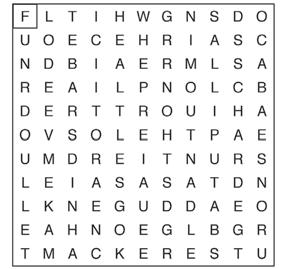

£50 prize question (answer will be published in the May issue)
Wordladder Change one letter at a time (but not the position of any letter) to make a new word—and move from the word at the top of the ladder to the word at the bottom using the exact number of rungs provided.

The first correct answer we pick on March 28 wins £50!* Email excerpts@ readersdigest.co.uk
Answer to March’s prize question:

One solution is: Half, hall, hell, heal, hear, hoar, hour
And the £50 goes to… Tony Wayne from Nottinghamshire

Think of a witty caption for this picture and you could beat the experts at their own game. The three best suggestions will be posted on our website in mid-April alongside an anonymous caption from our professional cartoonist. Visitors can choose their favourite—and if your entry gets the most votes, you’ll receive £100 and a framed copy of the drawing. Submit to captions@readersdigest.co.uk or the address on page 4 by April 5. Enter and vote online at readersdigest.co.uk/caption. We’ll announce the winner in our June issue. ■
Kate Humble rules! Find out how the world would look if Kate was in charge
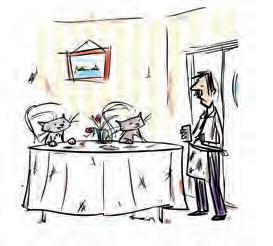
It’s a landslide! Reader Valerie Falconer stormed home with, “I think the ratatouille might not be quite what you’re expecting,” which attracted 200 votes more than cartoonist Len Hawkins’s caption, “We understand your kitchen is crawling with vermin.” You might have found your calling, Valerie…


• We announce the winners of our 100-Word Story Competition!
• Our guide to the best British summer ever PLUS Michael Portillo and Michael Ball
specsavers.co.uk
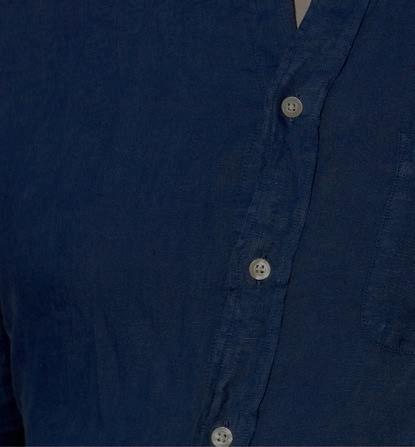
Includes all frames, lenses and Extra Options. Excludes reglazes, safety eyewear, contact lens products, non-prescription sunglasses. Applies to one pair of glasses, from £69 range or above. Cannot be used with other o ers. Monday to Friday. Discount not transferable in whole or part for cash. SKUs
25381658, 25144444. ©2013 Specsavers. All rights reserved.








